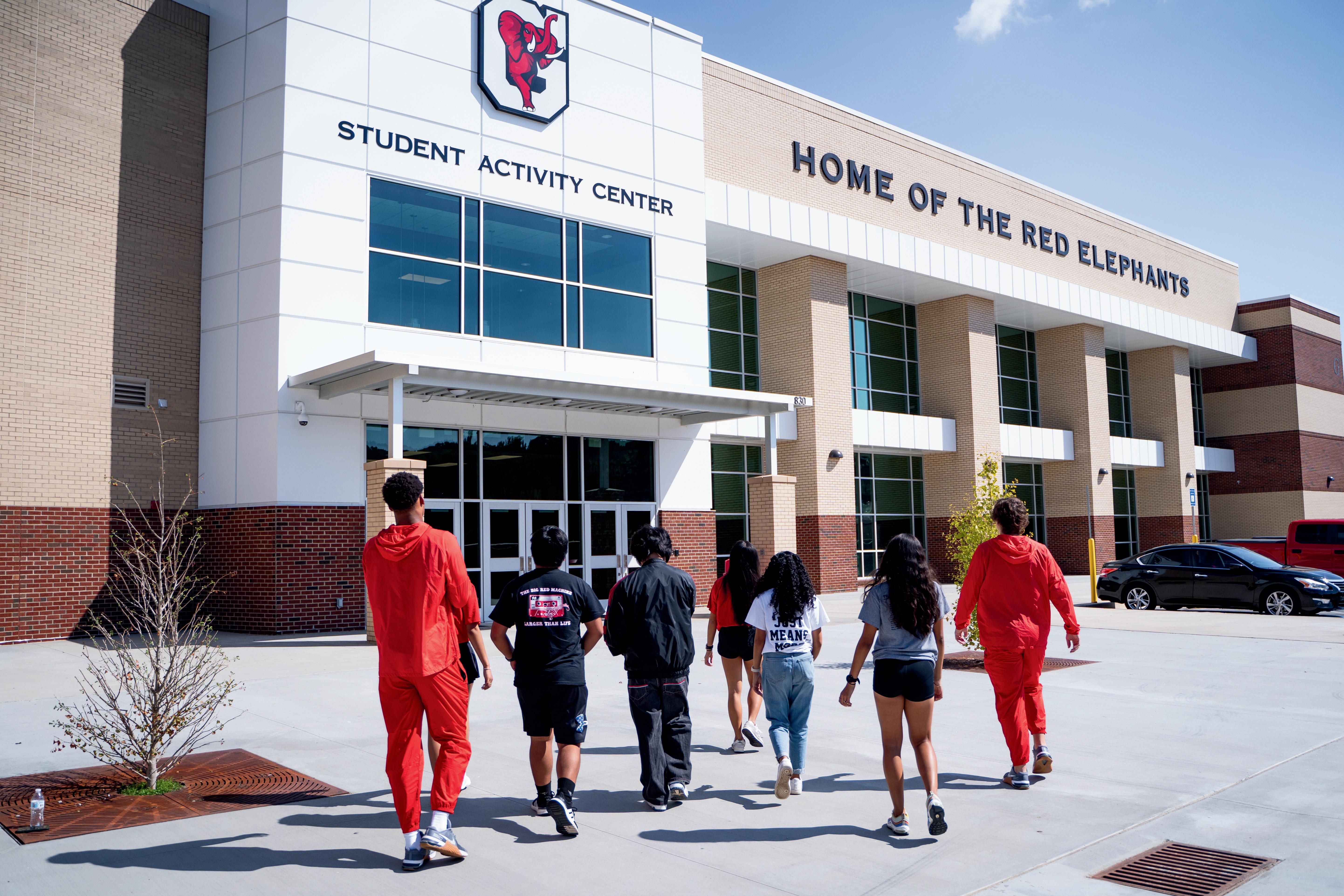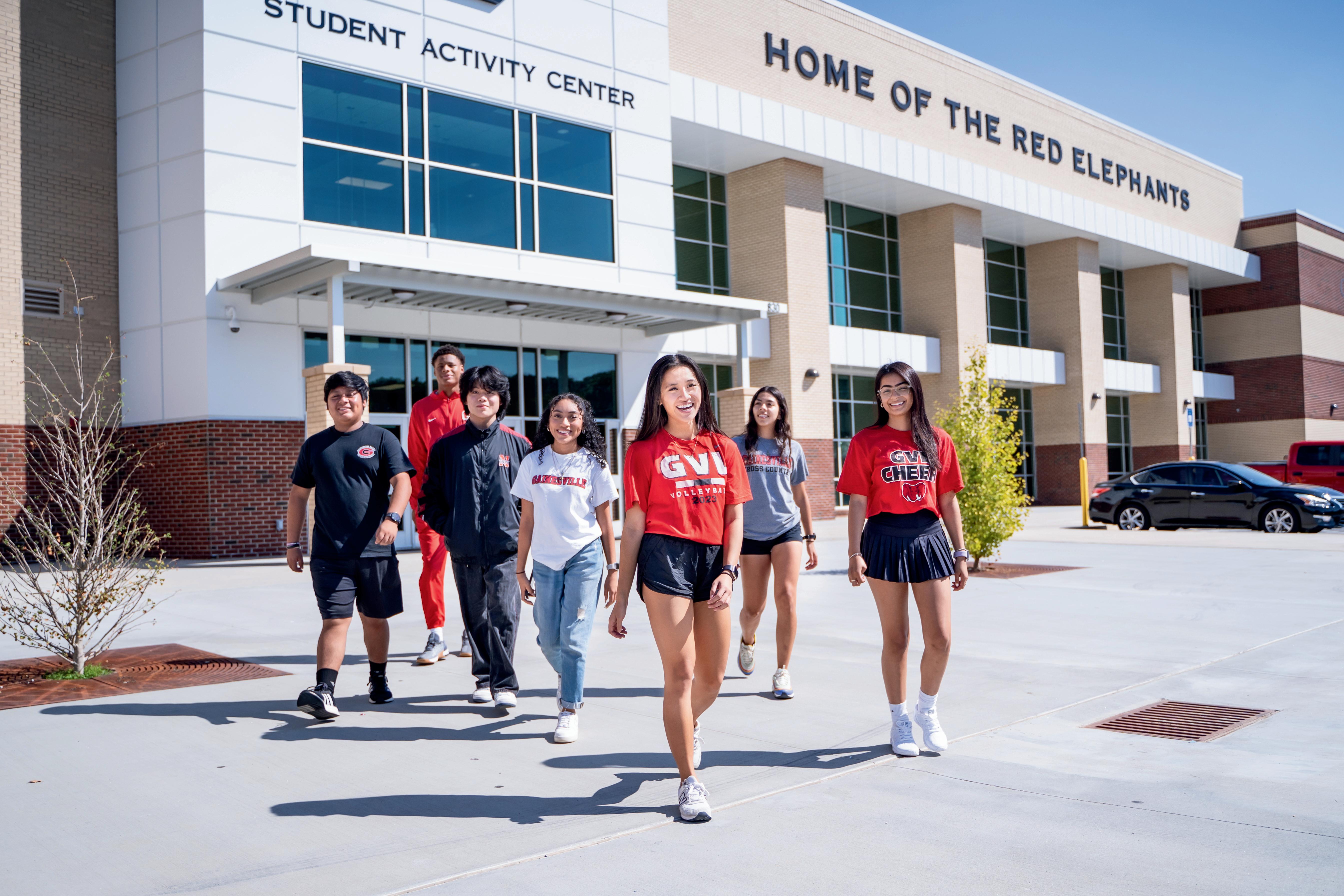
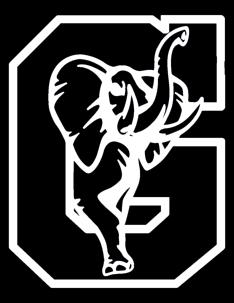
GAINESVILLE CITY SCHOOLS
HIGH SCHOOL HIGH SCHOOL ACADEMIC ACADEMIC ADVISEMENT GUIDE ADVISEMENT GUIDE
PREPARING STUDENTS FOR COLLEGE AND CAREER
PREPARING STUDENTS FOR COLLEGE AND CAREER
INSPIRE INSPIRE NURTURE NURTURE CHALLENGE CHALLENGE PREPARE PREPARE
TABLE OF CONTENTS

High School 101
Graduation Requirements, Pathways Overview, Career and College Prep, Dual Enrollment, Work-Based Learning, Online Learning, Testing, the HOPE Grant, & NCAA qualifications
English, Math, Science, and Social Studies course descriptions for all core, elective, and advanced placement courses.
Career & Technical Pathways
Fine Arts Pathways
Health and Physical Education
The Gainesville City School System does not discriminate in admission or access to, or treatment, or employment in its programs and activities on the basis of sex, race, color, age, disability, religion, or national origin.
overviews
Career
Technical Student Organizations
Fine Arts overview with course descriptions
Career Pathway
including course descriptions, career connections, and
&
Academics
28
Language Pathways
Language overview with course descriptions
4 17
62 56 World
World
58
and PE overview with course descriptions Spring 2024 Edition
Health
Welcome
Dear Students and Families of Gainesville High School,
Each year we have the great pleasure of welcoming a new freshmen class to our school. We know that in each class that comes to us we will be able to celebrate our future valedictorian, honor graduates, pathway completers, award winners, scholarship winners, and more. Each year we make a few important promises to our students and our families; We promise that we will do everything to inspire, nurture, challenge, and prepare you. We promise that we will do all we can to connect you to whatever it is that you have a natural talent for, or a deep interest in. We promise to do all that we can to get you to and through graduation so that you can attend the college of your choice or start the career you desire.
Like anything in life, you are more likely to experience success if you plan for it. Students who experience the greatest levels of success plan which courses they are going to take, which pathways they are going to complete, which post-secondary opportunities they’re going to try, and which clubs, sports, and activities they are going to participate in.
We hope that through our transition activities and this guide, you will be able to build your plan. We want you to use this guide to carefully consider the opportunities before you and put yourself on the path to reach your goals.
The administrative team, counseling staff, and teaching faculty is here to support you. We want the very best for you and know that you’ll do great things. We know you’ll join the long line of Red Elephants who have left their legacy on our school and our city.
Sincerely and Go Big Red!
Jamie P. Green
Jamie P. Green Ed.S Principal
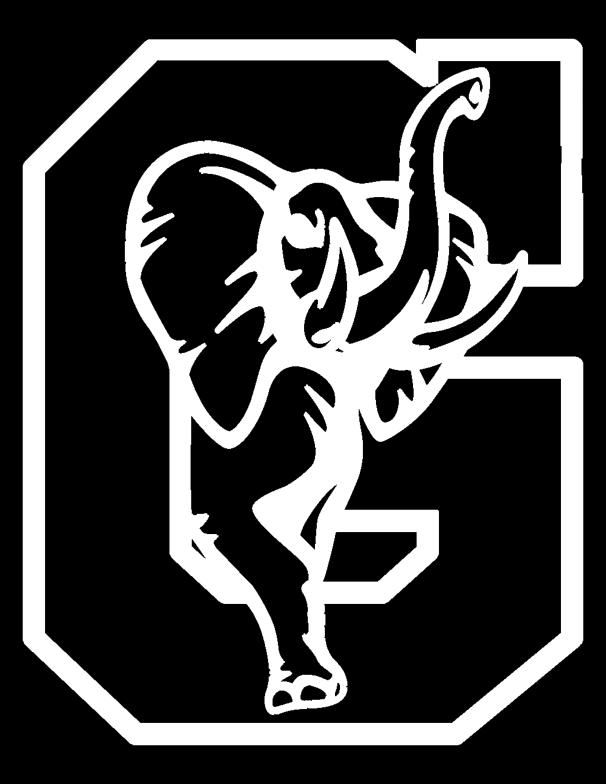
3

HIGH SCHOOL 101
23 UNITS OF CREDIT REQUIRED FOR GRADUATION
4 4
credits of English Language Arts
9thGradeLiterature& Composition1.
American Literature2.
Plus 2 of the following:
Multicultural Literature
Advanced Composition
Advanced Placement Seminar
Advanced Placement Language
Advanced Placement Literature
Dual Enrollment English
4 4
credits of Mathematics
Algebra:Conceptsand Connections1.
Geometry:Conceptsand Connections2.
AdvancedAlgebra:Conceptsand Connections3.
Plus 1 of the following:
Foundations of Algebra
Pre-Calculus
Calculus
Advanced Placement Calculus AB & BC
Enhanced Advanced Algebra and Pre-Calculus
Advanced Placement Statistics
Dual Enrollment Math
4 4
credits of Science
1.Biology
2.ChemistryOREnvironmentalScience**
3.PhysicalScienceORPhysics
Plus 1 of the following:
Forensic Science
Human Anatomy and Physiology
Advanced Placement Environmental Science
Advanced Placement Biology
Advanced Placement Chemistry
Advanced Placement Physics
Dual Enrollment Science
**Chemistry counts as 4th science if taken in addition to Environmental
Promotion Guidelines
9th Grade to 10th Grade
5 credits
10th Grade to 11th Grade
11 credits
11th Grade to 12th Grade
17 credits
Graduation
23 credits
3 3 1 1
7 7
credits of Social Studies
1.WorldHistory
2.UnitedStatesHistory
Government[0.5 Credit]3. Economics[0.5 Credit]4.
credits of Personal Fitness/Health
Health[0.5 Credit]1.
2.PersonalFitness[0.5Credit]
credits of Electives
Studentsmustearncreditforatleast3coursesina Career,Technical,&AgriculturalPathway (CTAE)1.
FineArts Pathway2.
3.WorldLanguagePathway
[2 consecutive years in the same language are required for acceptance into a 4-year school]
4 additional credits are required. They can be earned in any of the following:
CTAE includes NJROTC
Advanced Academic Electives
Work-Based Learning
Dual Enrollment Courses
Fine Arts
World Language
Weight Training
Physical Education
Driver’s Education
4
PATHWAYS WITH A PURPOSE
Pathways are state-approved career enhancement programs in a sequenced order in an academic or career related program.
Take classes in high school that prepare you to be COLLEGE & CAREER ready! Students should aim to complete at least one pathway to build a skill set in a specific area of interest. Students should take three courses, in sequence, within a pathway. This concentration can result in a student earning industry certification and prepare them for further study in post-secondary education. Selection of a pathway will be based on the student’s own self-awareness and investigation of occupations.
Advanced Academic Pathway: An Advanced Academic Pathway may be followed in any of these four content areas: English, Mathematics, Science or Social Studies. See pathway criteria listed under each specific academic option.
Career, Technical, and Agriculture Education (CTAE) Pathway: Career pathways are a series of three sequenced courses within a state approved area of study. Once these sequenced courses are completed, the student will have the opportunity to take national certification or licensure assessments that will prepare them for the world of work or further assist them in continuing their education.
World Language Pathway: A World Language Pathway may be followed in any of the world language areas included in the state list of approved courses. See pathway criteria listed under World Language area.
Fine Arts Pathway: A Fine Arts Pathway may be followed in any of these areas of study: visual arts, theater, dance, or music. A student has completed a Fine Arts Pathway when three courses, from those identified in the four areas (Visual Arts, Theater, Dance, and Music) have been successfully completed.
Disclaimer: The information contained within this book is as accurate as possible at the time of publication. Classes offered can change due to scheduling and allotment conflicts.

5
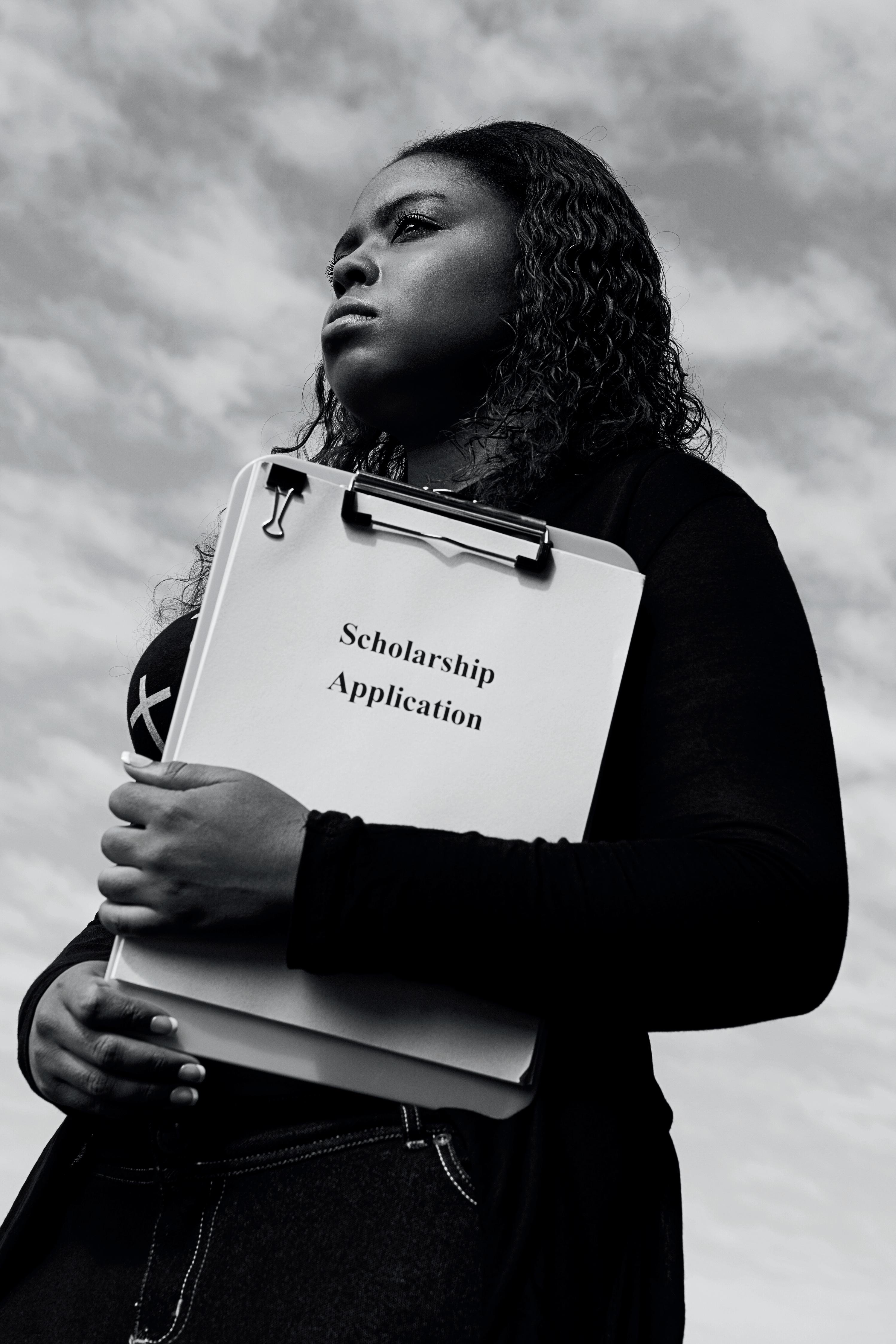
HOPE SCHOLARSHIP RIGOR
The high school HOPE GPA calculation is used for the purpose of determining academic eligibility for HOPE Scholarship and Zell Miller Scholarship. A student's high school HOPE GPA is not the same as his or her high school GPA.
Accredited Georgia public and private high schools electronically submit transcript data and academic rigor to GSFC for the calculation for HOPE or Zell Miller Scholarship GPA to determine students’ initial academic eligibility.
Courses
The high school HOPE GPA calculation includes core courses as defined by Georgia Department of Education (GaDOE).
The eligible core courses begin with the following prefixes:
English - course numbers beginning with 23
Mathematics - course numbers beginning with 27
Science – course numbers beginning with 26 or 40
Social studies – course numbers beginning with 45
Foreign language – course numbers beginning with 60 – 64
Specific fourth science courses from GaDOE’s Fourth Science List
Grades and Weighting
All grades earned (pass and fail) for attempted coursework in the core subjects during the student's 9th through 12th grade years that could be used to satisfy a core course graduation requirement, according to GaDOE, is equated to a grade on a traditional 4.0 scale to two decimal places, where an "A" equals 4.0, "B" equals 3.0, "C" equals 2.0, "D" equals 1.0, and "F" equals 0.
Note: The high school HOPE GPA calculation will count all attempts of the same course, if taken more than once.
From the eligible core courses, any weighting added by the high school is removed, then half a point (0.5) is added back to grades of “B”, “C”, “D”, and “F” for Advanced Placement (AP), International Baccalaureate (IB), and Dual Enrollment (DE) degree-level core courses.
Note: The grade of “A” does not receive the additional weight due to the traditional 4.0 scale (maximum of four points per grade).
Note: Honors coursework is not weighted.
Note: The HOPE Scholarship GPA calculation does not allow for any rounding.
Academic Rigor Requirements
A student meeting the requirements to be a HOPE Scholar at the time of high school graduation must earn a minimum of four full rigor credits from the Academic Rigor Course List prior to graduating from high school.
Credits received for academic rigor courses must be from the categories below:
- Advanced math, such as advanced algebra and trigonometry, math III, taken at the high school, or an equivalent or higher course taken for degree level credit at an Eligible Postsecondary Institution;
- Advanced science, such as chemistry, physics, biology II, taken at the high school, or an equivalent or higher course taken for degree level credit at an Eligible Postsecondary Institution;
- Foreign language courses taken at the high school, or taken for degree level credit at an Eligible Postsecondary Institution; or
- Advanced Placement, International Baccalaureate or Dual Enrollment degree-level core courses.
My High School HOPE GPA
Georgia public and private high school students may check their high school HOPE GPA calculation and status upon completion of the 9th grade and by signing into their GAfutures account and select My High School HOPE GPA.
6
While colleges may look at a student’s transcript to analyze the rigor of one’s high school courses, Gainesville High School general college & honors courses carry the same grade weight. There are some differences among the general, honors & AP levels.
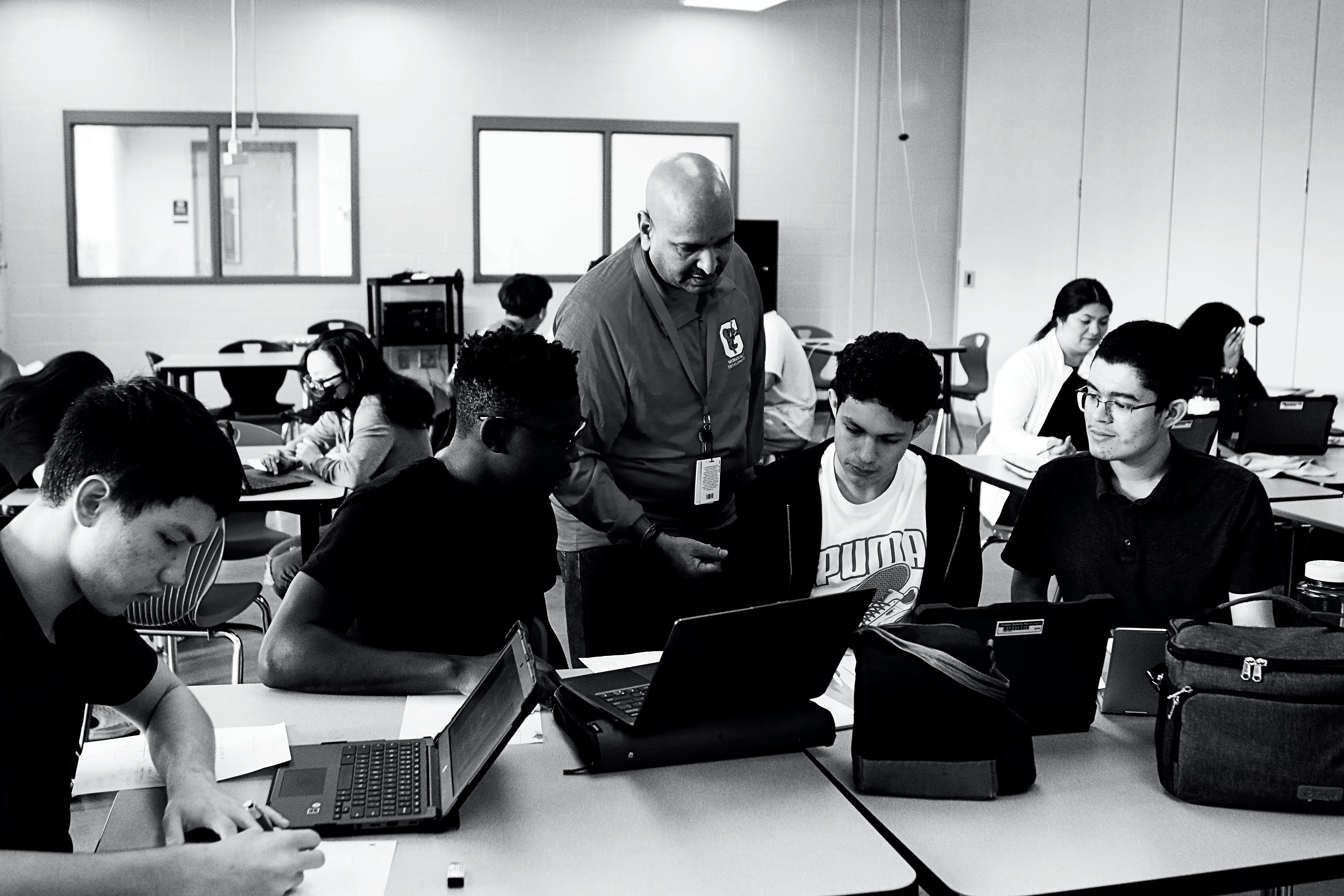
Valedictorian Policy
Each year we recognize the Valedictorian of the graduating the class. The Valedictorian is the students with the highest total weighted Grade Point Average. In order to be recognized as Valedictorian, students must meet the following criteria:
• Must be a member of the graduating ‘cohort’. Students graduating in their 3rd or 5th years will be eligible.
• Must have at least 4 semesters of continuous enrollment at GHS prior to the date of graduation
• Must have no major discipline incidents that could lead to long-term suspension, expulsion, or placement in alternative school during their 11th and 12th grade enrollment.
In the case of a tie, the Valedictorian will be chosen by calculating overall numeric grade average. In this case, the numeric average weighted courses will be multiplied by 12.5%. If this also results in a tie, we will recognize co-Valedictorians.
7
TESTING OVERVIEW
NATIONAL ASSESSMENTS
PSAT
PSAT (Preliminary SAT/National Merit Scholarship Qualifying Test) is administered in October to all students in 10th grade. Funding is provided for all 10th and those 11th grade students who choose to participate. Scores of 11th grade students determine eligibility for National Merit Scholarships.
SAT
SAT (Scholastic Assessment Test) is administered several times each year at sites designated by the testing company. Juniors are encouraged to take the SAT in the spring of their junior year and again in the fall of their senior year. Students should determine if colleges to which they are applying require the SAT.
ACT
ACT exams are administered several times each year at sites designated by the testing company. Juniors are encouraged to take this test in the spring of their junior year and again in the fall of their senior year.
AP TESTING
Advanced Placement (AP) exams are administered in May for college placement. Students who take AP courses are encouraged to take the AP exams.
STATE TESTING
In Georgia, all students are required to take End of Course Milestones Tests (EOC) in the following courses:
- Algebra: Concepts and Connections
- Biology
- American Literature
- United States’ History
Each assessment evaluates student learning based on the state-required curriculum. Students cannot earn credit for the above listed courses if they do not take the EOC test.
Georgia Milestones
The Georgia Milestones Assessment System is administered each year in one high school course per content area. The purpose of the assessments is to provide a valid measure of student achievement of the rigorous state content standards, and provide a clear indication of the student’s preparedness for the next educational level. The assessments require students to utilize multiple types of responses, or answers, to questions or prompts: selected responses (multiple choice items), constructed responses, extended responses, and technology enhanced items. For students with disabilities, each student’s Individualized Education Program (IEP) team determines how the student shall participate in Georgia’s student assessment program. If a student’s IEP team determines that a student cannot meaningfully access the Georgia Milestones Assessment System, even with maximum appropriate accommodations, then the student will participate in the Georgia Alternate Assessment (GAA 2.0).
Georgia Alternate Assessment 2.0 (GAA)
The GAA 2.0 is designed to ensure that students with significant cognitive disabilities are provided access to the state academic content standards and given the opportunity to demonstrate achievement of the knowledge, concepts, and skills inherent in the standards. Unlike the GAA, the GAA 2.0 is not a portfolio-based assessment. Thus, it will measure students’ achievement and not progress. The GAA 2.0 will be administered to all eligible students in Grades 3-8 and 11. Students in Grades 3-8 and 11 will be assessed in English Language Arts and Mathematics. Students in Grades 5, 8, and 11 will also be assessed in Science and Social Studies.
ACCESS for ELLs
ACCESS for ELLs is administered, annually, to all English learners in Georgia. ACCESS for ELLs is a standards-based, criterion referenced English language proficiency test designed to measure English learners’ social and academic proficiency in English. It assesses social and instructional English as well as the language associated with language arts, mathematics, science, and social studies within the school context across the four language domains. ACCESS for ELLs meets the federal requirements that mandates require states to evaluate EL students in grades K through 12 on their progress in learning to speak English. ACCESS for ELLs is used to determine the English language proficiency levels and progress of ELs in the domains of speaking, listening, reading, and writing.
8
COLLEGE & CAREER PLANNING
Colleges fall into six admissions categories ranging from Most Competitive to Noncompetitive. Classifications are based on GPA, class rank, test scores, and the school’s acceptance rank. When making admissions decisions, many colleges take into consideration the applicant pool, rigor of curriculum, recommendations, special talents, leadership, essays, intellectual curiosity, and student’s level of interest.
Most Competitive Schools
GPA Class Rank: Typically accept students with an A average/are in the top 10% of their class or higher.
Test Scores: Median SAT of 655 to 800 on critical reading and math. Score above a 29 on the ACT.
Acceptance Rate: Many admit only a small percentage (1% to 33%) of students who apply.
Examples: Duke, Brown, Harvard, the Military Academies, Princeton, Stanford, Yale, Emory, Columbia
Highly Competitive Schools
GPA and Class Rank: Look for students with at least a B or B+ average in rigor high school classes. Accept most of their students from the top 10% to 35% of their high school class.
Test Scores: Median SAT of 620 to 654 on SAT critical reading and math. Score between 27 and 28 on the ACT.
Acceptance Rate: Generally accept between 33% and 50% of their applicants.
Examples: Georgia Tech, University of Georgia, University of Florida, Furman, Oglethorpe, New York University, Boston University, Vanderbilt, UNC Chapel Hill.
Very Competitive Schools
GPA and Class Rank: Look for students with at least a B‐average and students that rank in the top 35% to 50% of their class or higher.
Test Scores: Median SAT of 572 to 620 on SAT critical reading and math. Score between 23 and 27 on the ACT.
Acceptance Rate: Generally accept between 50% and 75% of their applicants
Examples: North Georgia, Georgia College, Georgia State University, Appalachian State University, University of Tennessee, University of Alabama, Clemson
Competitive Schools
GPA and Class Rank: Some require that students have at least a high school GPA of B‐ or better, although some state a minimum of C+ or C. They typically admit students in the top 50% to 65% of their high school class or higher.
Test Scores: Median SAT between 500 to 572 on critical reading and math. Score between 21 and 23 on the ACT.
Acceptance Rate: generally accept 75% to 85% of their applicants.
Examples: Valdosta, Georgia Southern, Kennesaw State, Auburn
Less Competitive Schools
GPA and Class Rank: Admit students with averages below C who rank in the top 65% of their class.
Test Scores: The median freshman test scores are below 500 SAT critical reading and math and below 21 on the ACT.
Acceptance Rate: generally accept 85% or more of their applicants.
Examples: Georgia Gwinnett College, West Georgia, Augusta State, Savannah State, Columbus State, Clayton State
Noncompetitive Schools
GPA and Class Rank: Only require evidence of graduation from high school or GED.
Test Scores: Some require that entrance exams be taken for placement purposes only.
Acceptance Rate: generally accept 98% or more of their applicants.
Examples: Georgia Perimeter, Gwinnett Tech, Lanier Tech, Athens Tech, Chattahoochee Tech
9
Starting in August 2024, students and families will have the option to enroll in Horizon Academy. Horizon Academy offers a variety of non-traditional pathways for students looking for a high school that best meets their unique circumstances. This includes virtual instruction, blended learning, and more. If you are interested in learning more about opportunities in Horizon Academy, please be sure to discuss with your counselor.
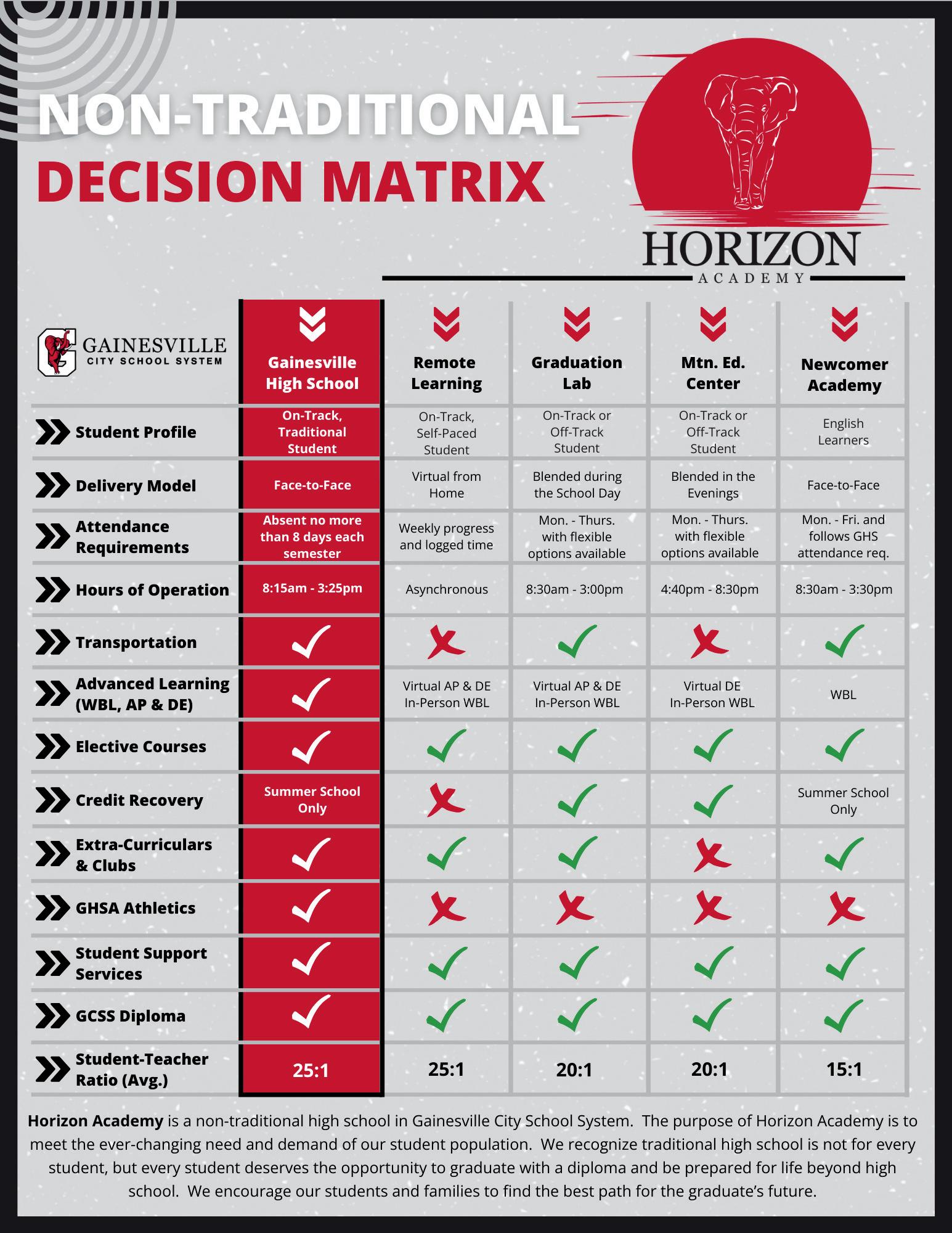


10
DUAL ENROLLMENT
The Dual Enrollment program allows students to take tuition-free college classes while in high school to earn both college and high school credit and gain exposure to college rigor.
Criteria:
Students must meet application requirements for their selected college(s): Lanier Technical College (2.6 GPA for academics/2.4 GPA for certificate programs), Brenau University (3.0 GPA), Toccoa Falls College (3.0 GPA), Truett McConnell University (3.0 GPA), University of North Georgia (3.25 AND 1010 SAT or 20 ACT), Georgia Institute of Technology Distance Math (AP Calculus AB and BC Score of 4 or 5 and must submit SAT scores).
Students must meet with the Dual Enrollment Coordinator. Parents are also welcome to attend informational and scheduling meetings. For information or to contact the coordinator, please go to https://ghsweb.gcssk12.net/advanced-studies/dual-enrollment.
Students and parents must complete the GAFutures Funding Application found at gafutures.org.
Term and Conditions:
The Georgia Student Finance Commission (GSFC) will fund up to 30 hours of college credit.
Students are not required to meet residency or citizenship requirements.
Academic college courses count as rigor courses for HOPE Scholarship Eligibility.
Students must register with Selective Service the semester they turn 18 in order to receive GSFC funding for that semester.
Once enrolled, students must meet satisfactory academic progress as defined by the college or university. If a student fails or withdraws from two or more courses, the student is dismissed from the dual enrollment program.
After the conclusion of the college Drop/Add period, students who wish to withdraw from a course must provide documentation of a medical need or other hardship and must be approved by campus principal.
No tuition costs
No book costs
Bus transportation to Lanier Tech
Courses Eligible for Funding
English
Mathematics
Science
Social Studies
Foreign Language
Career, Technical and Agricultural course
Electives
For a detailed list of approved courses, visithttps://apps.gsfc.org/secure/dsp_accel_c ourse_listings.cfm
CLASSES
FREE COLLEGE
11
NCAA ELIGIBILITY
Coursework Requirements for NCAA Athletics and Scholarships
Here is an overview of the basic NCAA eligibility criteria. Visit the NCAA Eligibility Center for more details.
Division I: 16 Core Courses
4 years of English
3 years of math (algebra 1 or higher level)
2 years of natural or physical science (including one year of lab science if offered)
1 extra year of English, math, or science
2 years of social science
4 years of additional core courses (from any category above, or in a foreign language, nondoctrinal religion or philosophy)
Division II: 16 Core Courses
3 years of English
2 years of math (algebra 1 or higher level)
2 years of natural or physical science (including one year of lab science if offered)
3 extra years of English, math, or science
2 years of social science
4 years of additional core courses (from any category above, or in a foreign language, nondoctrinal religion or philosophy)
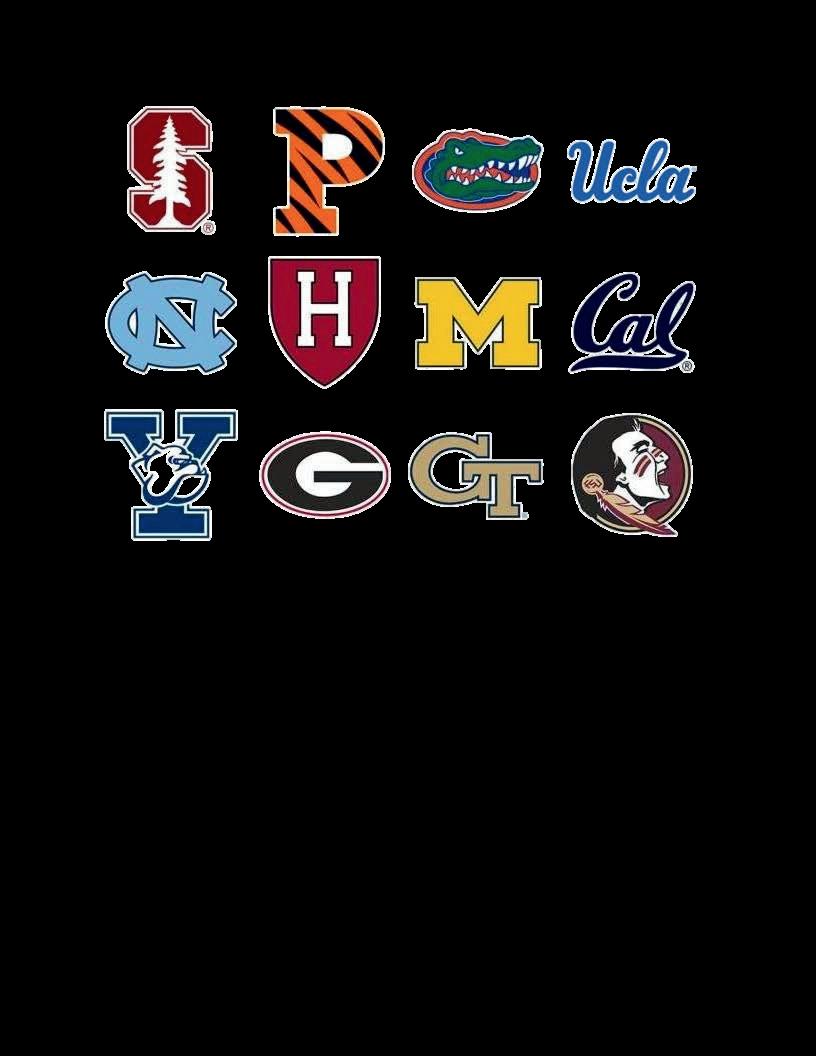
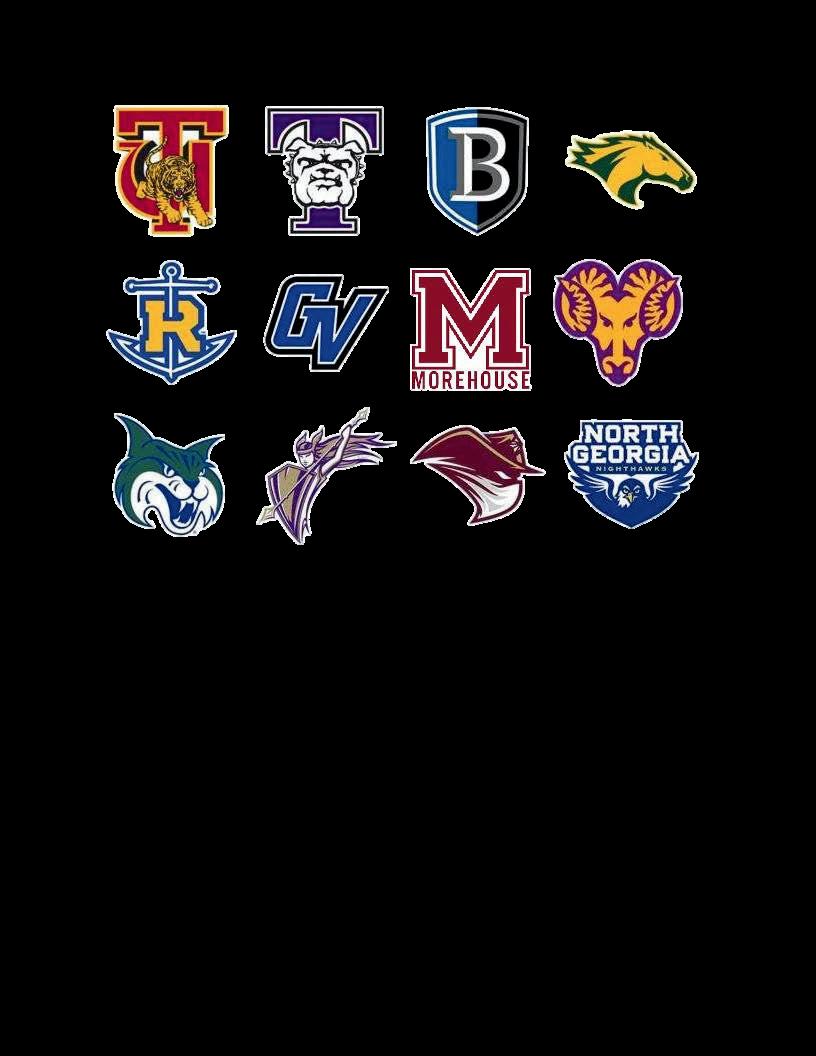
12
NCAA ELIGIBILITY
ACADEMIC STANDARDS
Division I Eligibility
All students entering college must have completed 16 core courses in high school. Earn a corresponding test score that matches your core course GPA (minimum 2.3) on the Division I Sliding Scale.
https://www.ncsasports.org/ncaa-eligibility-center/ncaasliding-scale
Division II Eligibility
All students entering college must have completed 16 core courses in high school. Earn a corresponding test score that matches your core course GPA (minimum 2.2) on the Division II Sliding Scale.
https://www.ncsasports.org/ncaa-eligibility-center/ncaasliding-scale
NCAA Core Courses Definition
An academic course in one or a combination of these areas: English, mathematics, natural/physical science, social science, foreign language, comparative religion, or philosophy.
A four-year college preparatory course and a course at or above the high school's regular academic level, for example, an AP class or outside college course.
Note: Remedial courses, or those taught at a slower pace or that cover less content are not admissible. And not all classes that meet high school graduation requirements meet NCAA course work requirements.
Meeting NCAA admission requirements does not guarantee admission into college—it simply determines whether students may participate in athletics during their freshman year. Students must follow each member college's admission policies and apply directly to that college.
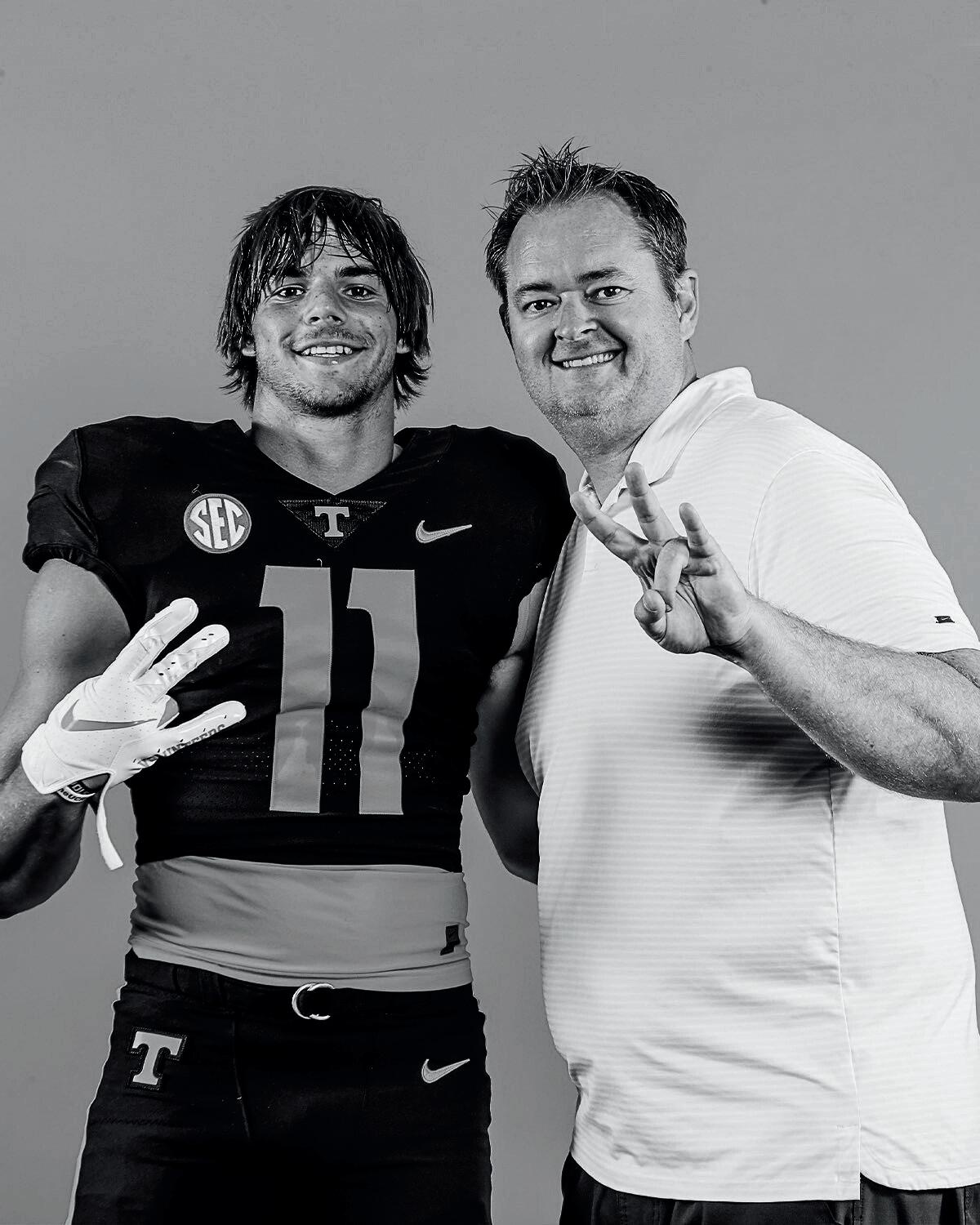
13

WORK-BASED LEARNING
Students can earn high school credit while working at a job or interning at a local business. If students have taken a course related to a career goal and want to gain real-world experience in that career area, Work-Based Learning may be a great choice.
The Work-Based Learning Program (WBL) is a structured experience that connects a student’s career goal and classroom learning with a productive work environment. Work-Based Learning includes student placement that may be paid or unpaid positions.
Work-Based Learning provides students with opportunities for instruction in occupational skills, career exploration, and guidance in identifying employment and educational goals. Students can connect what they learn in school with work-site application, enabling a smooth transition into the work force and/or education beyond high school.
Eligibility
11th and 12th grade students who are a minimum of 16 years of age and meet the program requirements may enroll in the Work-Based Learning Program
Basic Requirements for Participation
A defined career goal.
Enrollment in or completion of a course in Career, Technical and Agricultural Education (CTAE) that is related to the student’s career goal and job placement.
Good attendance and clean discipline record.
Valid driver’s license, reliable transportation and proof of insurance.
Work site that aligns to career goal and high school course.
Student Benefits
Explore possible careers, enhance skill development, and apply academic proficiencies.
Develop employability skills including positive work habits and attitudes.
Make connections among school, post-secondary opportunities, and employers.
Improve job prospects after graduation.
Learn from skilled professionals.
Earn elective credit upon completion of required documented hours and class assignments.
Earn class credit and a paycheck with the job.
14
WORK-BASED LEARNING
The Gainesville Community supports students’ Work Based learning experience. The hands-on learning is a priceless experience that allows students to gain employability skills in chosen career area.
Benefits of the Work-Based Learning Program to Business and Industry
Provides opportunity to prepare future employees.
Offers a source of skilled and motivated future employees.
Offers an opportunity to provide community services.
Increases employer visibility in education.
Provides an opportunity to communicate required job-specific skills to educational personnel.
Community Benefits
Provides an informed, competent, and productive future workforce.
Ensures cooperation and understanding between education, business, and the community.
Enhances awareness of local employment opportunities.
Builds the foundation for a more productive local economy.

Work-Based Learning provides students the opportunity to receive both academic and occupational experiences in the world of work that will increase their knowledge, skills, and abilities for further education and employment.
For more information or to sign up, please go to https://ghsweb.gcssk12.net/advanced-studies/wbl
By the Numbers
282 Students Enrolled in 2023-2023 (265 for 21-22, 211 for 20-21)
117,007 Hours Worked in 2022-2023 (76,359 in 21-22, 59,311 for 20-21)
$1,416,763 Earned in 2022-2023 ($846,524 in 21-22, $547,315 for 20-21)
15
ADVANCED PLACEMENT OPPORTUNITIES
When students explore their academic interests, Advanced Placement (AP) courses can better prepare them for a direction that is unique to their skills and postsecondary options.
There are more than 30 AP courses approved by The College Board, each one connecting directly to a wide variety of college majors and careers. For example, a career in law enforcement might be supported by taking AP Psychology. Similarly, AP Statistics could be a good first step for a Sociologist. Visit https://www.collegeboard.org/ to use the tools online to explore what AP courses can support future career choices.
AP courses also help transform the subjects students are enthusiastic about into a fulfilling future. If studying languages, taking an AP course could help students in everything from a college major in languages to a career in Anthropology, Ethnic Studies, or Fashion Design. See where an AP course subject could lead by exploring more on the website https://www.collegeboard.org
Taking AP courses will give students the opportunity to:
Be challenged academically
Stand out in college admission process
Earn college credit and/or placement with a successful exam score
Build college skills—research, critical thinking, and analysis
AP Classes offered at GHS
Gainesville High School AP Course Offerings
*Some AP courses are not offered every year.
AP Biology
AP Chemistry
AP Physics
AP Environmental Science
AP Human Geography
AP World History
AP European History
AP US History
AP Government
AP Microeconomics
AP Statistics
AP Precalculus
AP Calculus AB
AP Calculus BC
AP Spanish Language & Culture
AP Spanish Literature & Culture
AP Language
AP Literature
AP Seminar
AP Research
AP Studio 2D/3D Art or Drawing
AP Psychology
16
ENGLISH
Graduation Requirements
4 Units Required
9th Grade Literature and Composition1.
American Literature2.
3rd English Core Credit3.
4th English Core Credit4.
9th Grade Literature
*Required for graduation
Integrates writing, grammar, and usage, literature, speaking, listening, and critical thinking skills; develops understanding of both structure and meaning of a work of literature, as well as an understanding of the process of interpreting a text. Students will conduct and evaluate research as well as participate in a comprehensive approach to the writing process.
American Literature
*Required for graduation
Focusing on a study of American literature, students develop an understanding of chronological context and the relevance of period structures in American literature. This course integrates writing, grammar, usage, literature, speaking, listening, and critical thinking skills. Students will conduct and evaluate research as well as participate in a comprehensive approach to the writing process. A state-mandated End-Of-Course Assessment (EOC) is required as 20% of the final grade.
Multicultural Literature
Focusing on multicultural literature, this course integrates writing, grammar, and usage, literature, speaking, listening, and critical thinking skills; develops understanding of themes that relate to life, and of themes that recur in diverse cultural contexts.
Advanced Composition
Advanced Composition uses contemporary texts to focus on skills that prepare students for writing, listening, reading, and speaking in college, technical school, and/or the workplace. Students will develop skills that lead to both effective writing and critical reading.
AP Language
The course focuses on college level reading and writing intensive course. The course conforms to the College Board recommendations for the AP Language/Composition Exam; emphasizes critical thinking, reading, and writing through the study and discussion of argument, analysis, and synthesis; stresses the connection between reading and writing mature prose. Enrollment in AP includes the commitment to take the AP exam.
17
ENGLISH
AP Literature
The course focuses on college level reading and writing intensive course. It includes a comprehensive study of works from various literary genres and periods. The focus is on the complexity and thorough analysis of literary works. The students will explore the social and historical values that reflect and embody the period in which they were written. The textual detail and historical context provide the foundation for interpretation: the experience of literature, the interpretation of literature, and the evaluation of literature. Writing to evaluate a literary work involves making and explaining judgments about its artistry and exploring its underlying social and cultural values through analysis, interpretation, and argument (e.g. expository, analytical, and argumentative essays). Enrollment in AP includes the commitment to take the AP exam.
AP Seminar
AP Seminar is a foundational course that engages students in cross-curricular conversations that explore the complexities of academic and real-world topics and issues by analyzing divergent perspectives. Using an inquiry framework, students practice reading and analyzing articles, research studies, and foundational literary and philosophical texts; listening to and viewing speeches, broadcasts, and personal accounts; and experiencing artistic works and performances. Students learn to synthesize information from multiple sources, develop their own perspectives in research-based written essays, and design and deliver oral and visual presentations, both individually and as part of a team. Ultimately, the course aims to equip students with the power to analyze and evaluate information with accuracy and precision in order to craft and communicate evidence-based arguments. Enrollment in AP includes the commitment to take the AP exam.
Dual Enrollment
Dual enrollment courses fulfill the core English graduation requirements. Students who meet enrollment guidelines can take college classes for high school credit. Courses are scheduled for University of North Georgia, Brenau University, and Lanier Technical College.
• Advanced Composition
• American Literature
• British Literature
For general English courses, students are encouraged to read text of their own choosing in the summer.
For Honors level English courses, there are pre-selected texts for students. Specific information is posted on the GHS website.
18
SUMMER READING
MATH
Graduation Requirements
4 Units Required
Algebra: Concepts & Connections1.
Geometry: Concepts & Connections2.
Advanced Algebra: Concepts & Connections3.
Fourth Core Math Option4.
Foundations of Algebra
Designed to revisit and expand the understanding of foundational algebra concepts, will employ diagnostic means to offer focused interventions, and will incorporate varied instructional strategies to prepare students for higher high school math courses. The course will emphasize both algebra and numeracy in a variety of contexts including number sense, proportional reasoning, quantitative reasoning with functions, and solving equations and inequalities.
Algebra: Concepts & Connections
*Required for graduation
Designed to help students gain a foundation in linear, quadratic, and exponential functions before they are brought together to be compared/contrasted later in the course. As key characteristics of functions are introduced and later revisited, students will gain a deeper understanding of such concepts as domain and range, intercepts, increasing/decreasing, relative maximum/minimum, symmetry, end behavior, and the effect of function parameters. A state mandated End-Of- Course Assessment (EOC) is required as 20% of final grade.
Algebra: Concepts and Connections Support
Support class to address the academic needs of students who have traditionally struggled in math. Students are provided additional time and resources in order to successfully complete grade level math course.
Elective credit only.
Geometry: Concepts & Connections
*Required for graduation
Geometry is the second course in a sequence of three required high school courses designed to ensure career and college readiness. The course represents a discrete study of geometry with correlated statistics applications.
Prerequisite: Algebra: Concepts & Connections
Geometry: Concepts and Connections Support
Support class to address the academic needs of students who have traditionally struggled in math. Students are provided additional time and resources in order to successfully complete grade level math course.
Elective credit only.
19
MATH
Advanced Algebra: Concepts & Connections
*Required for graduation
Advanced Algebra is the culminating course in a sequence of three high school courses designed to ensure career and college readiness. It is designed to prepare students for fourth course options relevant to their career pursuits.
Prerequisites: Algebra: Concepts & Connections and Geometry: Concepts & Connections
Enhanced Advanced Algebra & Pre-Calculus: Concepts & Connections
This accelerated course combines the study of Advanced Algebra & Pre-Calculus. This course is designed to prepare students for AP Calculus through the study of Radical, Exponential, Logarithmic, Rational & Piecewise Functions. The course extends to exploring PreCalculus concepts such as Trigonometry & the Unit Circle, Conic Sections, Polar Equations, Vectors & Sequences & Series.
Prerequisites: (H) Algebra: Concepts & Connections and (H) Geometry: Concepts & Connections
Fourth Math Options: One is required for graduation.
Pre-Calculus
Pre-Calculus focuses on standards to prepare students for a more intense study of mathematics. The study of circles and parabolas is extended to include other conics such as ellipses and hyperbolas. Trigonometric functions are further developed to include inverses, general triangles and identities. Matrices provide an organizational structure in which to represent and solve complex problems. Students expand the concepts of complex numbers and the coordinate plane to represent and operate upon vectors. Probability rounds out the course using counting methods, including their use in making and evaluating decisions. Prerequisites: (H) Advanced Algebra: Concepts & Connections
Advanced Math Decision Making (AMDM)
The course will give students further experiences with statistical information and summaries, methods of designing and conducting statistical studies, an opportunity to analyze various voting processes, modeling of data, basic financial decisions, and use network models for making informed decisions.
Dual Enrollment
Dual enrollment courses fulfill the core Math graduation requirements. Students who meet enrollment guidelines can take college classes for high school credit. Courses are scheduled for Georgia Tech, Brenau University, University of North Georgia, and Lanier Tech.
Math 1111 College Algebra
Introduction to Statistics
Pre-Calculus
Calculus
20
MATH
Fourth Math Options cont'd: One is required for graduation.
AP Pre-Calculus
Pre-Calculus focuses on standards to prepare students for a more intense study of mathematics. The study of circles and parabolas is extended to include other conics such as ellipses and hyperbolas. Trigonometric functions are further developed to include inverses, general triangles and identities. Matrices provide an organizational structure in which to represent and solve complex problems. Students expand the concepts of complex numbers and the coordinate plane to represent and operate upon vectors. Probability rounds out the course using counting methods, including their use in making and evaluating decisions. Prerequisites: (H) Advanced Algebra: Concepts & Connections
AP Statistics
The purpose of the course is to introduce students to the major concepts and tools for collecting, analyzing, and drawing conclusions from data. Students are expected to take the Advanced Placement Exam in May.
Prerequisites: (H) Algebra: Concepts & Connections
AP Calculus AB
The study of calculus includes an extensive use of practical applications from engineering, physical science, business, economics, and the life sciences. There will be strong emphasis on problem solving where there is more than one well-defined procedure for obtaining the answer. Students are expected to take the Advanced Placement Exam in May.
Prerequisites: (H) Pre-Calculus or Enhanced Advanced Advanced Algebra & AP Pre-Calculus: Concepts & Connections
AP Calculus BC
The study of calculus includes an extensive use of practical applications from engineering, physical science, business, economics, and the life sciences. There will be strong emphasis on problem solving where there is more than one well-defined procedure for obtaining the answer. BC Calculus is an extension of AB Calculus rather than and enhancement. The overlapping topics are covered in similar depth. Students are expected to take the Advanced Placement Exam in May.
Prerequisites: AP Calculus AB
21
SCIENCE
Graduation Requirements
4 Units Required
Biology1.
Physical Science OR Physics2.
Chemistry OR Environmental Science OR an AP Science Cours e3.
Fourth Core Science Option4.
Biology I
*Required for graduation
Biology focuses on the study of life by examining fundamental concepts of cellular biology, genetics, evolution, classification, and ecology. Scientific process and laboratory skills are emphasized, as well as reading, discussing, and resolving biologically related issues and topics. A state mandated End-Of-Course Assessment (EOC) is required for 20% of final grade.
Environmental Science
*Env. Science, Chemistry, or an AP Science is required
Environmental Science provides students with the opportunity to use concepts they learned in biology and physical science to investigate natural processes in the environment, identify and analyze ecological problems, evaluate the relative risks associated with these problems, and examine solutions for resolving or preventing them.
Chemistry
*Env. Science, Chemistry, or an AP Science is required
Introduces chemistry; covers science process skills, units of chemistry, atoms and collections of atoms, periodicity and bonding, compounds and reactions, characteristics of states of matter, acid/base chemistry, chemical dynamics and equilibrium, reference, research skills, and lab safety. Labs and demonstrations will be used to investigate the interactions between matter and energy.
Physics
*Physics or Physical Science is required
Covers basic mechanics, kinetic theory, thermodynamics, wave mechanics, electricity, particle physics, and reference, research skills, lab safety, and process skills. This curriculum includes basic concepts such as interactions of matter and energy, velocity, acceleration, force, energy, momentum, and charge. Physics Honors is a rigorous and intensive college preparatory course for highly motivated students. It is designed to continue student investigations of the physical sciences and will include concepts such as interactions of matter and energy, velocity, acceleration, force, energy, momentum, and charge.
Fourth Science Options: One is required for graduation.
Human Anatomy & Physiology
This course covers science process skills and laboratory safety, body organization, chemistry of life, cells and tissues, homeostasis, skeletal system, muscular system, nervous system, endocrine system, circulatory system, respiratory system digestive system, metabolism, urinary system, integumentary system and reproduction system. *Students who pass Essentials of Healthcare also receive credit for this course.
22
SCIENCE
Fourth Science Options cont'd: One is required for graduation.
Forensic Science
In this course students will learn the scientific protocols for analyzing a crime scene, how to use chemical and physical separation methods to isolate and identify materials, how to analyze biological evidence and the criminal use of tools, including impressions from firearms, tool marks, arson, and explosive evidence.
AP Environmental Science
*Env. Science, Chemistry, or an AP Science is required
Environmental Science AP is a college level science. The course provides students concepts, and methodologies required to understand the interrelationships of the natural world and to identify and analyze environmental problems both natural and human-made. Considerable emphasis is placed on field investigations as well as on laboratory study. Enrollment in AP includes the commitment to take the AP exam.
AP Biology
*Biology, Honors Biology or AP science required
AP Biology is an introductory college-level biology course. Students cultivate their understanding of biology through inquiry-based investigations as they explore topics like evolution, energetics, information storage and transfer, and system interactions. Enrollment in AP includes the commitment to take the AP exam.
AP Chemistry
*Honors Chemistry or AP Science required
AP Chemistry is an introductory college level course teaching the fundamental concepts of chemistry including structure and states of matter, intermolecular forces, and reactions. Hands-on lab investigations and the use of chemical calculations to solve problems are integral parts of the course. Enrollment in AP includes the commitment to take the AP exam.
AP Physics I
*Honors Physics or AP Science and Honors Algebra II is required
The AP Physics I course is the equivalent of a first-semester college course in algebra-based physics. The course covers Newtonian mechanics (including rotational dynamics and angular momentum); work, energy, and power; and mechanical waves and sound. It will also introduce electric circuits. Enrollment in AP includes the commitment to take the AP exam.
Additional Fourth Science Credit Options
The following CTAE courses count towards satisfying the fourth science requirement, a CTAE pathway completion requirement, AND have been approved by the Board of Regents as a fourth science.
Essential of Healthcare
Forensic Science and Criminal Investigations
Computer Science Principles
Programming, Games, Apps, and Society
AP Computer Science A
AP Computer Science Principles
23
SOCIAL STUDIES
Graduation Requirements
3 Units Required
1 credit World History1.
1 credit US History2.
½ credit Government3.
½ credit Economics4.
World History
*World History or AP World History is required
Emphasizes the political, cultural, economic and social development and growth of civilizations from ancient civilizations to the present. This course will require skills in reading and writing assignments and may include outside reading, essay writing and document based questions. Prerequisite: Teacher recommendation
AP World History
*World History or AP World History is required
This college level course focuses on applying historical thinking skills as students learn world history from 8000 BCE to the present. Emphasizes the political, cultural, economic and social development and growth of civilizations, covers the emergence of nations through trade/communications, intellectual development, scientific/technological development, emergence of nation states, nations in conflict and the emerging interdependence of nations in the first and twenty first centuries. The course content is equivalent to that found in college level freshman and sophomore courses. This course fulfills the graduation requirement for World History. Enrollment in AP includes the commitment to take the AP exam.
United States History
*US History or AP US History is required
This course emphasizes political, economic, cultural, and social issues in U.S. history from the discovery of American to the present. It includes discovery and settlement, Colonial Society, American Revolution, Constitution and the New Republic, Age of Jefferson, Nationalism, Sectionalism, Territorial Expansion, Civil War, Reconstruction, Industrialization, Progressive Era, World War I, Depression, New Deal, Word War II, and the Cold War. A state mandated End-Of-Course Assessment (EOC) is required as 20% of final grade.
AP United States History
*US History or AP US History is required
This advanced course includes the College Board topics for the Advanced Placement U. S. History Exam. Students will focus on applying historical thinking skills as they learn about U.S. history from approximately 1491 to the present. The course content is equivalent to that found in freshman and sophomore level college courses. It includes discovery and settlement, Colonial Society, American Revolution, Constitution and the New Republic, Age of Jefferson, Nationalism, Sectionalism, Territorial Expansion, Civil War, Reconstruction, Industrialization, Progressive Era, World War I, Depression, New Deal, Word War II, and the Cold War. Enrollment in AP includes the commitment to take the AP exam. A state mandated End-Of-Course Assessment (EOC) is required as 20% of final grade.
24
SOCIAL STUDIES
American Government .5 unit
*American Government or AP Government is required
Focuses on the foundation, principles and structure of the American system of government, examines the role of political parties, social factors as they relate to the role of the citizen, and analyzes the decision-making process that are a part of the system of American political behavior. The course requires skills in reading and writing assignments and may include outside reading, essay writing, and document based questions.
AP Government .5 unit
*American Government or AP Government is required
Conforms to the College Board topics for the AP exam; includes federalism, separation of powers, influences on the formulation and adoption of the Constitution, political beliefs, political parties and elections, interest groups, institutions and policy processes and civil liberties and civil rights. Outside reading, essay writing, and document based questions are a strong focus to understand the content. Enrollment in AP includes the commitment to take the AP exam.
Personal Finance & Economics .5 unit
*PF & Economics or AP Microeconomics is required
Focuses on the American economic system, fundamental economic concepts, comparative economic systems, microeconomics, macroeconomics and international economic interdependence. It stresses the ability to analyze critically and to make decisions concerning public issues.
AP Macroeconomics .5 unit
*PF & Economics or AP Microeconomics is required
This advanced course includes College Board topics for the Advanced Placement Macroeconomics exam. The emphasis is on macroeconomics, but the course also includes microeconomic, international, and personal finance components. The course is equivalent to what is offered at a freshman or sophomore level in college. Enrollment in AP includes the commitment to take the AP exam.
World Geography
The world geography course provides students with an analytical view of how geographic factors have and continue to influence human behavior on the earth. Students will examine how the physical and cultural geographic factors contribute to varying levels of cooperation within the major world regions. Additionally, students will examine the importance that political, environmental, and economic factors have in a region’s development.
Dual Enrollment
Dual enrollment courses can fulfill the core Social Studies graduation requirements. Students who meet enrollment guidelines can take college classes for high school credit. Courses are scheduled for Georgia Tech, Brenau University, University of North Georgia, and Lanier Tech. United States History, Economics 1101, Microeconomics, or Macroeconomics
Electives: Political Science, Psychology 1101, or Sociology
25
SOCIAL STUDIES
AP Human Geography
This AP course introduces the student to the systematic study of patterns and processes that have shaped human understanding, use, and alteration of Earth’s surface. Students employ spatial concepts and landscape analysis to examine human social organizations and its environmental consequences. They also learn about the methods and tools geographers use in their science and practice. Enrollment in AP includes the commitment to take the AP exam.
Psychology .5 unit
Psychology is the scientific study of behavior and mental processes. It is a unique science that often necessitates the use of special measurements and research methods. The course has four sections: psychological foundations and research, biological foundations, change in behavior and cognition, and variability of behavior among individuals and groups.
AP Psychology
This advanced course includes the College Board topics for AP Psychology. The philosophy of the psychology course is to allow the student to gain a better self-understanding and to learn about adjusting to life and gaining more knowledge of how to solve life’s problems. This course is taught from a personal adjustment approach with major emphasis placed upon the areas of personality, motivation, emotions, growth and development, mental health and mental illness, and social behavior. Enrollment in AP includes the commitment to take the AP exam.
Civil Rights in the United States .5 unit
This course is an in-depth study of civil rights in the United States. Students will explore, through various disciplinary lenses, the challenges and achievements in the march towards economic, societal, political, and equality by marginalized groups throughout United States history. Students can also explore how these ideas connect to a modern global society.
Current Issues .5 unit
Analyzes current issues and influences that are related to these issues and examines how decisions are made concerning those issues. Integrates and reinforces social studies skills
Introduction to Latinx Studies .5 unit
This course is an introduction to the study of Latinx people in the United States. Students will explore, through various disciplinary lenses, the culture, history, art, accomplishments, and the march towards societal and political equality as they relate to lives of Latinx people in the United States.
Sociology .5 unit
This course is an introductory study in sociology, the study of social behavior and the organization of human society. Students will learn about the historical development of the field of sociology and the procedures for conducting research in sociology. Students will also learn the importance and role of culture, social structure, socialization, and social change in today’s society.
26



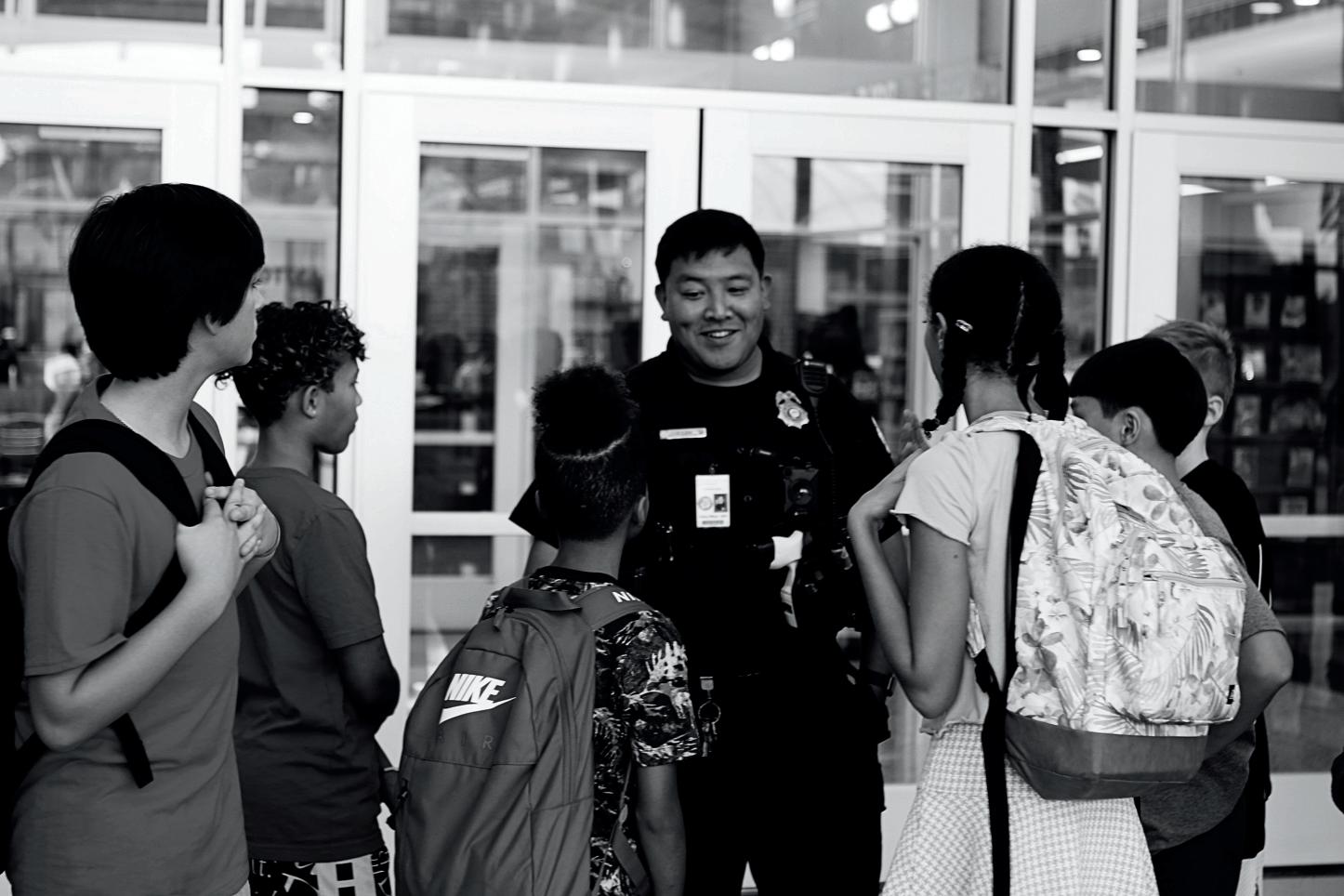
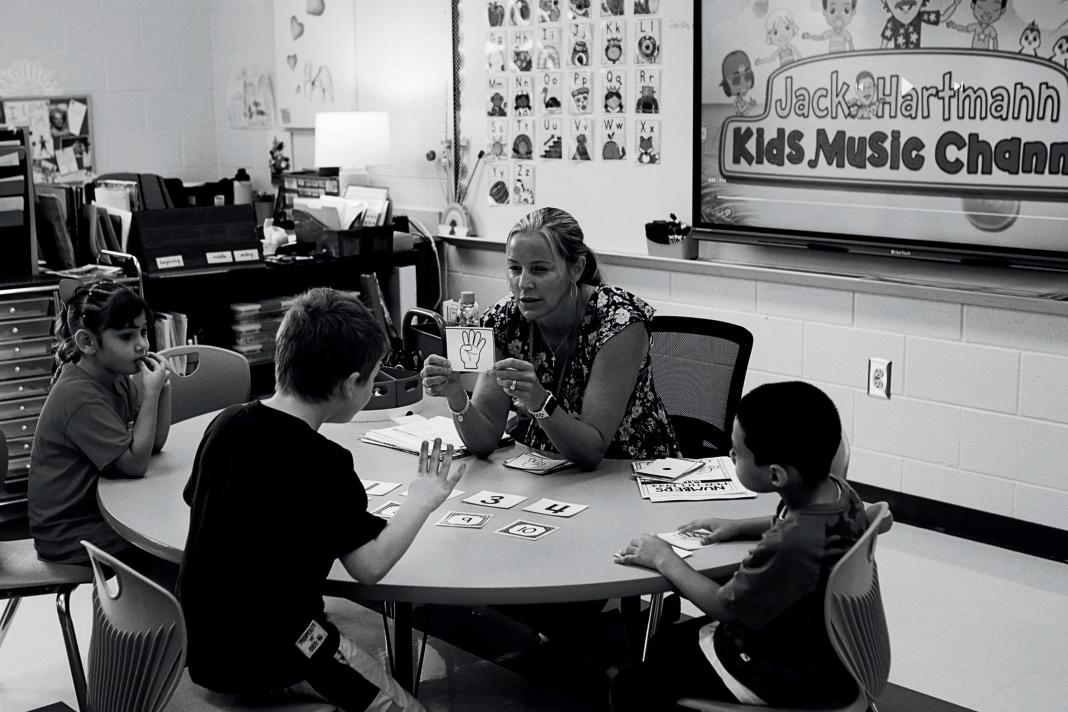

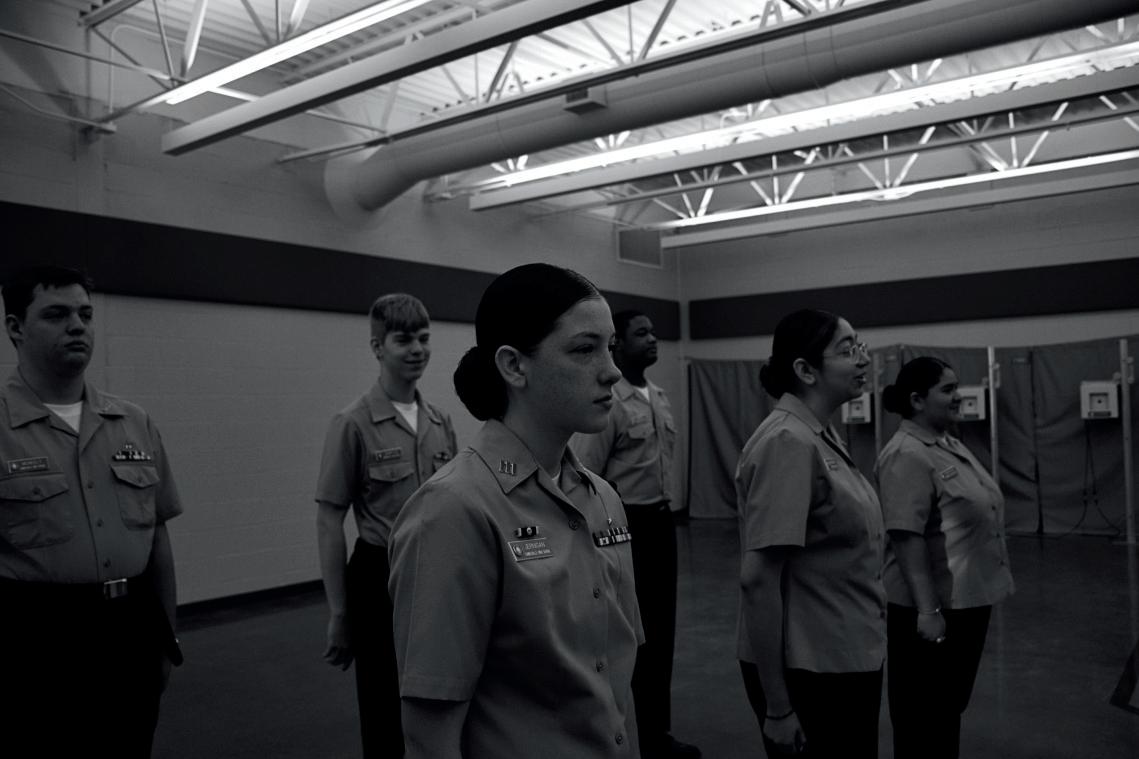
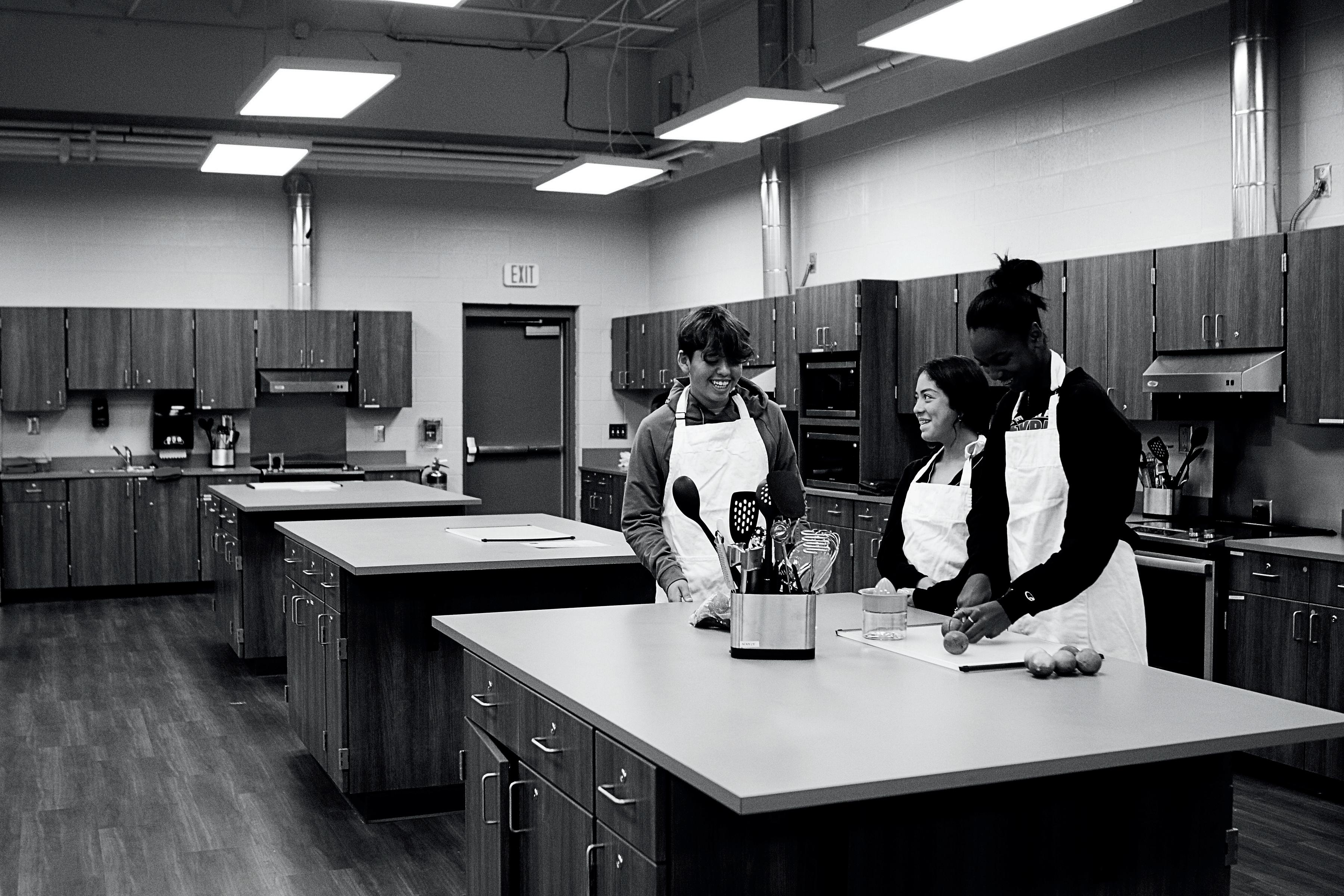



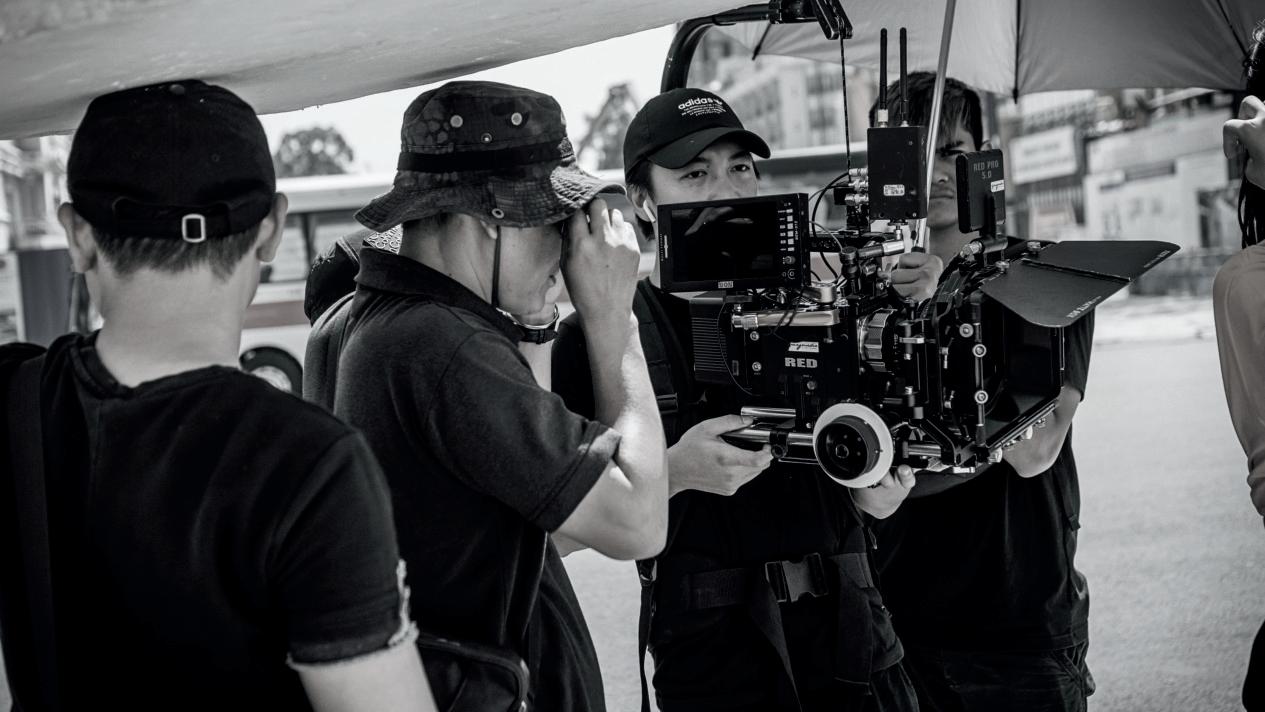

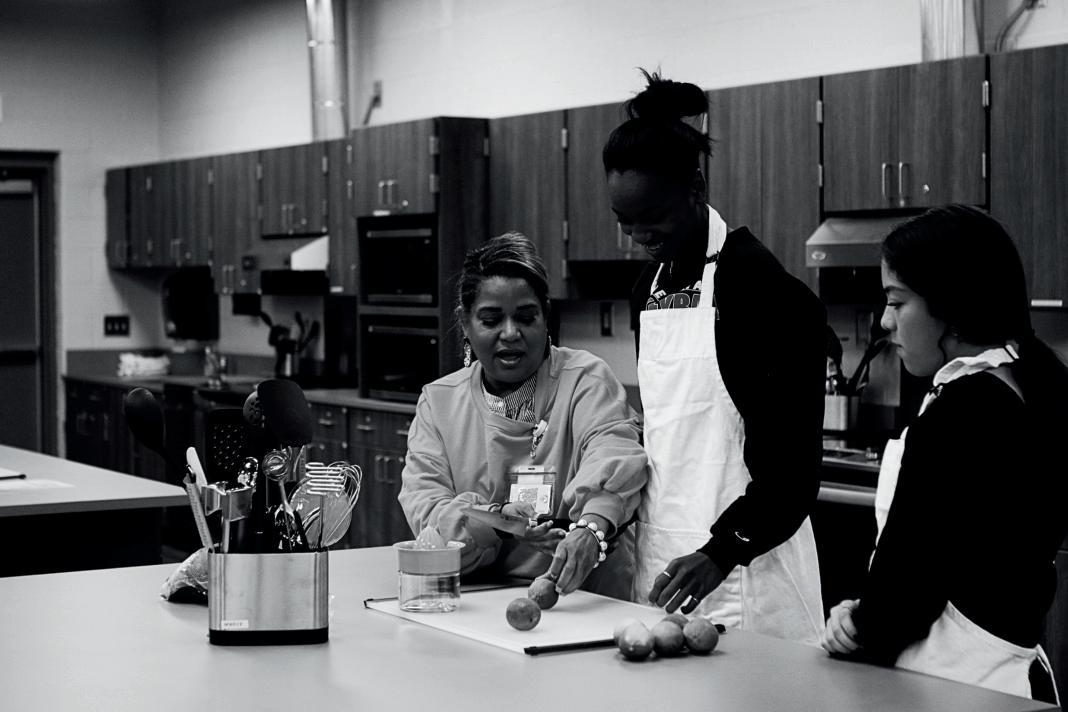
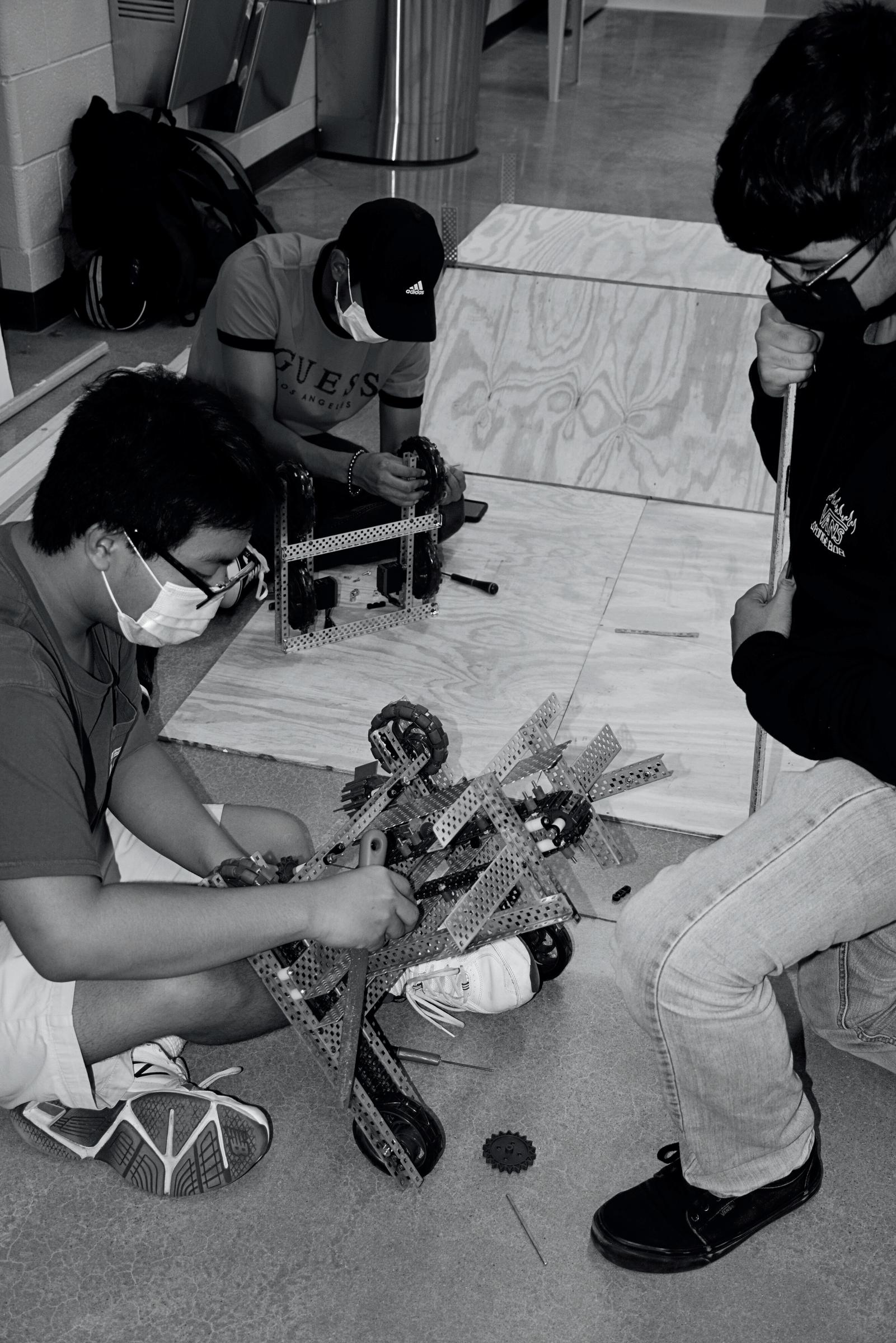
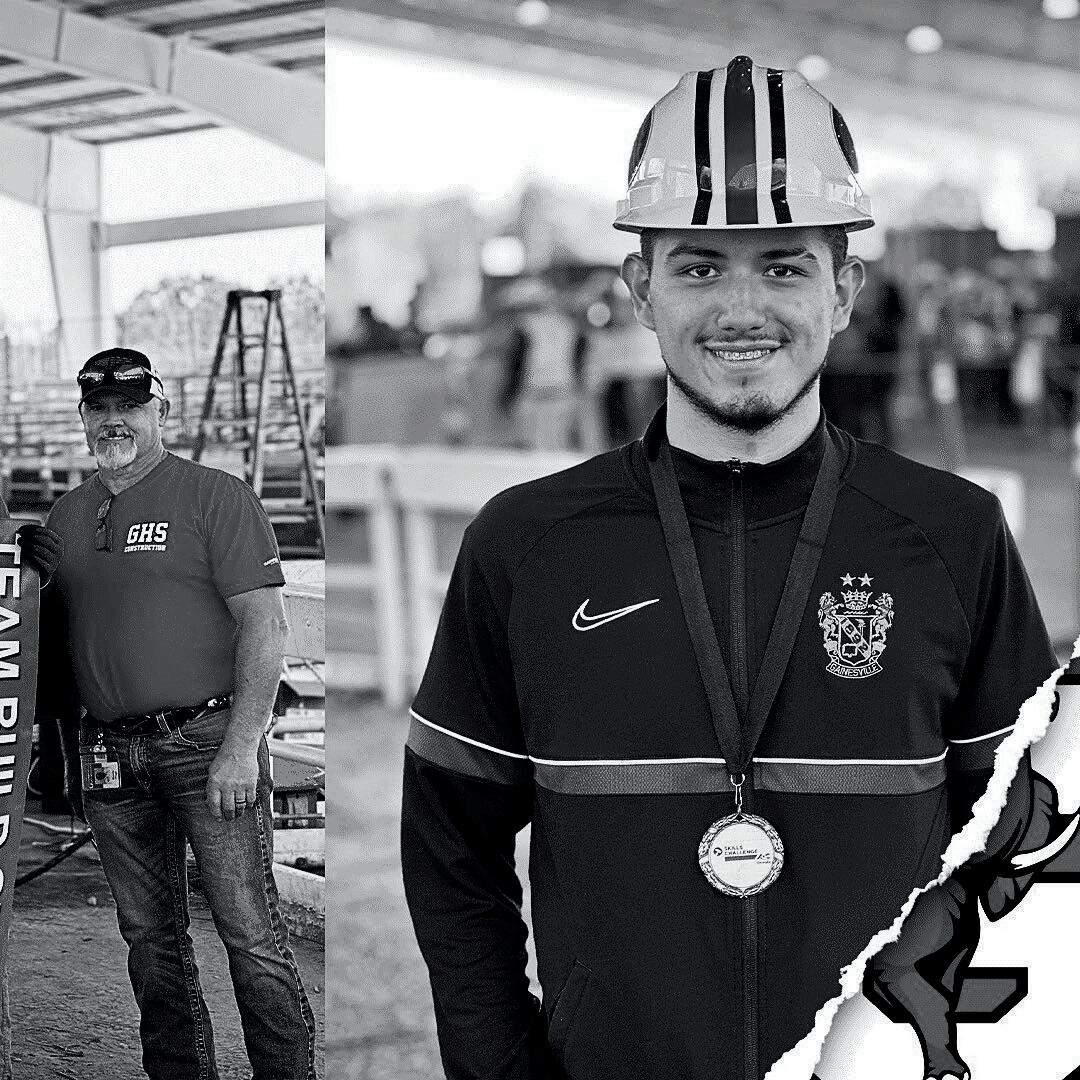
WORKFORCE WORKFORCE DEVELOPMENT DEVELOPMENT
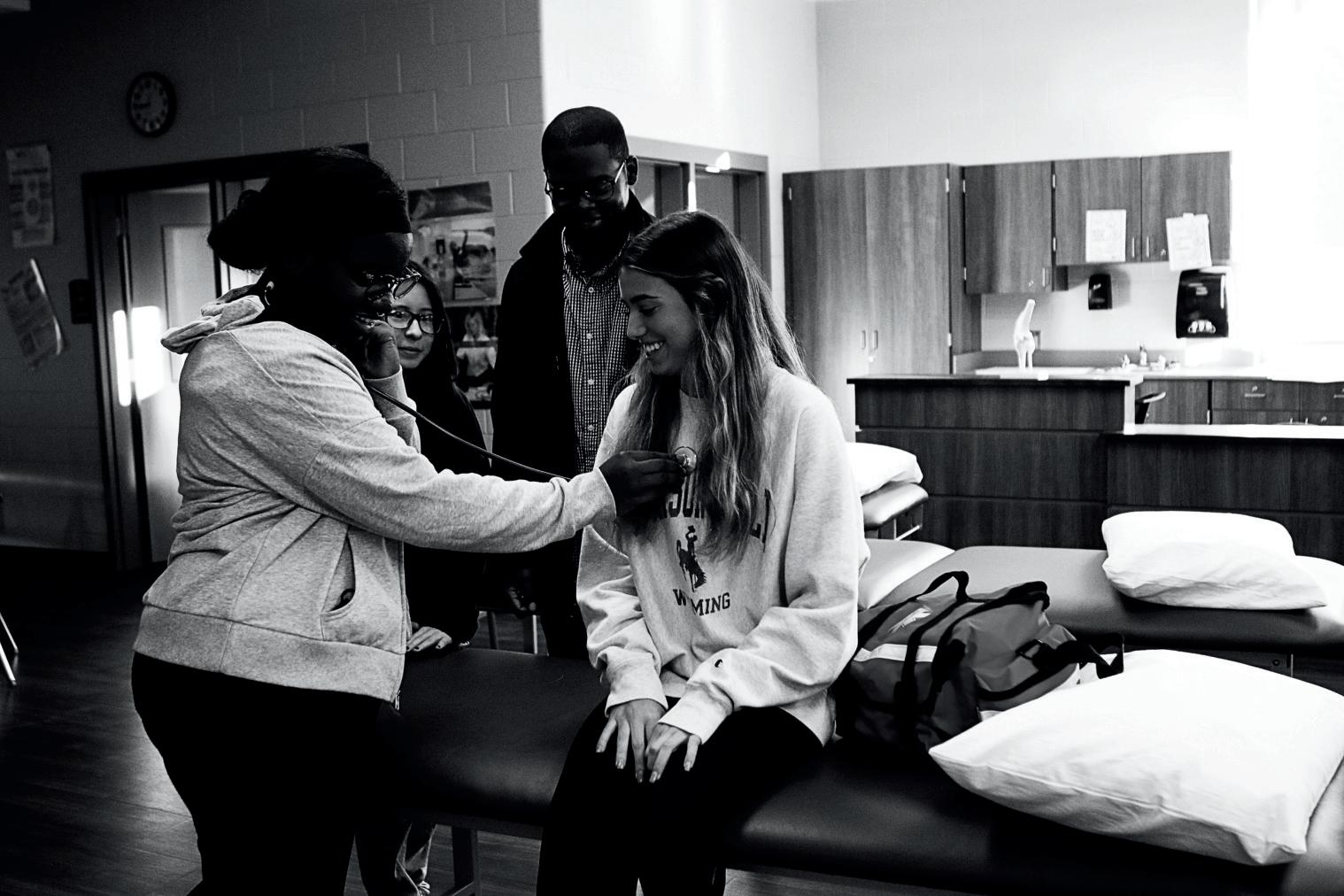
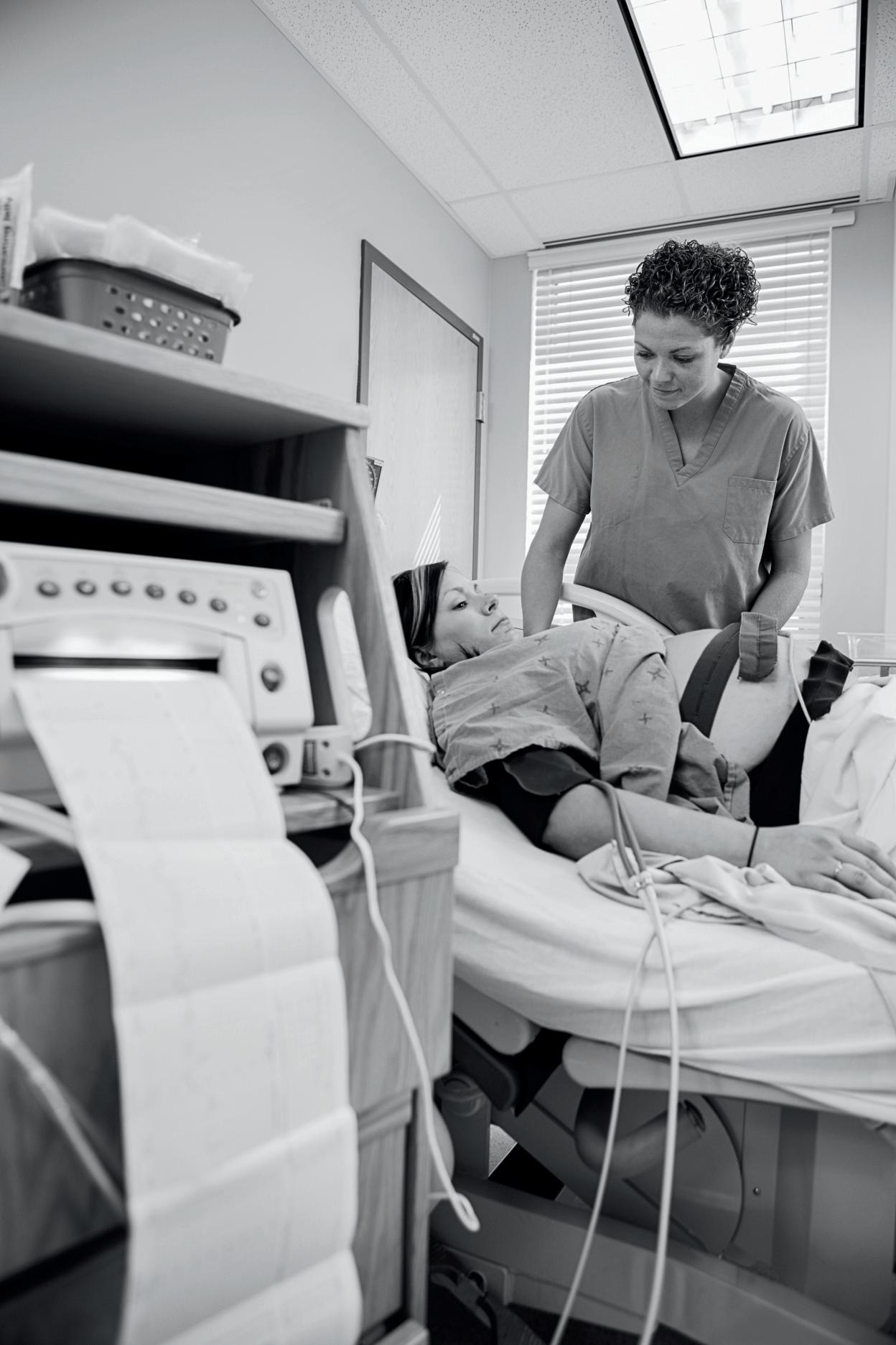

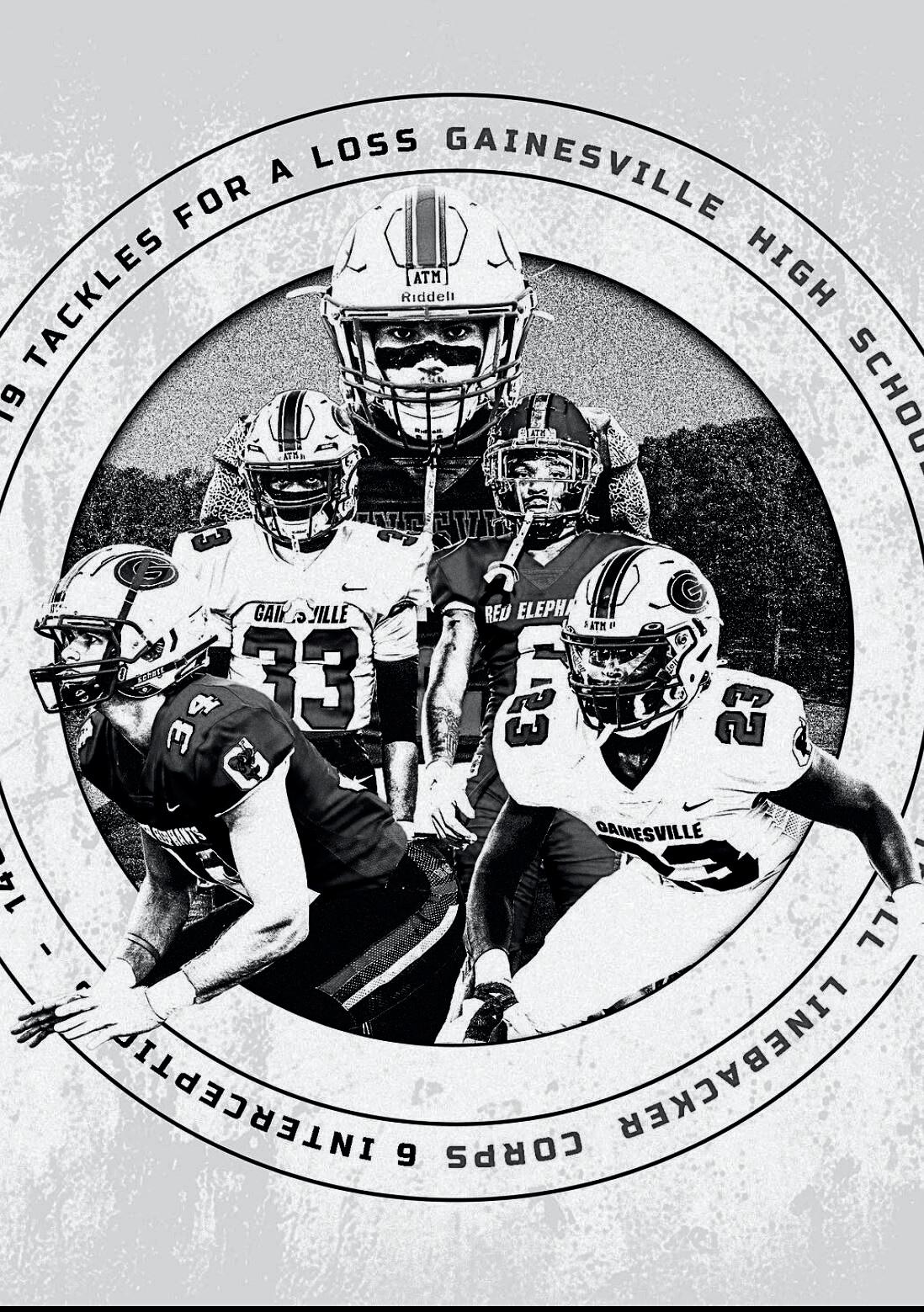
27
The studio is the classroom. Using state-of-the-art technology, students will complete projects in designing, writing, producing, editing, and filming. Television, film, and radio can be a passport to jobs in this ever-growing industry. Georgia has become one of the go-to places for the television and film industry in the Southeast. Whether in front of the camera, the voice behind the microphone, or editing the lighting for production, students will learn every step to create a finished multimedia product.
PATHWAY COURSES
Course 1 - Audio Video Technology & Film 1
Students begin with basic introduction skills for the audio and video technology career field. A hands-on experience in equipment use, script writing for audio and video, production teams, production programming, lighting, recording and editing, and studio production will engage students throughout the first course.
Course 2 - Audio Video Technology & Film 2
Transfer skills learned in the first course to skills including writing, planning, directing, and editing production. Go beyond the skills to field equipment function, operational set-up and maintenance, production graphics, audio and video control systems, and advanced computerized editing.
Course 3 - Audio Video Technology & Film 3
Through independent and teamwork tasks, student-led projects will be created to demonstrate mastery of all program content.
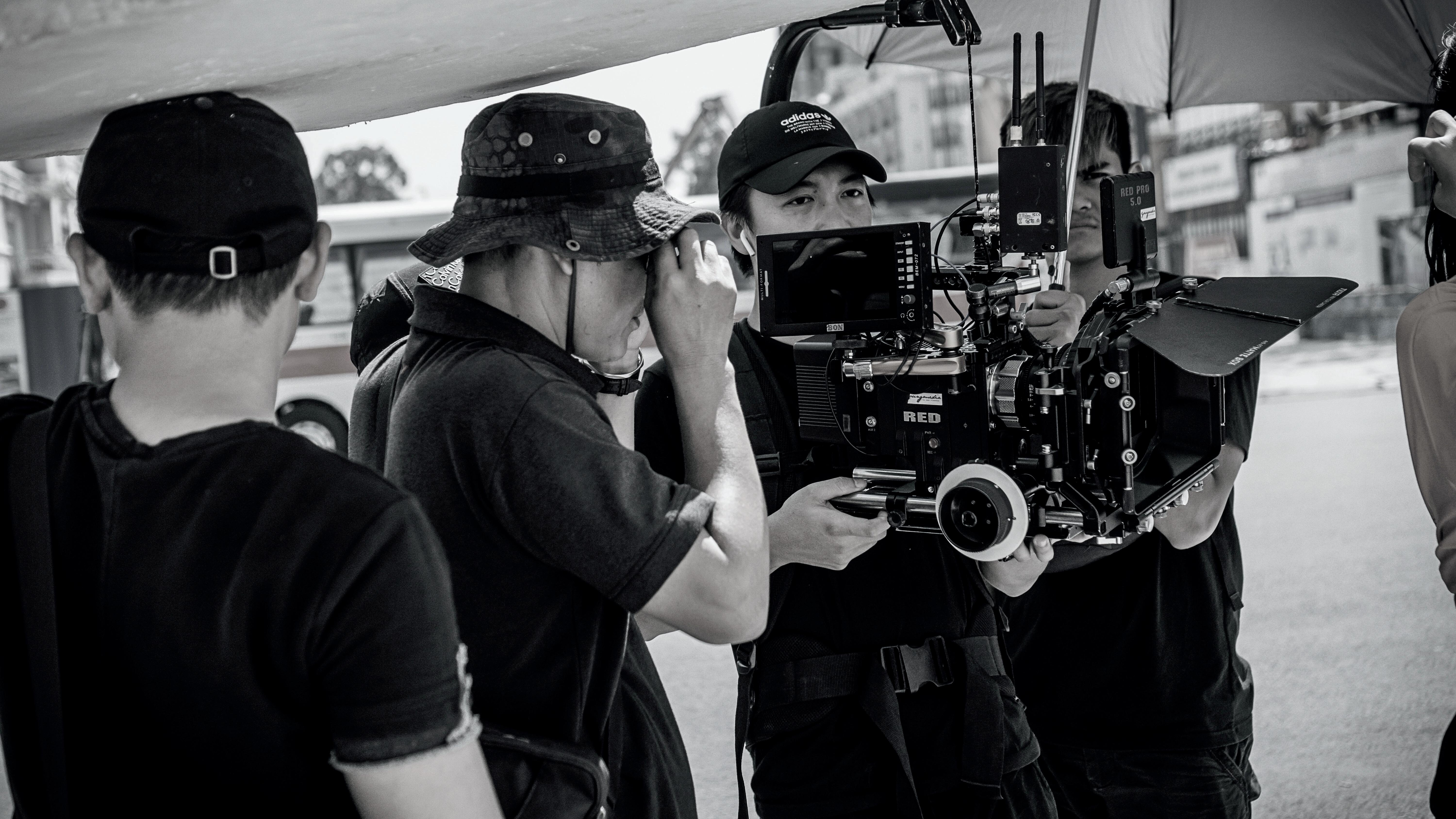
Students have the opportunity to earn a job-ready assessment in Television Production once they complete the pathway. The assessment will measure technical skills for job-ready placement. Students have the opportunity to demonstrate their acquired skills by completing actual jobs using the tools, materials, machines, and equipment related to the technical area of Audio and Video Technology.
28
PATHWAY PARTNERS:
Gainesville Times
Full Media
Jacobs Media Corporation
Career Information
Medical Videographer
Bachelor's Degree
Annual Salary: $59,799
Video Game Designer
Bachelor’s Degree
Annual Salary: $79,600
Film and Video Editors
Technical Training or Associates Degree
Annual Salary: $54,490
Software Developer
Bachelor's Degree
Annual Salary: $92,600
Camera Operators
Technical Training or Associates Degree
Salary: $42,530
Additional Career Choices
Broadcast Technician Camera Operator Control Room Technician
Editor Journalist Multimedia Artists & Animators
Producer Radio and Television Announcer
Reporter
Sound Technician Station Manager
Recommended Related Courses
Business & Technology
Foreign Language
Sports Marketing
Graphic Design
Work-Based Learning
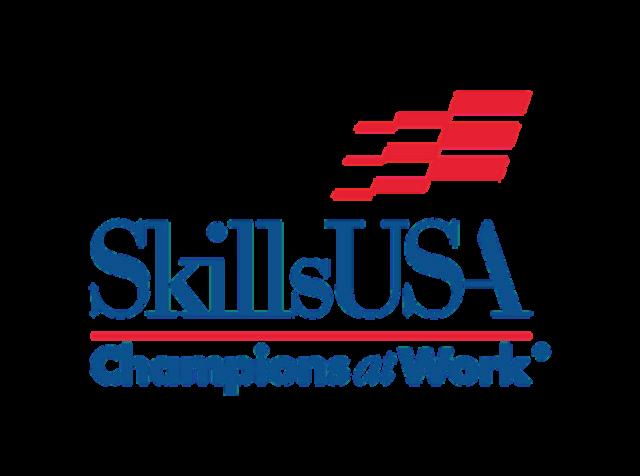
SkillsUSA is the Career & Technical Student Organization for Audio Video Technology Pathway. SkillsUSA is a partnership of students, teachers, and industry working together to ensure that America has a skilled worked force. SkillsUSA provides students the opportunity to compete regionally, state, and nationally to prove skill set against other high school students. Leadership development, employment skills, and service are developed through membership in SkillsUSA.

29

COMMUNICATIONS AND PROMOTIONS
Marketing asks what does the customer really want and how do we sell it to them? Marketing professionals are responsible for developing, implementing and managing a company’s marketing efforts, both through traditional and digital formats, in order to stimulate customer interest and generate sales. Through our school store, students practice a wide variety of these skills every day.
PATHWAY COURSES
Course 1 - Marketing Principles
Marketing Principles addresses all the ways in which marketing satisfies consumer and business needs and wants for products and services. Students develop an understanding of the functions of marketing and how these functional areas affect all businesses. They learn basic marketing concepts and the role of marketing in our economy. Students also develop skills in applying economic concepts to marketing, distribution and logistics, marketing information management, finance in marketing, product/service planning, pricing mixes, promotional strategies, and personal selling.
Course 2 - Promotion and Digital Marketing
Promotion and Digital Marketing focuses on the performance of key responsibilities for promotion with a focus on digital marketing concepts. Students develop skills in digital marketing, analytics, branding, advertising, public relations, and special promotions.
Course 3 - Integrated Marketing Communications
Integrated Marketing Communications focuses on the communication aspects of the business in relation to customer/consumer relationships. Students develop knowledge and skills in advertising, selling, direct marketing, public relations, sales promotions, and digital marketing communications. Students learn how communications affects budget considerations, marketing information decision-making and all future business opportunities.
30
PATHWAY PARTNERS:
Abernathy Cochran Real Estate
Turner Wood & Smith Insurance
State Farm Insurance
Norton Insurance and Real Estate Divisions
Kipper Tool
Career Information
Marketing Strategist
Bachelor's Degree
Annual Salary: $82,340
Online Merchants
High School Diploma to Bachelor's Degree
Annual Salary: $66,090
Sales Manager
Bachelor's Degree
Annual Salary: $46,580
Social Media Marketer
High School Diploma to Bachelor's Degree
Annual Salary: $60,090
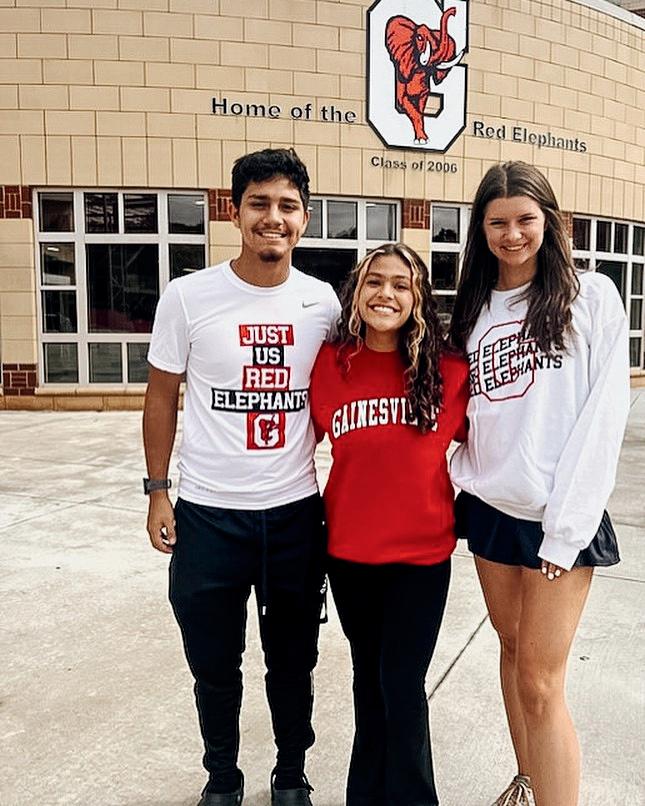
Additional Career Choices
Customer Service Representative
Financial Analyst
Human Resource Administrator
International Trade Manager
Marketing Director
Real Estate Broker
Sales Associate
Recommended Related Courses
Computer Science
Graphic Design
Entrepreneurship
Foreign Language
Work-Based Learning

Founded in 1946, DECA has impacted the lives of more than ten million students, educators, administrators and business professionals. DECA’s programs and activities have constantly evolved by using the latest technology and apply cutting edge educational research. DECA prepares emerging leaders and entrepreneurs for careers in marketing, finance, hospitality and management in high schools and colleges around the globe. It enhances the preparation for college and careers by providing co-curricular programs that integrate into classroom instruction, applying learning in the context of business, connecting to business and the community and promoting competition. The student members leverage their DECA experience to become academically prepared, community oriented, professionally responsible, experienced leaders. DECA values competence, innovation, integrity and teamwork.
31

COMPUTER SCIENCE
Telling computers what to do - the logic, process, art, and creativity all rolled into one. Computer science is a dynamic and rapidly growing area that has become an integral part of the world that we live in today. This knowledge and experience will allow you to develop cutting-edge solutions that address today’s challenges. When applied in an interdisciplinary fashion, students can also draw on their other areas of interest such as biology, business, cyber security, economics, engineering, information assurance, languages and linguistics, mathematics, physics, public policy, etc., to address a wider range of complex issues.
PATHWAY COURSES
Course 1 - Introduction to Digital Technology
Introduction to Software Technology is designed for high school students to understand, communicate, and adapt to a digital world as it impacts their personal life, society, and the business world. Exposure to foundational knowledge in programming languages, software development, app creation, and user interfacing applications are all taught in a computer lab with hands-on activities and project-focused tasks.
Course 2 - Computer Science Principles***
How can computing change the world? Engage your creativity, demonstrate and build your problem solving ability all while connecting the relevance of computer science to the society! Computer Science (CS) Principles is an intellectually rich and engaging course that is focused on building a solid understanding and foundation in computer science including writing, planning, directing, and editing a production. Go beyond the skills to field equipment function, operational set-up and maintenance, production graphics, audio and video control systems, and advanced computerized editing.
Course 3 - Programming, Games, Apps, and Society***
Are you ready to design and develop? The course is designed for high school students to strategize, design, and develop games and mobile and desktop applications that can be produced in the real world. Students will learn about life cycles of project development and use models to develop applications. Attention will be placed on how user interfaces affect the usability and effectiveness of a game or an application. Programming constructs will be employed which will allow students’ applications to interact with “real world,” stimuli. The course exposes students to privacy, legality, and security considerations with regards to the software industry.
Advanced Placement Pathway
Course 2 - AP Computer Science Principles***
AP Computer Science Principles is an introductory college-level computing course. Students cultivate their understanding of computer science through working with data, collaborating to solve problems, and developing computer programs as they explore concepts like creativity, abstraction, data and information, algorithms, programming, the internet, and the global impact of computing.
Course 3 - AP Computer Science A***
AP Computer Science A is an introductory college-level computer science course. Students cultivate their understanding of coding through analyzing, writing, and testing code as they explore concepts like modularity, variables, and control structures.
***CS 2nd and 3rd level courses can count as foreign language requirements, science, and CTAE credits. See your counselor for details.
32
PATHWAY PARTNERS:
Northeast Georgia Health System IT Department
City of Gainesville DOT Technology Center
Gainesville Technology Department
Busker Communications
ZF Industries IT Department
Career Information
Computer Programmers
Bachelor's Degree
Annual Salary: $86,500
Video Game Designer
Bachelor’s Degree
Annual Salary: $79,600
Computer Support Specialist
Technical Training or Associates Degree
Annual Salary: $54,000
Software Developer
Bachelor's Degree
Annual Salary: $92,600
Information Security Analyst
Bachelor's Degree
Annual Salary: $92,270
Additional Career Choices
Network Administrator
Database Administrator
Computer Systems Analyst
Web Developer
Mobile App Developer
IT Project Manager
Systems Architect
Recommended Related Courses
Business & Technology
Foreign Language
Journalism, Marketing
Work-Based Learning
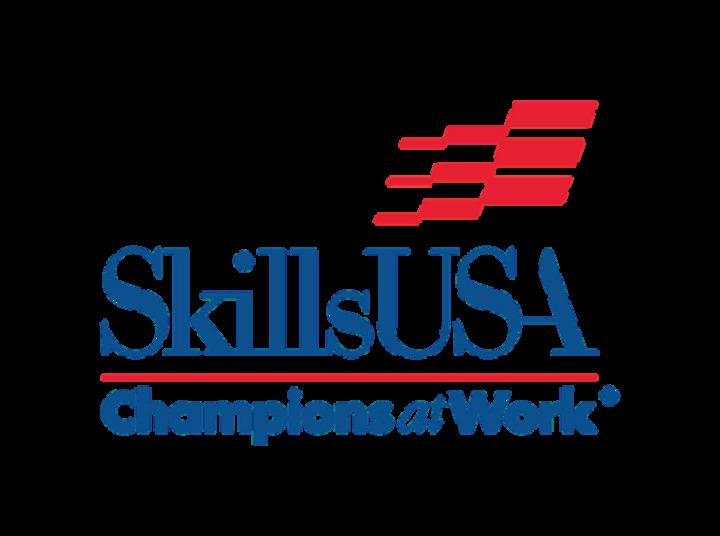
SkillsUSA is the Career & Technical Student Organization for Audio Video Technology Pathway. SkillsUSA is a partnership of students, teachers, and industry working together to ensure that America has a skilled worked force. SkillsUSA provides students the opportunity to compete regionally, state, and nationally to prove skill set against other high school students. Leadership development, employment skills, and service are developed through membership in SkillsUSA.

33
CONSTRUCTION
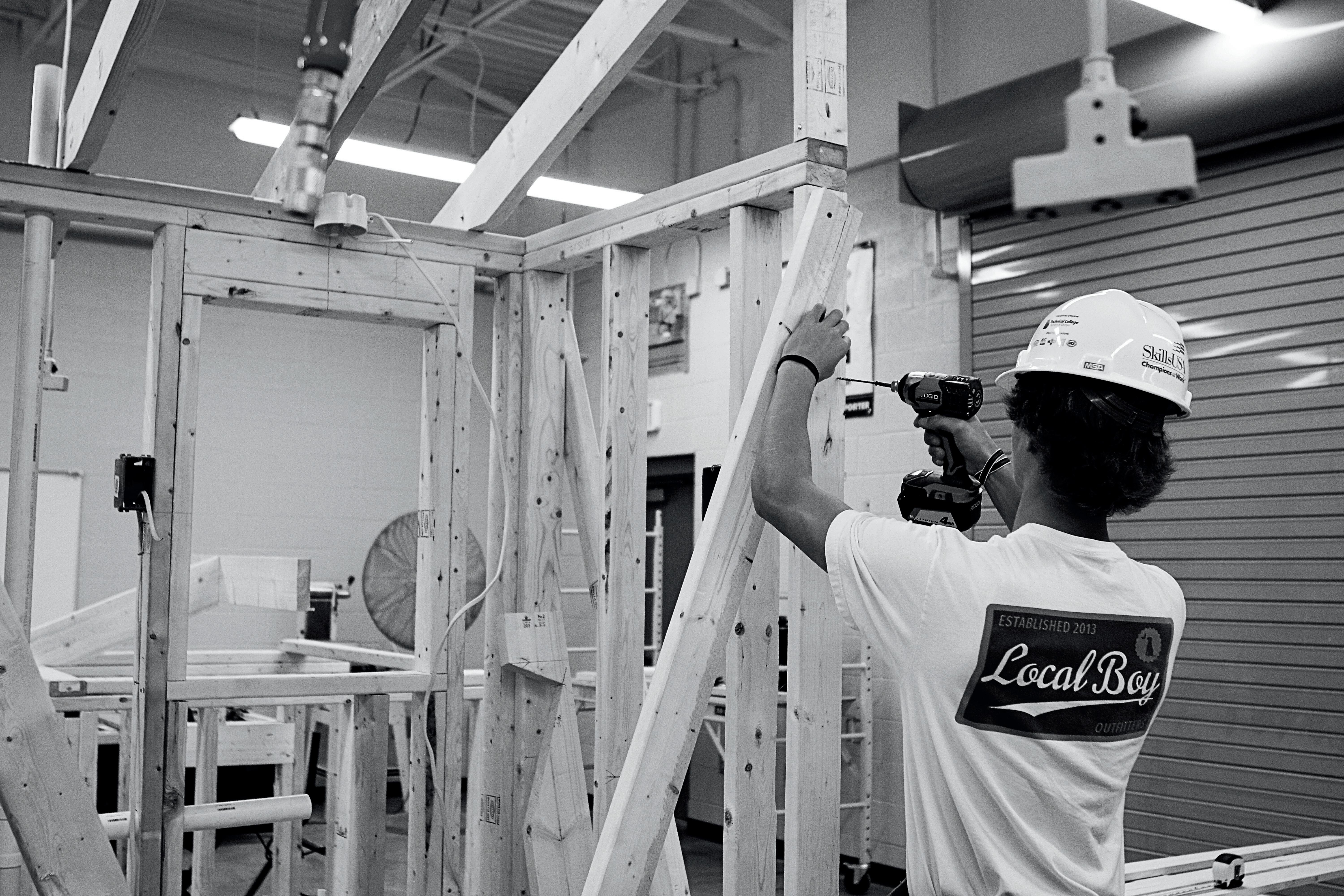
Build it, wire it, or design the plumbing....students will walk away with a skill set. The Construction program provides students with the knowledge and skills needed for employment as a carpenter or concrete specialist. The study includes residential and commercial construction, with all phases explored and applied on a job site or in the lab. Specialized coursework includes drywall installation and finishing, blueprint reading, construction estimating, concrete stamping, and construction materials.
PATHWAY COURSES
Course 1 - Industry Fundamentals and Occupational Safety
The course prepares the trainee for the basic knowledge to function safely on or around a construction site and in the industry in general. Industry Certification is available. Minimum performance requirements for this core course, and throughout the three-year curriculum, are based on the student’s successful completion of the modules according to the NCCER Occupational Standards.
Course 2 - Introduction to Construction
This course offers an opportunity for students to build on their knowledge and skills developed in Industry Fundamentals and Occupational Safety. It introduces them to four construction craft areas and is also the second step toward gaining a Level One Industry Certification in one of the craft areas. The student will learn and apply knowledge of the care and safe use of hand and power tools as related to each trade. In addition, students will be introduced to and develop skills to differentiate between blueprints related to each craft area.
Course 3 - Carpentry 1
The course provides an overview of the building materials used in the carpentry craft, as well as teaching techniques for reading and using blueprints and specifications related to the carpentry craft. The course provides specific knowledge and skills in site layout and floor and wall framing systems and includes basic industry terminology for a carpentry craftsperson. Minimum performance requirements for this core course are based on the student’s successful completion of the modules according to the NCCER Occupational Standards. Students who successfully complete the course in accordance with NCCER standards are eligible for registration with the NCCER National Craft Worker Registry.
34
PATHWAY PARTNERS:
Carroll Daniel Construction
C.W. Matthews Company
Construction Ready
City of Gainesville Public Works Department
America's Home Place
Lawson Air Conditioning and Plumbing
Career Information
Construction Manager
Bachelor's Degree
Annual Salary: $84,410
Construction & Building Inspectors
Bachelor's Degree, Post-secondary Certificate
Annual Salary: $54,450
Electrician
Post-secondary Certificate
Annual Salary: $50,510
Civil Engineer
Bachelor's Degree, Maters, Post-secondary Certificate
Annual Salary: $80,770

Additional Career Choices
Brick Mason
Cabinetry Maker
Construction Trades
Drywall and Ceiling Tile Installer
Electrician
Extraction Worker
Insulation Worker
Plumber
Recommended Related Courses
Geometry
Foreign Language
Engineering
Physics
Computers
Architectural Drawing & Design Work-Based Learning

SkillsUSA is the Career & Technical Student Organization for the Construction Pathway. SkillsUSA is a partnership of students, teachers, and industry working together to ensure that America has a skilled worked force. SkillsUSA provides students the opportunity to compete regionally, state, and nationally to prove skill set against other high school students. Leadership development, employment skills, and service are developed through membership in SkillsUSA.
35
CULINARY ARTS
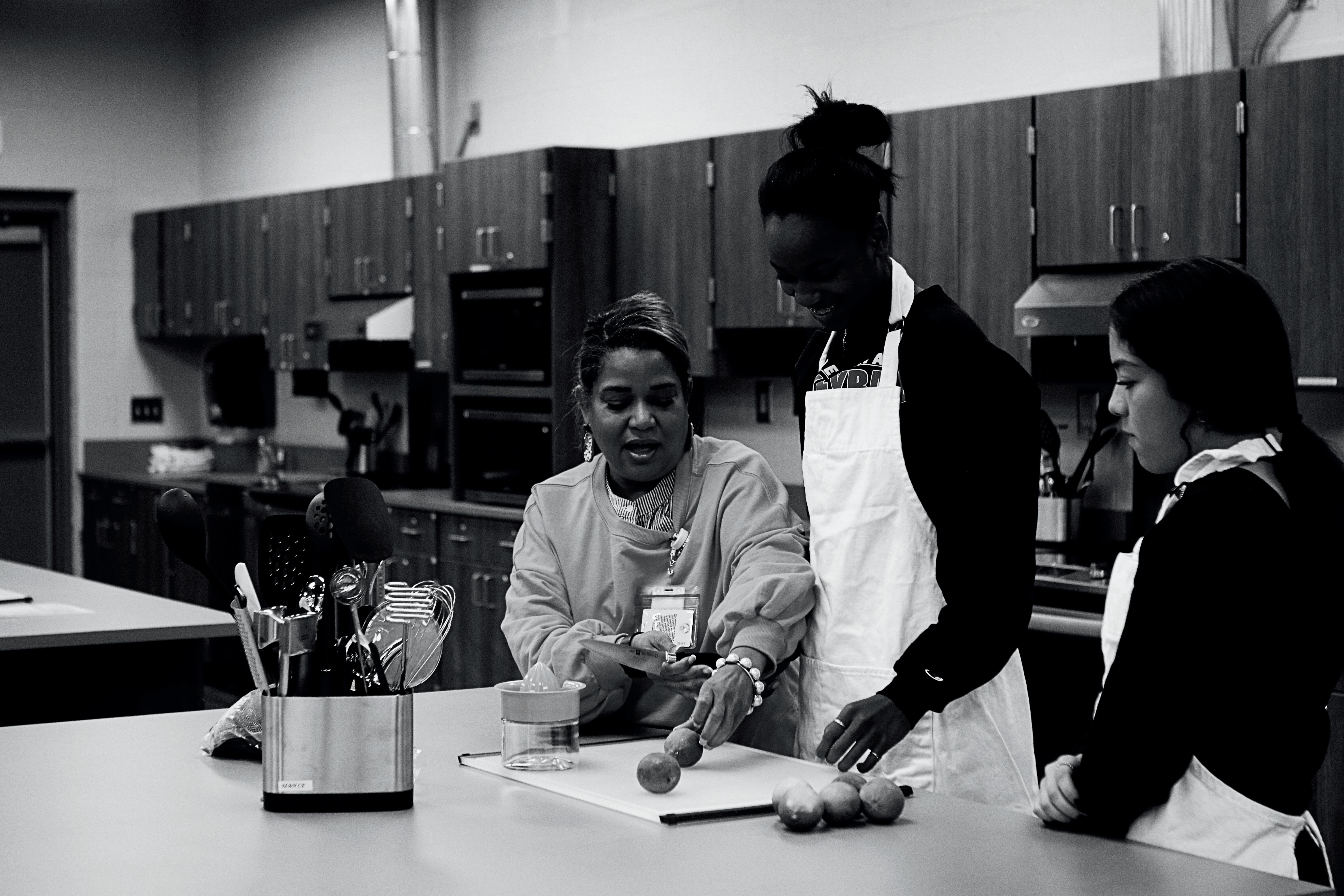
If you enjoy watching Chopped, Cutthroat Kitchen and the Food Network, get off the couch and get in the kitchen! Why just watch it when you can do it! In the Culinary Arts Pathway you can show off your cooking skills, creativity, work ethic and passion in a hands-on, skills based classroom. This career pathway will provide you with a cultural perspective of food with real world application.
PATHWAY COURSES
Course 1 - Introduction to Culinary Arts
The first course of Culinary is like an appetizer: the goal is to get you interested in a career in the Hospitality industry. The focus of this course is on safety and sanitation. The instructor is a certified ServSafe Instructor and Proctor. You will receive a thorough and indepth course in Food Safety before moving into the kitchen to work on skills. We learn about Cultural cuisines with a tour around the globe, students participate in knife skills training and learn the classic cuts, we practice cookery and learn about nutrition and food pairings.
Course 2 - Culinary Arts I
The second course is your entree. This class is where you will really practice your skills in Culinary Arts. We will do a brief review of ServSafe standards and then jump right into the kitchen for some real world application. Students will learn cooking techniques from cultures around the globe. They will practice advanced knife skills, make the mother sauces and learn about meat fabrication. They will demonstrate advanced cookery techniques with professional equipment and plan and create delicious menus. We have in house culinary competitions where students can really show off their skills. Students can also participate in FCCLA Culinary Competitions and State events for cash and scholarships.
Course 3 - Culinary Arts II
Culinary II is about honing the skills of the students to produce high quality foods and present them in a creative, unique and safe way. Students will practice garde manger and plan banquets and events. They will participate in an on campus restaurant where they will rotate through managing, planning, cooking, serving, ordering foods and costing out recipes. In the third course, Culinary Students will take the industry certified ServSafe Exam as their End of Pathway test and will leave the program with a certificate that will help them to gain employment in the hospitality profession.
36
PATHWAY PARTNERS:
Lanier Technical College Culinary Arts
King's Hawaiian
Southern Baked Pie Company
Career Information
Culinary Chef
Bachelor's Degree
Annual Salary: $65,940
Bakery Owner
Business Degree & Culinary Experience
Annual Salary: $42,780
Head Cook
Technical School Training & on the job experience
Annual Salary: $41,610
Banquet Manager
Technical School Training
Annual Salary: $48,560
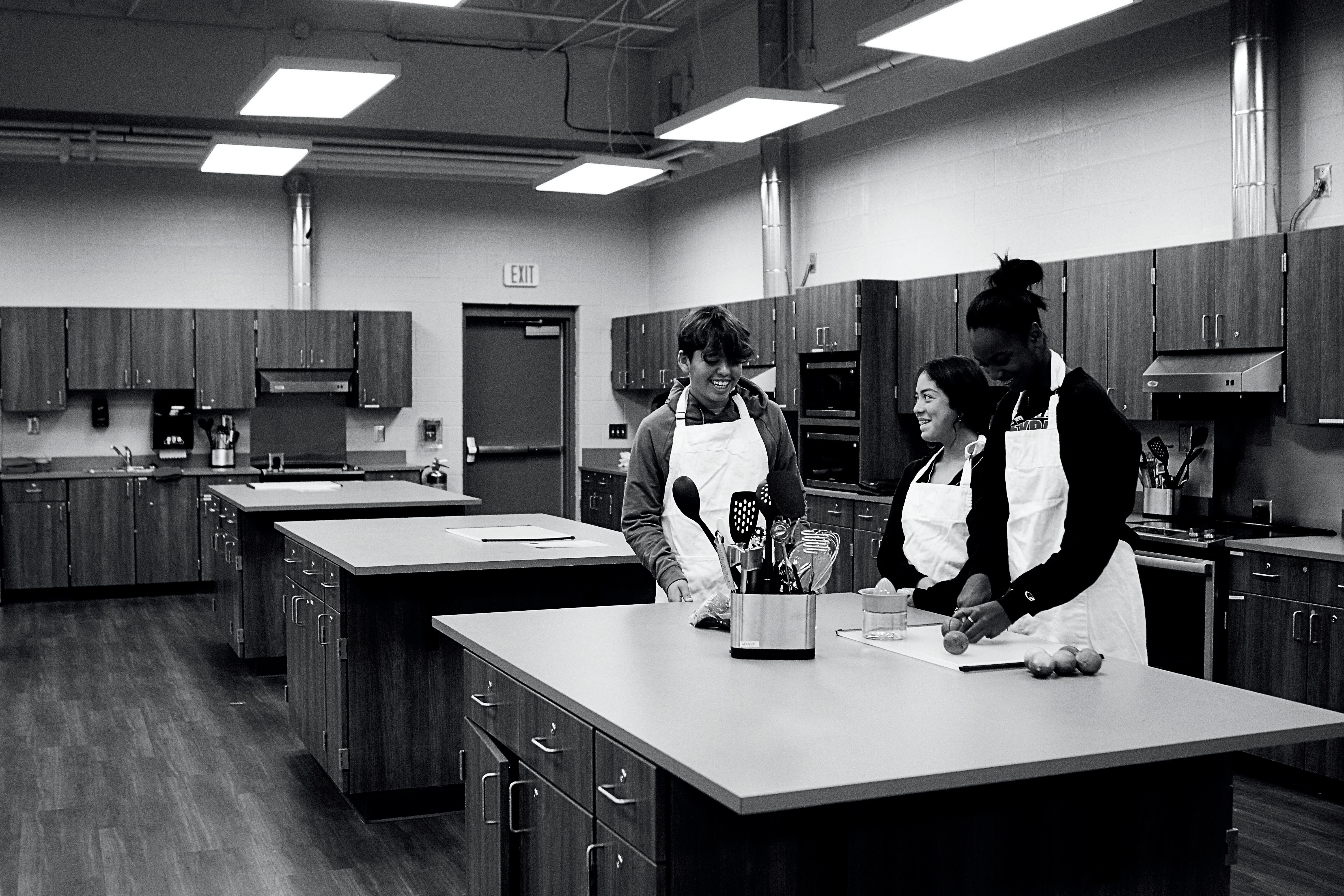
Additional Career Choices
Executive Chef
Restauranteur
Food Stylist
Food Photographer
Food Critic/Writer
Dietician
Food Scientist
Catering Manager
Recommended Related Courses
Communication and Promotions
Entrepreneurship
Foreign Language
Work-Based Learning
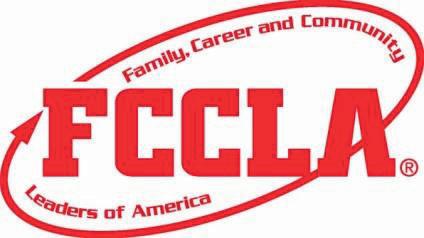
FCCLA: Family, Career and Community Leaders of America (FCCLA) is a dynamic and exciting student organization that is focused on training the student leaders of today to reach their full potential. Our organizations travels all over the state of Georgia throughout the year attending FCCLA leadership conferences, STAR Event competitions, cook-offs, hands-on training workshops, State culinary events and Summer camp.
Students can qualify to compete at local, regional, state, and national events to receive prizes, medals, and scholarships. We are a service-oriented organization with several community service projects throughout the year to give back to our community. Check out our student organization and Be a Part of It!
37
EDUCATION
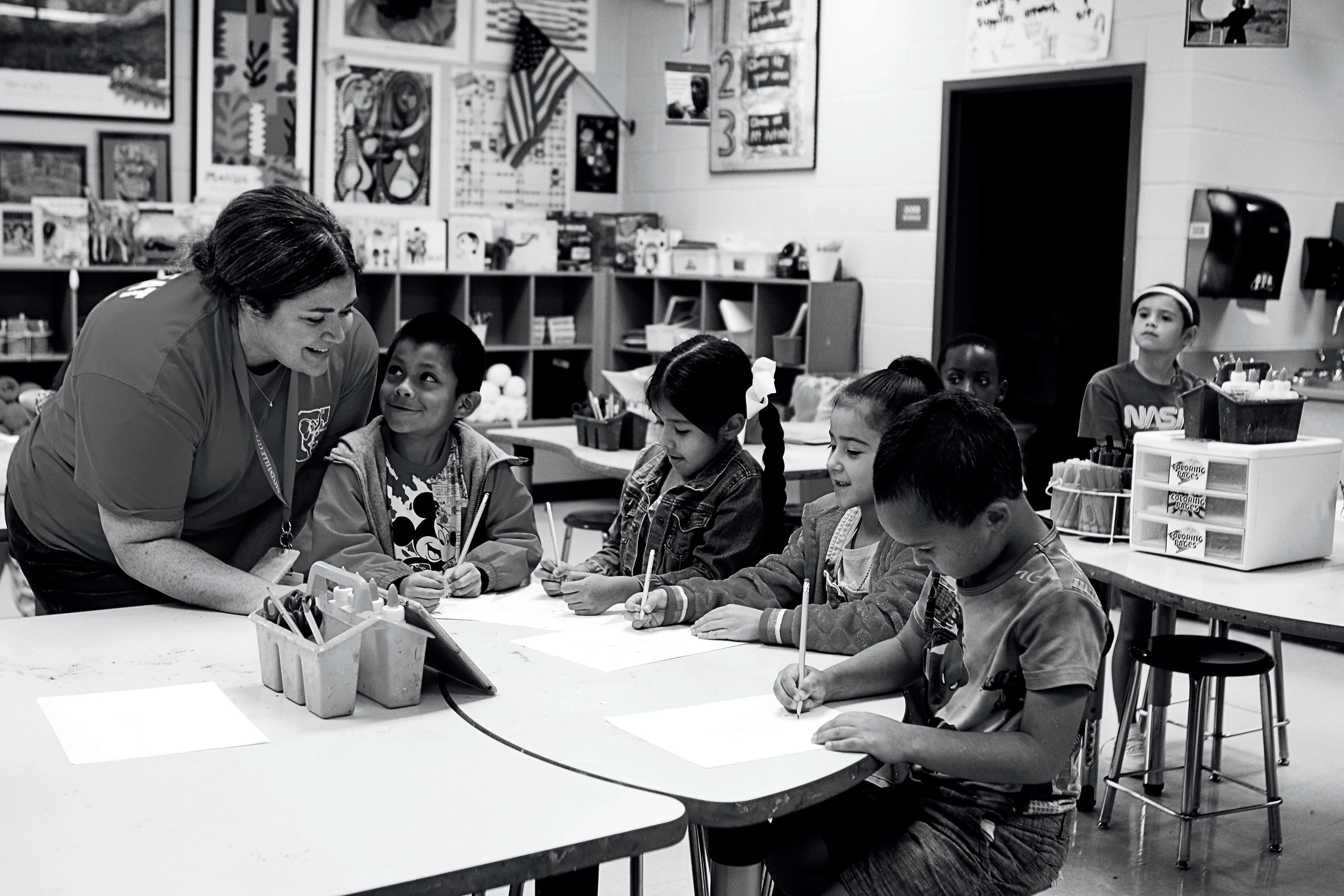
PATHWAY COURSES
Students who want to work with kids through hands-on classroom projects and onsite visits should select this pathway. Future teachers should begin their careers by learning knowledge and skills through interacting with children. Project based learning, laboratory application, technical skills practice, and leadership development activities engage students in classroom learning.
PATHWAY COURSES
The Early Childhood Education Pathway focuses care, education, and development issues that include guiding the physical, cognitive, creative, social, emotional, and moral development of children.
Course 1 - Early Childhood Education I
Students will plan and guide developmentally appropriate practices for working with young children including career paths, principles and theories of child development, the creation of a developmentally appropriate learning environment, collaborative relationships, and appropriate response to cultural diversity and students with special needs.
Course 2 - Early Childhood Education II
Early Childhood II topics include: health, safety, and nutrition education; certification in CPR/First Aid/Fire Safety, child abuse and neglect, symptoms and prevention of major childhood illnesses and diseases, and prevention and control of communicable illnesses. Craft projects, observations, and guest speakers are used throughout the course for creating the lab environment.
Course 3 - Early Childhood Education III
This course is a practicum placement at Centennial or Joyland Child Development Center. Students will complete the pathway with a cumulative project including collaborative parent/teacher/child relationships and guidance, child directed play, the changing dynamics of family culture and diversity, the causes and effects of stress on young children, and infant nutrition.
Teaching as a Profession provides a foundation for students to learn the ingredients for effective teaching and current issues in education from the local to state to national level.
Course 1 - Examining the Teaching Profession
Teaching as a Profession students study, apply, and practice the use of current technologies, effective teaching and learning strategies, the creation of an effective learning environment, the creation of instructional opportunities for diverse learners and students with special needs, and plan instruction based on knowledge of subject matter, students, community, and curriculum performance standards.
Course 2 - Contemporary Issues In Education
The candidate will investigate issues influencing the social and political contexts of educational settings in Georgia and the United States while examining the teaching profession from both within and outside of the school. The candidate will reflect on and interpret the meaning of education and schooling in a diverse culture and examine the moral and ethical responsibilities of teaching in a democracy.
Course 3 - Teaching as a Profession Practicum
The practicum offers a field experience under a certified mentor teacher focused on observing, analyzing and classifying activities of the mentor teacher and comparing personal traits with those of successful teachers. The candidate intern will develop a portfolio of their skills, plan and teach lessons providing confidentiality as it pertains to the teaching profession while meeting needs of students with special needs, maintain the safety of the students, practice professionalism, and demonstrate ethical behavior.
38
PATHWAY PARTNERS:
Joyland Child Development Center
Sisu
Centennial Arts Academy
First Baptist Church Day School
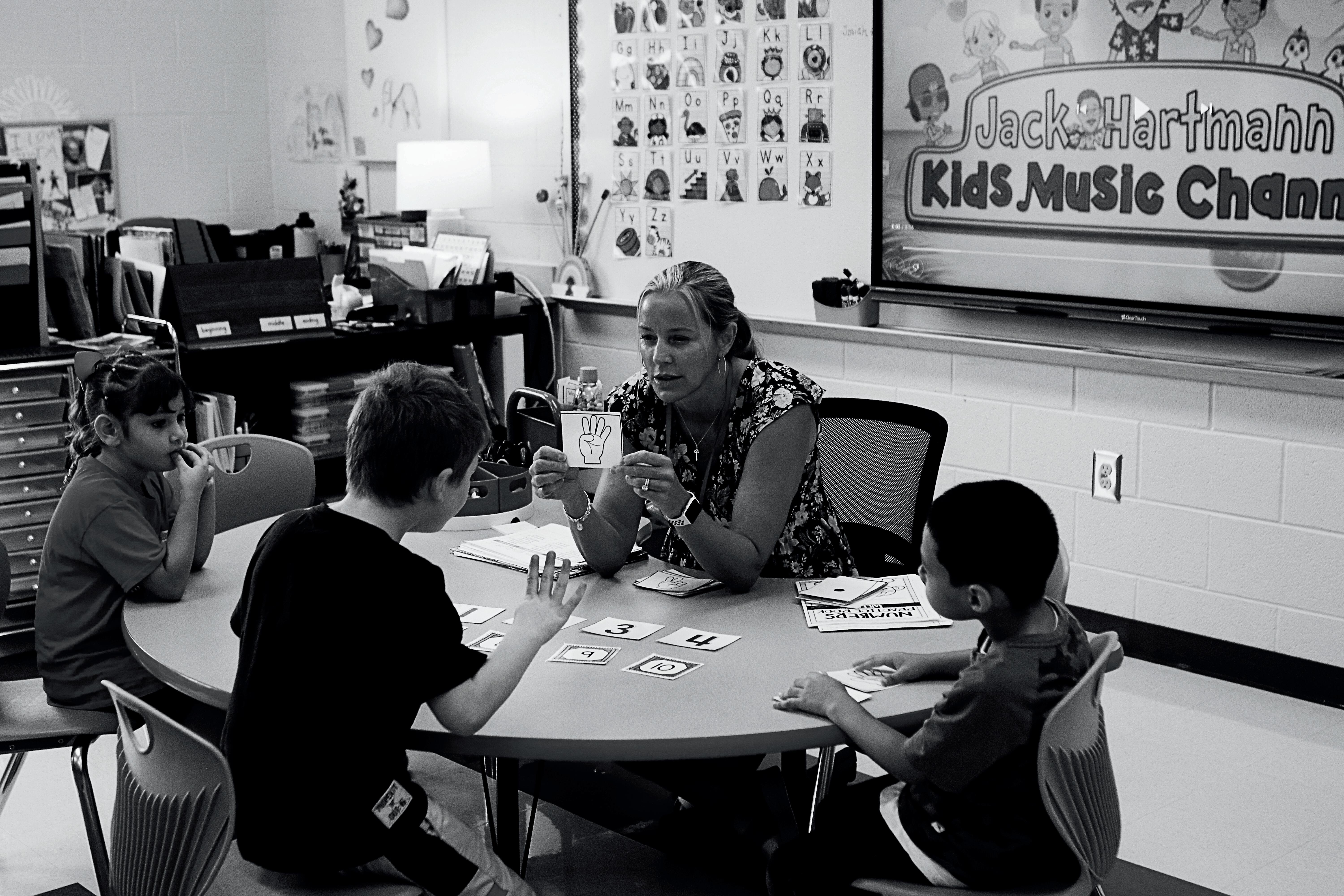
Career Information
Elementary Teacher
Bachelor's Degree
Annual Salary: $45,500
Daycare Owner
Bachelor's Degree
Annual Salary: $32,780
Training and Development Specialist
Bachelor's Degree
Annual Salary: $43,650
Social Worker
Bachelor's Degree
Annual Salary: $84,100
Additional Career Choices
Early Childcare Worker
Education Program Director
Teacher Assistant
Consultant
Family Counselor
Recommended Related Courses Entrepreneurship
Human Anatomy
Intro to Healthcare Science Communication and Promotions
Marketing
Work-Based Learning
Dual Enrollment Core or Education

FCCLA: Family, Career and Community Leaders of America (FCCLA) is a dynamic and exciting student organization that is focused on training the student leaders of today to reach their full potential. Our organizations travels all over the state of Georgia throughout the year attending FCCLA leadership conferences, STAR Event competitions, cook-offs, hands-on training workshops, State culinary events and Summer camp.
Students can qualify to compete at local, regional, state, and national events to receive prizes, medals, and scholarships. We are a service-oriented organization with several community service projects throughout the year to give back to our community. Check out our student organization and Be a Part of It!
39

Take your ideas from paper to computer to reality! Translate ideas from designs, specifications, rough sketches into working drawings, maps, plans, and illustrations that are used in making products! Create 2D and 3D computer models using computer‐aided design (CAD) while mastering in-demand apps. Your ideas may show up in a large format print, 3D print or design or even cut out using a CNC laser cutter.
PATHWAY COURSES
Course 1 - Foundations of Engineering and Technology
A STEM driven course provides the students with an overview of engineering and technology including the different methods used in the engineering design process developing fundamental technology and engineering literacy. Students will demonstrate the skills and knowledge they have learned through various project based activities while using an engineering design process to successfully master the “E” in STEM.
Course 2 - Engineering Concepts
Students will learn to design technical solutions to engineering problems using a whole systems approach to engineering design. Students will demonstrate the application of mathematical tools, teamwork, and communications skills in solving various design challenges, while maintaining a safe work environment
Course 3 - Engineering Applications
Students will apply their knowledge of Science, Technology, Engineering, and Math (STEM) to develop solutions to technological problems. Solutions will be developed using a combination of engineering software and prototype production processes. Students will use market research, cost benefit analysis, and an understanding of the design cycle to create and present design, marketing, and business plans for their solutions. A capstone project will allow students to demonstrate their depth of knowledge of the engineering design process and prepare them for future opportunities in the field of engineering.
40
PATHWAY PARTNERS:
Georgia Power and Jackson EMC
Georgia Poultry Federation
Rochester and Associates
Fox Factory
Kubota
ZF
Pond & Company
University of North Georgia IESA Program
Career Information
Civil Engineer
Bachelor's Degree
Annual Salary: $65,940
Survey Technician
Technical School
Annual Salary: $35,670
Mechanical Engineer
Bachelor's Degree or higher
Annual Salary: $75,940
Chemical Engineer
Bachelor's Degree or higher
Annual Salary: $85,165
Additional Career Choices
Electronic Drafters
Architectural Drafters
Mechanical Drafters
Civil Drafters
Electrical Drafters
Cartographers
Civil Engineering Technicians
Recommended Related Courses
Business & Technology
Geometry
Construction
Work-Based Learning
DE Engineering, Welding and more

SkillsUSA is the Career & Technical Student Organization for the Construction Pathway. SkillsUSA is a partnership of students, teachers, and industry working together to ensure that America has a skilled worked force. SkillsUSA provides students the opportunity to compete regionally, state, and nationally to prove skill set against other high school students. Leadership development, employment skills, and service are developed through membership in SkillsUSA.

41

ENTREPRENEURSHIP
Students who strive to become a business owner with original and innovative ideas are perfect for this pathway. Learning the law of business operations and operating a business are skills that are mastered in this pathway. Working on challenging and diverse projects that earn money allows students to practice the classroom content. Business is always changing; there are always techniques to learn, cases to study and strategies to research.
PATHWAY COURSES
Course 1 - Introduction to Business & Technology
Students will learn essentials for working in a business environment, managing a business, and owning a business. Students will be prepared to be successful both personally and professionally in an information-based society.
Course 2 - Legal Environment of Business
Students enrolled in this course should have successfully completed the first course in the pathway Introduction to Business & Technology. This course addresses statutes and regulations affecting businesses, families, and individuals. Students will get an overview of business law while concentrating on the legal aspects of business ownership and management.
Course 3 - Entrepreneurship
Students will be exposed to the development of critical thinking, problem solving, and innovation in this course as they will either be the business owner or individuals working in a competitive job market in the future. Integration of accounting, finance, marketing, business management, legal and economic environments will be developed throughout projects in this course.
42
PATHWAY PARTNERS:
Chattahoochee Country Club
Ace Hardware Human Resources
Strong Gaddy Lee Wealth Management Group
Waldrip Real Estate
Acuna's Cake Shop
Career Information
Paralegal & Legal Assistant
Associate's Degree
Annual Salary: $48,900
Public Relations Specialist
Bachelor's Degree
Annual Salary: $58,500
Social and Community Service Manager
Bachelor's Degree
Annual Salary: $62,300
Administrative Services Manager
High School Diploma
Annual Salary: $84,100
Additional Career Choices
Business Owner
Law Clerk
Lawyer
Store Manager
Sales and Service
Customer Service Rep
Advertising Agent
Recommended Related Courses
Communications and Promotions
Graphic Design
Marketing
Personal Finance & Economics
Work-Based Learning
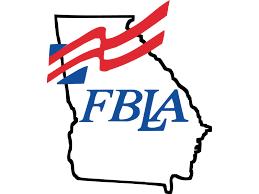
FBLA is a Career and Technology Student Organization for students preparing for careers in business, entrepreneurial or business-related fields. The association prepares students for the business world by promoting leadership, increasing understanding of American Free Enterprises, establishing career goals, encouraging scholarship, promoting efficient money management, and developing character and self-confidence. FBLA activities encourage career development, civic service, economic education, community involvement and business advocacy.

43
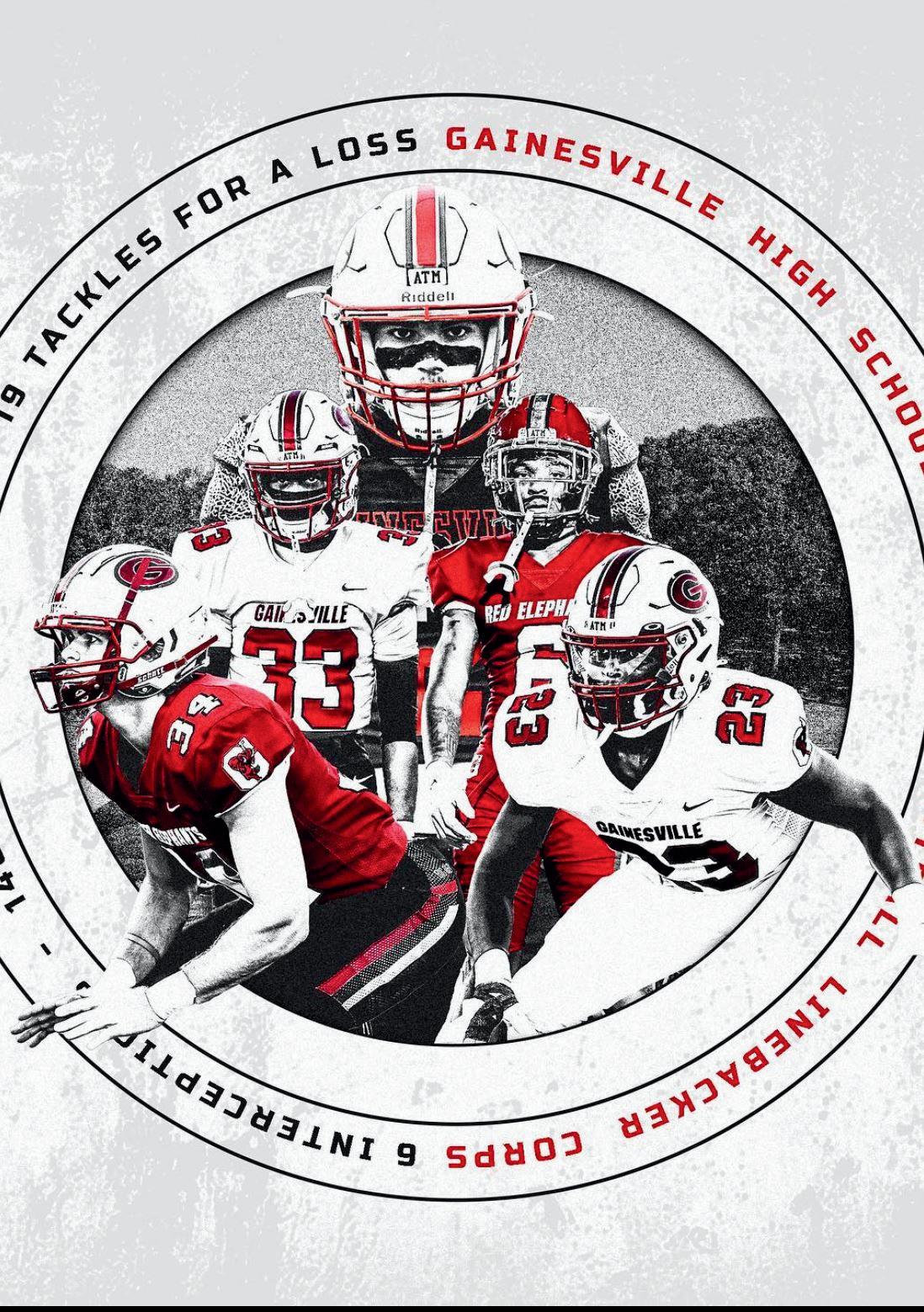
GRAPHIC DESIGN
Are you interested in developing artwork that integrates pictures and words to communicate something more? Graphic design uses visual representations to communicate ideas and is used by every organization in the world. The Graphic Design pathway will exploring techniques of creative problem solving while learning various printing techniques including screenprinting, offset printing, and the real world techniques to for graphic and print project management.
PATHWAY COURSES
Course 1 - Introduction or Graphics and Design
The Graphics and Design course provides students with the processes involved in the technologies of printing, publishing, packaging, electronic imaging, and their allied industries. In addition, the Graphics and Design course offers a range of cognitive skills, aesthetics, and crafts that includes typography, visual arts, and page layout.
Course 2 - Graphic Design and Production
The course focuses on procedures commonly used in the graphic communication and design industries. Students will gain more experience in creative problem solving and the practical implementation of those solutions across multiple areas of graphic design and graphic communications.
Course 3 - Advanced Graphic Design
Students will continue to explore in an increasingly independent manner, the principles of design and layout procedures relating to the field of graphic design. Content will cover electronic systems and software programs used in graphic design, page composition, image conversion, and digital printing. Knowledge and skills in digital design and imaging will be enhanced through experiences that simulate the graphic design industry and school-based and work-based learning opportunities.
44
PATHWAY PARTNERS:
Full Media
Jacobs Media
Abernathy Cochran Real Estate Matthews Printing
Art Director
Bachelor's Degree + 5-7 years exp
Annual Salary: $57,000
Commercial and Industrial Designers
Bachelor's Degree
Annual Salary: $77,030
Graphic Designer
Bachelor's Degree
Annual Salary: $49,900
Desktop Publisherss
Associate's Degree
Annual Salary: $46,910
Additional Career Choices
Advertising and Promotions Managers
Fashion Design
Film and Video Editors
Illustration
Interior Designers
Multimedia Artist and Animators
Photography
3D Animation

Founded in 1946, DECA has impacted the lives of more than ten million students, educators, administrators and business professionals. DECA’s programs and activities have constantly evolved by using the latest technology and apply cutting edge educational research. DECA prepares emerging leaders and entrepreneurs for careers in marketing, finance, hospitality and management in high schools and colleges around the globe. It enhances the preparation for college and careers by providing co-curricular programs that integrate into classroom instruction, applying learning in the context of business, connecting to business and the community and promoting competition. The student members leverage their DECA experience to become academically prepared, community oriented, professionally responsible, experienced leaders. DECA values competence, innovation, integrity and teamwork.


45
HEALTHCARE SCIENCE
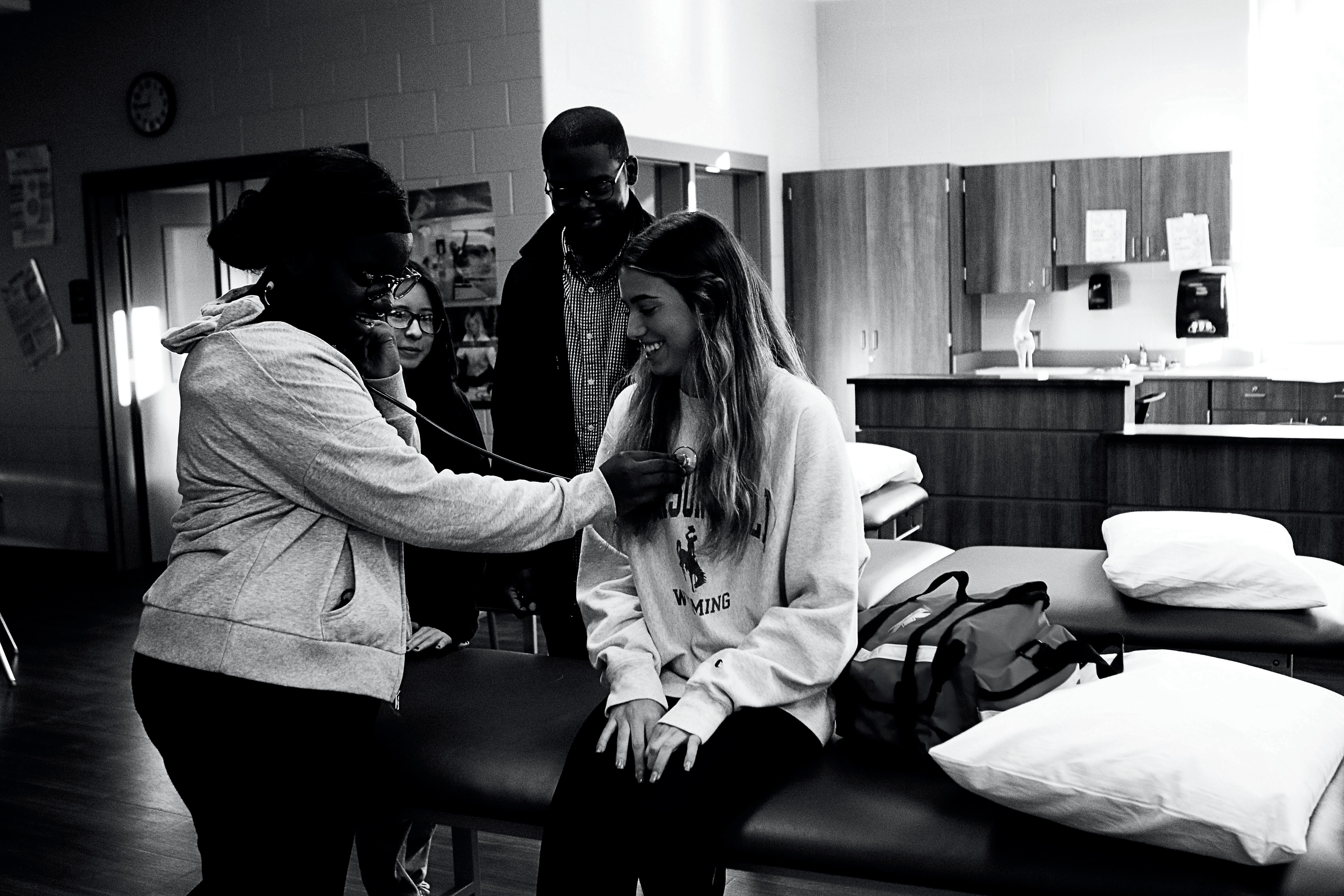
PATHWAY COURSES
Whether a student plans to continue education through medical school or wants to graduate from high school into a career, a Healthcare Science pathway provides challenging, relevant experience, and specialized technical skills that will prepare students for a future in this fast-paced, highdemand career field. Students can choose from three different third level courses. Upon completion, student have access to a multitude of Work-Based Learning and Dual Enrollment options with our many partners. Dual Enrollment with Lanier Technical College can lead to your Certified Nursing Assistant (CNA) Certificate which enables immediate employment.
PATHWAY COURSES
Course 1 - Introduction to Healthcare Science
Students will receive initial exposure to the many Healthcare Science careers as well as employability, communication, and technology skills necessary in the healthcare industry.
Course 2 - Essentials of Healthcare
Essentials of Healthcare is a medical-focused anatomy course addressing the physiology of each body system, along with the investigation, prevention, diagnosis, and treatment of common diseases, disorders, and emerging diseases. ***Course satisfies the fourth science requirement. Students will also earn 1 unit of credit for Human Anatomy and Physiology.
Course 3 - Emergency Medical Responder
EMR provides training on initial stabilizing care, assisting EMS personnel in transporting patients along with industry credentials in Introduction into Medical Terminology and Anatomy & Physiology; Responder Safety; Incident Command; Blood-borne Pathogen Training; Basic Physical Assessment; and Treatment of Trauma and Medical Emergencies; Cardiopulmonary Resuscitation and the use of Automatic External Defibrillators (AEDs).
Course 3 - Patient Care Fundamentals
Patient Care equips students with the knowledge and skills to deliver restorative care for patients including Activities of Daily Life (ADL), mental and social service needs, observe patient and privacy rights, safety measures for the patient and provider, and team communication.
Course 3 - Sports Medicine
Sports Medicine focuses on knowledge of the musculoskeletal system, injury assessment, injury prevention, or rehabilitation. Therapeutic services skills including anatomy and physiology, assessment, preventative and rehabilitative care are introduced. Fundamental healthcare skills development in medical terminology, kinesiology, patient assessment, record keeping, and basic life support.
Course 3 - Mental Health Professional
MHP students will learn about careers that focus on emotional, mental, and behavioral health and wellness. While learning about diverse mental health needs, students will gain knowledge about techniques used in recognizing, preventing, supporting, and treating various behavioral and mental health needs. Students may spend time researching and understanding the value of mental health for individuals, families, and communities. Coursework may include observations in simulated lab scenarios, job shadowing, telehealth, guest speakers, or other clinical exposure.
46
NEW PATHWAY Mental Health Professional
PATHWAY PARTNERS:
Northeast Georgia Health System
Longstreet Clinic
BenchMark Physical Therapy
Bell Minor Home
Atlanta Rehabilitation & Performance Center
Career Connections
Registered Nurse
Bachelor's Degree
Annual Salary: $66,220
Licensed Practical Nurse
Post-secondary certificate, Associates Degree
Annual Salary: $41,920
Healthcare Social Worker
Master's Degree
Annual Salary: $92,670
Medical Assistant
Post-secondary certificate, Associates Degree
Annual Salary: $29,610
Additional Career Choices
Anesthesiologist
Cardiovascular Technician
Chiropractor
Dentist
Dietitian
Family and General Practitioner
Forensic Scientist
Recommended Related Courses
Business & Technology
Biology
Entrepreneurship
Work-Based Learning
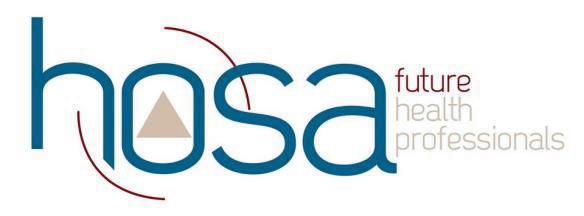
Future Health Professionals is a national student organization that provides a unique program of leadership development, motivation, and recognition exclusively for secondary, post-secondary, collegiate, and adult students enrolled in health occupations education courses or instructional programs. HOSA is an integral part of approved health occupation programs. Health Science Technology Education (HSTE) students who become active members in a local HOSA chapter are eligible for membership in state and national HOSA. The mission of HOSA is to enhance the delivery of compassionate, quality health care by providing opportunities for knowledge, skill, and leadership development of all health occupations education students, therefore helping the students to meet the needs of the health care industry.
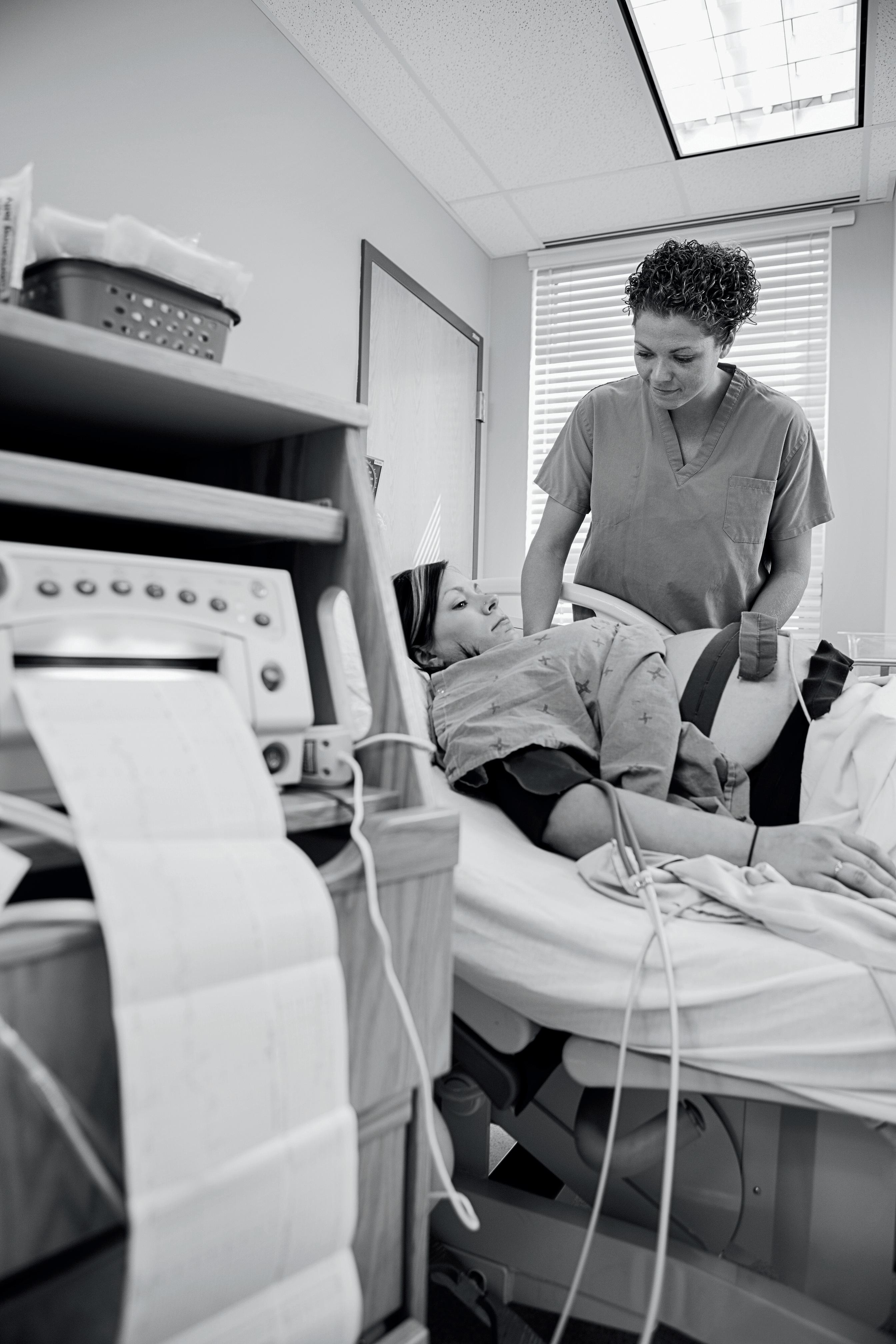
47
NAVY JROTC
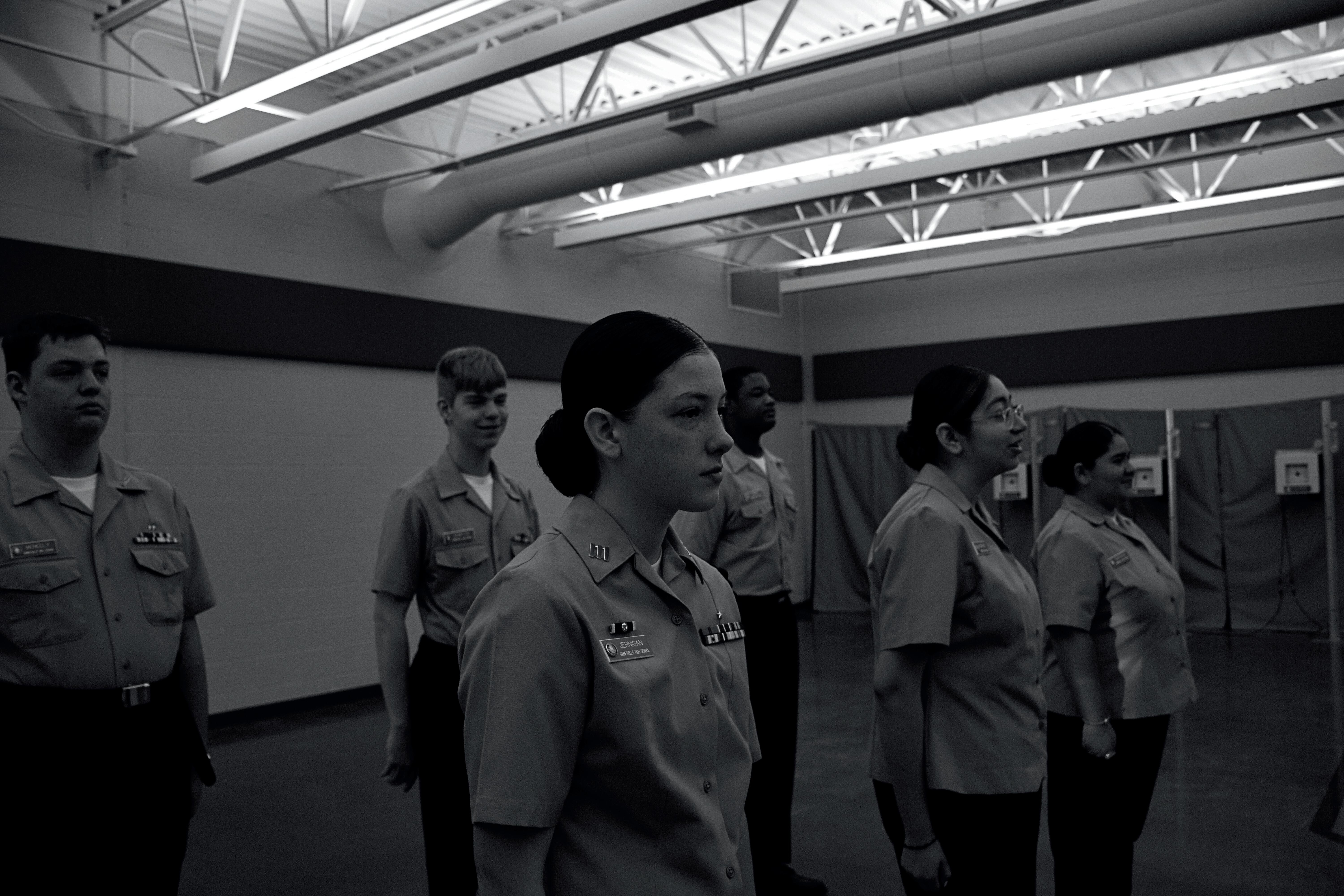
PATHWAY COURSES
Students who are interested in enhancing their leadership skills, improving their physical and mental fitness, and being part of an elite, student-led organization can choose to participate in the Navy Junior Reserve Officers Training Corps (NJROTC). NJROTC cadets are in not obligated to military service by joining the program. Many cadets find that they enjoy the military discipline and routine because it brings out their best and provides them with the tools for success in life!
PATHWAY COURSES
Course 1 - Naval Science 1
Field Cadet Manual
The purpose of this course is to combine all information on military drill and ceremonies, uniform regulations, physical fitness, orienteering, principles of health, first aid, survival, leadership, and communications.
Course 2 - Naval Science 1
Introduction to NJROTC. The purpose of this course is to help students understand the missions, goals, and opportunities available as members of the NJROTC program. This course will also introduce students to the basic principles of leadership, which combined with the many opportunities for practical experience in the NJROTC program will prepare them for leadership roles in school and upon graduation. Students will gain an understanding of our nation, our values, traditions, heritage, respect for our laws, as well as becoming involved, responsible citizens.
Course 3 - Naval Science 2
Maritime History
The purpose of this course is to build on the general introduction provided in Naval Science I, to further develop the traits of citizenship and leadership in students, introduce cadets to the maritime history of the world and the United States from the American Revolution through the present time. The material includes Bosnia, the demise of the Soviet Union, and the September 11, 2001 terrorists’ attack upon the United States.
Course 4 - Naval Science 2
Nautical Science. The purpose of this course is to introduce the various nautical sciences through classroom work and some laboratory time. The development of core skills that students should master is integrated throughout the course and includes geography, oceanography, astronomy, physical science, meteorology, and weather.
48
Course 5 - Naval l Science 3
Naval Knowledge
JROTC Competitive Teams
Air Rifle Team
Drill Team
Orienteering Team
Color Guard
Athletic Team
Academic Team
The purpose of this course is to further the foundation in citizenship and leadership established in Naval Science 1 & 2 and to expound upon the virtues of the United States citizenship with knowledge of uses of the world’s waterways through the viewpoint of National power and International law.
Course 6 - Naval Science 3
Naval Orientation and Skills
The purpose of this course is to further the foundation in citizenship and leadership established in Naval Science 1 & 2 and to provide classroom and practical application in Naval and Ship Organization.
Course 7 - Naval Science 4
Naval Leadership and Ethics
The purpose of this course is to take a more in-depth look at what leadership is and to learn how to maximize leadership abilities. More importantly, this course will assist the student in adding the polish necessary to be a truly effective leader in the NJROTC unit, school, community, and in life.
Course 8 - Naval Science 4
Effective Communications
The purpose of this course is to teach the students the techniques of effective communication, which is one of the most important skills that a good leader must develop in order to be successful.
Career Connections
Air Traffic Controller
Chaplain
Computer & Detection Repairer
Construction Specialist
Criminal Investigation Special Agent
Medical Officer
Finance Officer
Health Care Specialist
Human Resource/Administration Specialist
Intelligence Analyst
Interpreter & Translator
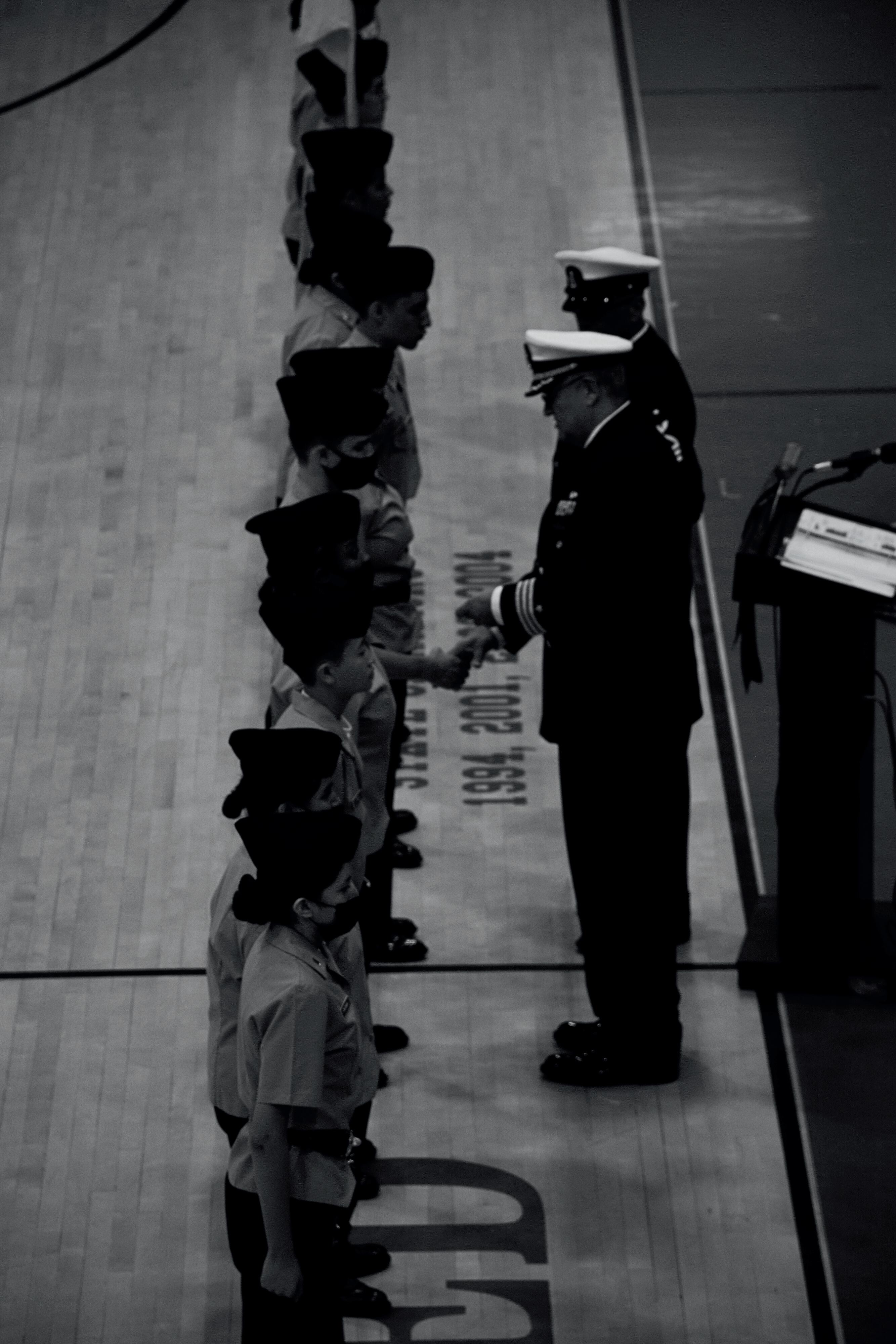
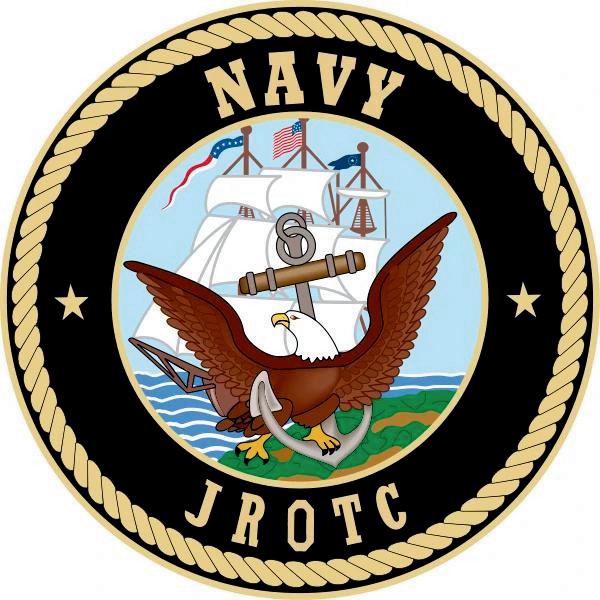
49
FORENSIC SCIENCE: CRIMINAL INVESTIGATIONS

Have you considered being a Police Officer, Attorney, Deputy Sheriff, Forensic Scientist, Crime Scene Investigator, Fireman, or Emergency Medical Technician? Pick Forensic Science and you will learn about the career field of public safety through projects and hands’on activities including how to investigate a crime scene and process evidence to figure out “whodunit.”
PATHWAY COURSES
Course 1 - Introduction to Law, Public Safety, Corrections and Security
Students will examine the basic concepts of law related to citizens’ rights and responsibilities along with exploring career opportunities in the Law and Public Safety field. Students will receive information and training in the following areas: Dangers in Public Safety (Gangs, Drugs/DUI, Disease Prevention, Handcuffing and Fingerprinting, CERT (Disaster Preparedness, CPR, First Aid, Fire prevention), Terrorism, and Criminal and Civil Law.
Course 2 - Criminal Justice Essentials
Criminal Justice Essentials explores the history and evolution of the police force as well as the court system. Students will learn skills related to: Traffic and Patrol Operations like accident reconstruction, traffic stops, types of patrol, civil and criminal Law with Mock Trials using pre-trial procedures, steps in a trial, creation of a trial, etc. and police procedure and sentencing options including research on the death penalty.
Course 3 - Forensic Science & Criminal Investigation
Hands-on experience is provided using foundational principles of forensic science criminal investigations. Basic investigative procedures are used in: fingerprinting and analysis, interviews and interrogations, evaluating criminal behavior, gathering and preserving evidence (DNA, Blood Spatter Analysis, Cast Molds), human remains. ***Course satisfies the fourth science requirement.
50
PATHWAY PARTNERS:
City of Gainesville Municipal Court
City of Gainesville Police/Fire Department
Jennifer McCall Family Law Attorney
Hall County 911 Center
Hardman Law Firm
Career Information
Police Officer
Technical College
Annual Salary: $45,940
Criminal Investigator
High School Diploma
Annual Salary: $78,870
Firefighter
Technical College
Annual Salary: $45,970
Paramedics
Technical College
Annual Salary: $31,700
Additional Career Choices
Criminal Investigator & Special Agent
Detective & Criminal Investigator
Police & Sheriff’s Patrol Officer
Forensic Science Technician
Lawyer
Firefighter
Recommended Related Courses
Computer Science
Foreign Language
Marketing
Biology
Chemistry
Work-Based Learning

SkillsUSA is the Career & Technical Student Organization for the Construction Pathway. SkillsUSA is a partnership of students, teachers, and industry working together to ensure that America has a skilled worked force. SkillsUSA provides students the opportunity to compete regionally, state, and nationally to prove skill set against other high school students. Leadership development, employment skills, and service are developed through membership in SkillsUSA.

51

Students will set up, test, and adjust manufacturing machinery or equipment using electrical, electronic, mechanical, hydraulic, pneumatic, or computer technologies. Through hands-on projects, students experience planning, managing, and performing the processing of materials into intermediate or final products. Students will begin with hand-crafted products and transition to machine-produced products. Technology integration, attention to detail, and critical thinking skills are maximized as students create, program, and control robots.
MANUFACTURING & ROBOTICS PATHWAY COURSES
Course 1 - Introduction to Mechatronics
Hands-on learning manufacturing and robotics through the history, systems, and processes of manufacturing. Build your own motors while learning about electrical laws and principles, magnetism, series, parallel, and simple combination DC circuits, pneumatic system principles and components, and PLC installation and programming.
Course 2 - AC Theory, Electric Motors, and Hydraulic Systems
Extend your knowledge of mechatronics through projects in alternating current theory and applications of varying sine wave voltages and current, inductance and capacitance, motor theory and operating principles, control devices, symbols and schematic diagrams, computer assisted manufacturing (CAM), programmable logic controllers, automated guided vehicles (AGV), and computer integrated manufacturing (CIM), preventative maintenance and troubleshooting, and hydraulic system principles and components.
Course 3 - Semiconductors, Mechanical Systems, and Pump and Piping Systems
Course Number
By completing this course, students will be introduced to electronics theory, mechanical systems, and pump and piping systems. Topics include, but are not limited to, diodes and amplifiers, semiconductor fundamentals, mechanical drives, measurement processes and techniques, maintenance tools, manufacturing processes, bearing design and application, and pump and piping systems. Theory and practical application concepts are discussed and illustrated through labs.
52
PATHWAY PARTNERS:
Kubota
IMS Gear
Harris Products
Murray Plastics
ZF Industries
Career Information
Robotics Engineer
Bachelor's Degree
Annual Salary: $94,240
Welder
Technical School or Associate's Degree
Annual Salary: $67,420
Manufacturing Production Technician
Technical School or Associate's Degree
Annual Salary: $61,580
Research & Development Machinist
Associate's Degree
Annual Salary: $51,880
Additional Career Choices
Fabricator
Welder
Mill Beam Fitter
Structural Steel Fitter
Environmental Engineering Technician
Engineer
Plant Inspector
Manufacturing Manager
Recommended Related Courses
Engineering
Business & Technology Geometry Construction
Work-Based Learning

SkillsUSA is the Career & Technical Student Organization for the Construction Pathway. SkillsUSA is a partnership of students, teachers, and industry working together to ensure that America has a skilled worked force. SkillsUSA provides students the opportunity to compete regionally, state, and nationally to prove skill set against other high school students. Leadership development, employment skills, and service are developed through membership in SkillsUSA.
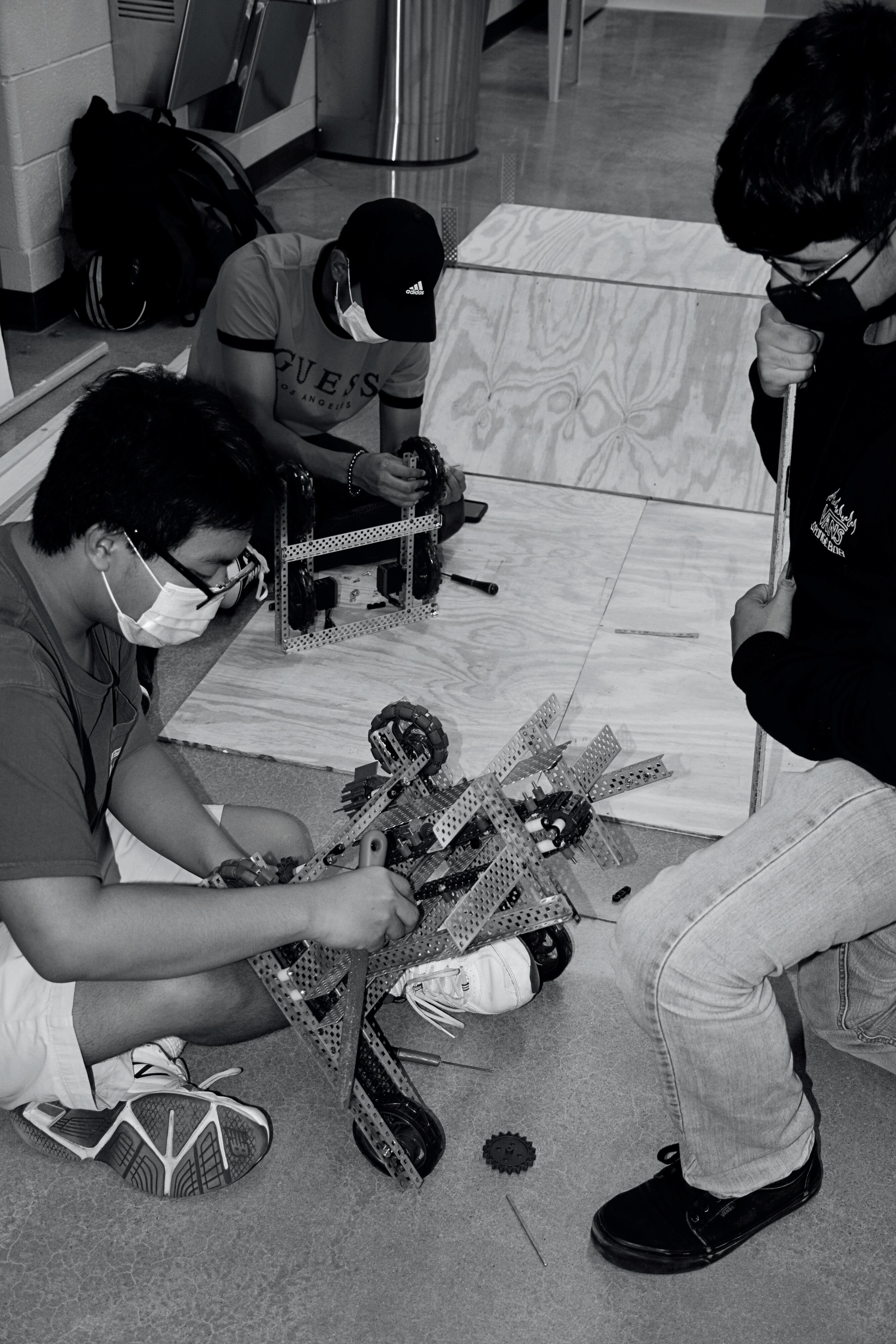
53

SPORTS MARKETING
Sports & Entertainment Marketing is designed to offer students an opportunity to gain knowledge and develop skills related to the growing the sports and entertainment industry. Sports marketing addresses such products as the sporting event, its athletes and coaches, sports facilities, and sports information. Entertainment marketing includes events such as concerts, plays, movie premieres, and product launches. Students will develop skills in the area of advertising, public relations/publicity, and event marketing.
PATHWAY COURSES
Course 1 - Marketing Principles
Marketing Principles addresses all the ways in which marketing satisfies consumer and business needs and wants for products and services. Students develop an understanding of the functions of marketing and how these functional areas affect all businesses. They learn basic marketing concepts and the role of marketing in our economy. Students also develop skills in applying economic concepts to marketing, distribution and logistics, marketing information management, finance in marketing, product/service planning, pricing mixes, promotional strategies, and personal selling.
Course 2 - Introduction to Sports and Entertainment Marketing
This course introduces students to the major segments of the sports and entertainment industry, and the social and economic impact the industry has on the local, state, national, and global economies. As part of this course, and Advanced Sports & Entertainment Marketing, students will gain first-hand experience in the marketing field as it relates to Gainesville High School athletics: promoting the athletes, coaches, games, etc., through the production of online content for Gainesville’s athletics website and social media feeds (Instagram, Facebook, and @goredelephants on Twitter) , as well as digital content for the athletic program's four Jumbotrons located at the school's various sports facilities.
Course 3 - Advanced Sports & Entertainment Marketing
This course provides students opportunities to develop managerial and analytical skills and deepen their knowledge in sports and entertainment marketing, while continuing to apply that knowledge practically in the marketing of Gainesville High School athletics.
54
PATHWAY PARTNERS:
J Geyer Advertising
Hobbs Sporting Goods
Brenau Sports Information Department
UNG Sports Information Department
Career Information
Public Relations Specialist
Bachelor's Degree
Annual Salary: $48,672
Sports Broadcaster
High School Diploma to Bachelor's Degree
Annual Salary: $37,630
Web Developers and Digital Design
Bachelor's Degree
Annual Salary: $78,300
Social Media Marketer
High School Diploma to Bachelor's Degree
Annual Salary: $60,090
Additional Career Choices
Advertising Account Executive
Agent
Brand Manager
Communications Specialist
Demonstrator and Product Promoter
Entertainment Marketer
Entrepreneur
Recommended Related Courses
Computer Science
Entrepreneurship
Foreign Language
English Creative Writing
Work-Based Learning

Founded in 1946, DECA has impacted the lives of more than ten million students, educators, administrators and business professionals. DECA’s programs and activities have constantly evolved by using the latest technology and apply cutting edge educational research. DECA prepares emerging leaders and entrepreneurs for careers in marketing, finance, hospitality and management in high schools and colleges around the globe. It enhances the preparation for college and careers by providing co-curricular programs that integrate into classroom instruction, applying learning in the context of business, connecting to business and the community and promoting competition. The student members leverage their DECA experience to become academically prepared, community oriented, professionally responsible, experienced leaders. DECA values competence, innovation, integrity and teamwork.
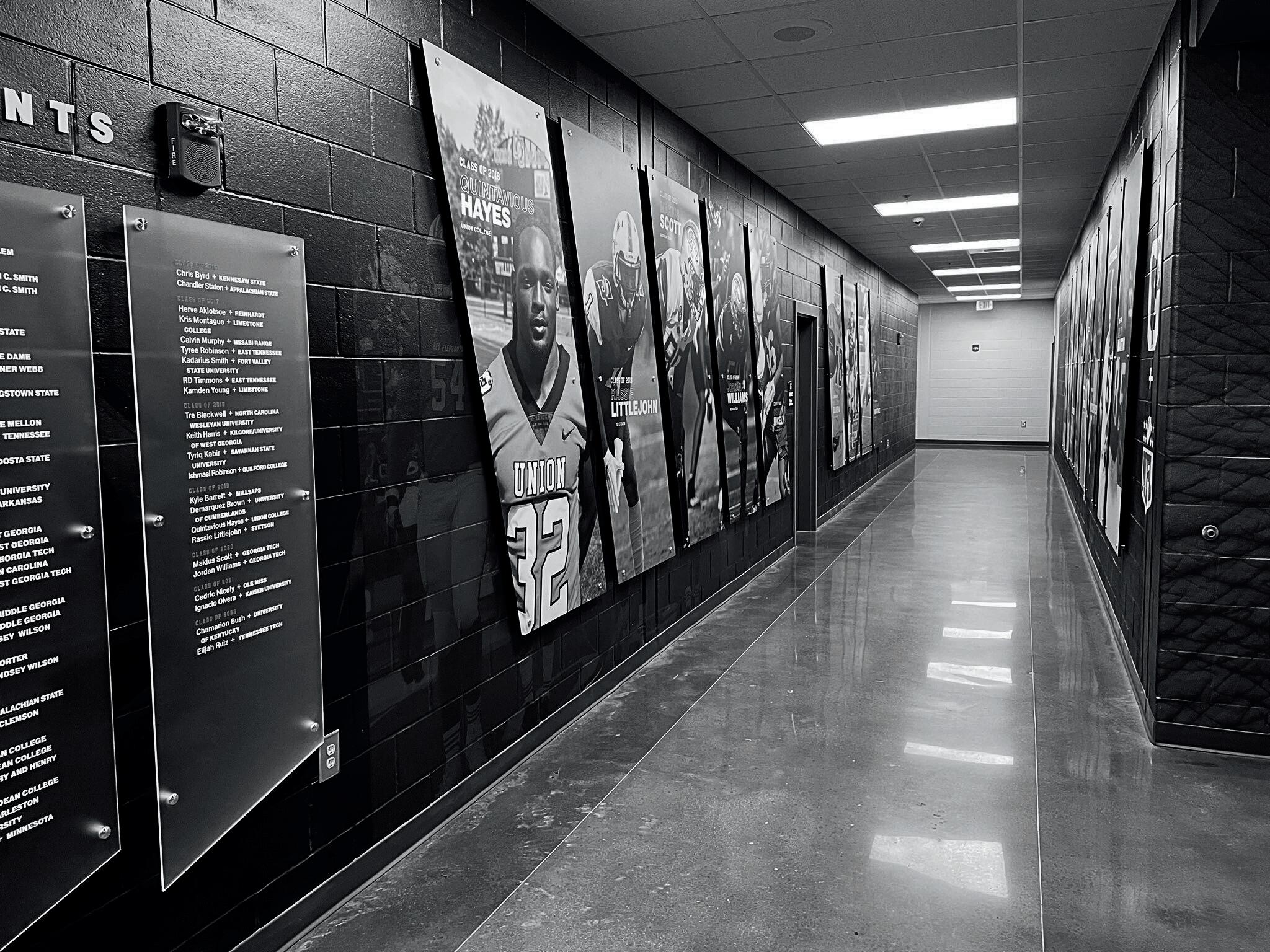
55
WORLD LANGUAGES
SPANISH COURSES
Courses must be taken in sequence.
2 levels of same language taken consecutively are recommended.
Not a high school graduation requirement. Recommended for students planning to attend postsecondary college to meet college admission requirements of 2 courses in same language. Many competitive colleges are looking for 3+ years of study.
Teacher recommendation for Honors, Spanish for Native Speakers & AP.
Completion of 3 units of credit to complete World Language Pathway requirements.
Spanish
Designed for students with no outside experience with Spanish, these courses present the Spanish language in an integrated way with a focus on proficiency in listening, speaking, reading, and writing. Includes how to ask and respond to basic questions, to speak and read with a range of carefully selected topics, and to develop an understanding of Spanishspeaking cultures. Students that plan to take 3 years or more are strongly encouraged to take honors level Spanish courses. Spanish 4 Honors is offered to students that plan to take AP Spanish Language and/or AP Spanish Literature.
Levels: Spanish 1 or 1H, 2 or 2H, 3H, 4H
Spanish for Heritage Learners
Designed for students that hear Spanish at home, this course can accommodate a wide range of Heritage language learners, from those who are minimally functional (can comprehend Spanish but are not able to speak fluently, read or write) to those who are more proficient and literate in Spanish.
Levels: Spanish for Heritage Learners 1, 2 or 2 Honors
Spanish for Native Speakers
Designed for students that have some formal schooling in a Spanish-speaking country, or students with a Intermediate-Mid level proficiency in speaking and writing, the course objective is to increase lexile levels and syntactic accuracy through reading, writing, speaking and listening within the cultural context, with a focus on writing development. This course prepares students for AP Spanish Language and AP Spanish Literature.
Levels: Spanish for Native Speakers 1, 2
Dual Enrollment
Dual enrollment courses can fulfill World Language graduation requirements. Students who meet enrollment guidelines can take college classes for high school credit. Courses are scheduled for Toccoa Falls College.
Spanish 101
56
WORLD LANGUAGES
SPANISH COURSES
AP Spanish Language and Culture
Conforms to College Board topics for the Advanced Placement Spanish Language Examination. Emphasizes the ability to comprehend formal and informal spoken Spanish, to acquire the vocabulary and grasp of structure to read newspapers, magazines and Hispanic literature, to compose expository passages and to speak accurately and fluently. Enrollment in AP includes the commitment to take the AP exam.
Students score a 3 or above on an AP Language exam will receive a Seal of Biliteracy for high school diplomas. A score of 4 or above will receive two Seals of Biliteracy.
AP Spanish Literature and Culture
Conforms to College Board topics for the Advanced Placement Spanish Literature Examination. The AP Spanish Literature and Culture course uses a thematic approach to introduce students to representative texts in a variety genres from the Spanish-speaking world. Students develop proficiencies in the range of Intermediate High to Advanced Mid of the American Council on the Teaching of Foreign Languages’ (ACTFL) Proficiency Guidelines. Through careful examination of the required readings and other texts, students work to hone their critical reading and analytical writing skills. This course is the equivalent to a 3000-4000 level college course. Source: College Board Course and Exam Description. Enrollment in AP includes the commitment to take the AP exam. Students passing the AP Spanish Language course and exam with a score a 3 or above are eligible to take this course upon teacher recommendation.
OTHER LANGUAGE COURSES
French
Introduces students to the French language in an integrated way and emphasizes listening, speaking, reading, and writing; includes how to ask and respond to basic questions, to speak and read with a range of carefully selected topics and to develop an understanding of French- speaking cultures.
Levels: French 1, 2, 3 (Honors)
Chinese
Introduces students to the Chinese language in an integrated way and emphasizes listening, speaking, reading, and writing; includes how to ask and respond to basic question, to speak and read with a range of carefully selected topics and to develop an understanding of Chinese cultures.
Levels: Chinese 1, 2, 3 (Honors)
57
FINE ARTS BAND COURSES
PERCUSSION CLASS
Students are selected by director's recommendation and audition. Offers smaller ensemble experience for instrumentalists in large band settings for both concert and marching seasons. Emphasizes the performance style and literature of the percussion ensemble group medium. Covers performance and production, analysis and theoretical studies, creative aspects of music, historical and cultural influences, and music appreciation.
COLOR GUARD
Exploration of basic dance movements and rhythms of world dance forms as a part of the high school marching band program. Through traditional dances and songs, students gain an understanding of the history of movement and its cultural significance while developing basic sequencing skills and rhythm. Course may include study of dance from varied cultures such as West African Dance, Folk Dance, Latin Dance, and Indian Dance, in addition to Hip-Hop, Clogging, Tap, Stepping, and Line Dancing.elop basic sequencing skills and rhythm. An audition is required.
FRESHMAN
BAND (9th grade)
Enhances level-three skills. Provides further opportunities to develop performance skills and precision on a wind or percussion instrument. Continues emphasis on performance and production, analysis, and historical and cultural contributions and influences, creative aspects of music, and appreciation of music. Stresses individualized learning and group experiences.
Prerequisite: Middle school band experience and Audition
INTERMEDIATE BAND (10/11 grades)
This performance-based class provides opportunities for intermediate-level performers to increase performance skills and precision on a wind instrument. Includes performance and production, analysis and theoretical studies, historical and cultural contributions and influences, creative aspects of music, and appreciation of music. Stresses individual progress and learning and group experiences. Strengthens reading skills. Individual growth and achievement are encouraged through participation in adjudicated solo and ensemble festivals, district honor bands, and private lessons. Participation in concert performances outside of regular class hours is expected.
Prerequisite: Freshman Band and Audition
ADVANCED BAND (11/12 grades)
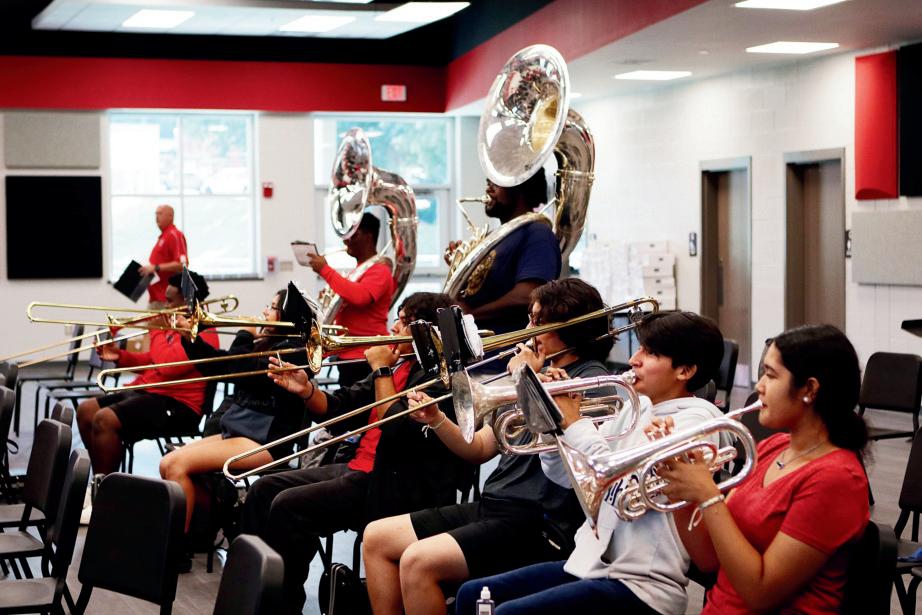
This performance-based class provides opportunities for advanced-level performers to increase, develop and refine performance skills and precision on a wind instrument. Covers performance and production, analysis and theoretical studies, historical and cultural contributions and influences, creative aspects of music, and appreciation of music at advanced levels of understanding. Organizes objectives for self-paced progress. Stresses individual progress and learning strategies, and ensemble experiences. Individual growth and achievement are encouraged through participation in adjudicated solo and ensemble festivals, district honor bands, and private lessons. Participation in concert performances outside of regular class hours is expected.
Prerequisite: Intermediate Band and Audition
58
FINE ARTS CHORUS COURSES
Beginning Chorus I Levels 1, 2
Provides opportunities to develop performance skills and knowledge in ensemble singing; may include choral literature from any style period; covers analysis and theoretical studies, historical and cultural influences, and creative aspects of music.
Intermediate Chorus Levels 1, 2
Provides intermediate-level performers opportunities to increamixed choral singing. Covers performance and production, cultural contributions and influences, creative aspects of music objectives for self-paced progress through all four levels and experiences.
Mastery Mixed Chorus Levels 1, 2
This course provides opportunities for mastery-level performers to increase performance skills and knowledge in choral singing. It covers performance and production of more complex choral literature with an emphasis on analysis and theoretical studies, historical and cultural contributions and influences, and the creative aspects of music and music appreciation. An emphasis is placed on self-paced progress and a variety of group experiences.
Advanced Chorus Levels 1, 2
Includes madrigal, notes, quartet and solo literature of all style periods; covers performance and production, analysis and theoretical studies, historical and cultural contributions and influences, creative aspects of music and appreciation of music. Prerequisite: By Audition Only

59
FINE ARTS THEATRE COURSES
Theatre Arts Fundamentals
Theatre Arts Fundamentals I ¹⁄� unit 52.02100
Develops and applies performance strategies of basic vocal, physical and emotional exercises in scene study, while including improvisation, musical theater, and technical art forms.
Theatre Arts Musical Theatre Levels 1, 2, 3, 4
This is a performance class and culminates in multiple musical theatre performances for the community at the end of each quarter. This course is heavily involved in community service, participation in the International Thespian Society events and local school system engagement.
Prerequisite: Theatre Arts/Fundamentals I and Audition
Theatre Arts Acting Levels 1, 2, 3, 4
This is a performance class and culminates in a performance of a play for the community during the duration or conclusion of the course.
Prerequisite: Theater Arts/Fundamentals I and Audition
Technical Theatre Levels 1, 2, 3, 4
Technical Theatre I – This introductory course explores the definition, design, and use of technical elements associated with theatre sets, props, costumes, makeup, lights, and sound. Technical theatre students are required to have hands-on responsibilities and leadership role opportunities in the productions during the year.
Dance 1 Levels 1, 2
Dance I - This is an intermediate-level dance technique class. Students explore and strengthen intermediate-level dance skills within the traditional format of a technique-based dance class including, but not limited to, ballet, modern, and jazz. Students learn choreography from historical dance works by dance pioneers (e.g. Marius Petipa, Lev Ivanov, George Balanchine, Lester Horton, Alvin Ailey, Martha Graham, Paul Taylor, Merce Cunningham, Twyla Tharp)

60
FINE ARTS VISUAL ARTS COURSES
Visual Arts/Comprehensive
Introduces art history, art criticism, aesthetic judgment, and studio production. Emphasizes the ability to understand and use elements and principles of design through a variety of media, processes and visual resources. Explores historical and cultural master artworks. Virtual Arts I is an introductory course.
Drawing and Painting Levels 1, 2, 3
Explores a variety of techniques and media application; emphasizes critical thinking skills for developing student work and analysis of exemplar works of artists. Drawing and Painting II enhances skills and offers opportunities to apply techniques from traditional to mixed media. Emphasizes critical analysis skills for responding to a variety of styles and historical periods and the concept and development of personal style. Prerequisite: Visual Arts
Ceramics Levels 1, 2, 3
Introduces the characteristics of clay and 3D-design in clay using various techniques of construction and decoration. Emphasizes hand building, mold production, and introduces a range of techniques, surface decoration and glaze applications. Covers styles of ceramic works from Western and nonWestern cultures. Prerequisite: Visual Arts
Photography Levels 1, 2, 3
Introduces photography as an art form. Emphasizes the basics of traditional and digital photography. Explores digital photo editing and application, design, and traditional application in darkroom photography processes. Covers historical to contemporary photography and exemplar works. Explores alternative/and digital processes through personal expression of concepts. Prerequisite: Visual Arts
AP 2D Design, AP 3D Design, or AP Drawing
AP Art & Design is equivalent to a college level course. Students create, plan, and execute a portfolio of 15 original artworks. Students determine the development of their portfolio based on their expertise including digital to traditional methods in: 2D design, Drawing, or 3D Design. Students emphasize research, experimentation, discovery, inventive thinking and art making, problem solving and revision. Portfolios may focus on photography, painting, ceramics/sculpture, drawing, design application (digital, graphic, fashion) or mixed media. Teacher recommendation and portfolio review required. Enrollment in AP includes the commitment to take the AP exam.

61
HEALTH AND PHYSICAL EDUCATION
Only 1 health and physical education course may be taken each semester.
Completion of 3 JROTC courses satisfy the graduation requirement of Health and Personal Fitness
Health ½ unit
*Required for Graduation
Explores the mental, physical, and social aspects of life and how each contributes to total health and well-being; emphasizes safety, nutrition, mental health, substance abuse and prevention, disease prevention environmental health, family life education, consumer health, health career and community health. Students will be able to earn their ADAP card required by state law to obtain their driving learner’s permit.
Personal Fitness ½ unit
*Required for Graduation
Focuses on developing a lifetime fitness program based on a personal fitness assessment and stresses strength, muscular endurance, flexibility, body composition and cardiovascular endurance. Includes fitness principles, nutrition, fad diets, weight control, stress management, adherence strategies and consumer information; promotes self-awareness and responsibility for fitness.
Team Sports Levels 1, 2, 3, 4
Introduces fundamental skills, strategies, and rules associated with team sports such as basketball, volleyball, soccer, softball, baseball, field hockey, lacrosse, team handball, and flag football.
Lifetime Sports Levels 1, 2, 3, 4
Introduces recreational games suitable for lifetime leisure activities; may include table tennis, shuffleboard, frisbee, deck tennis, new games, horseshoes, darts and croquet. Emphasizes the rules of each game and the skills necessary to play.
Weight Training Levels 1, 2, 3, 4
introduces weight training; emphasizes strength development training and proper lifting techniques. Includes fitness concepts for developing healthy lifetime habits.
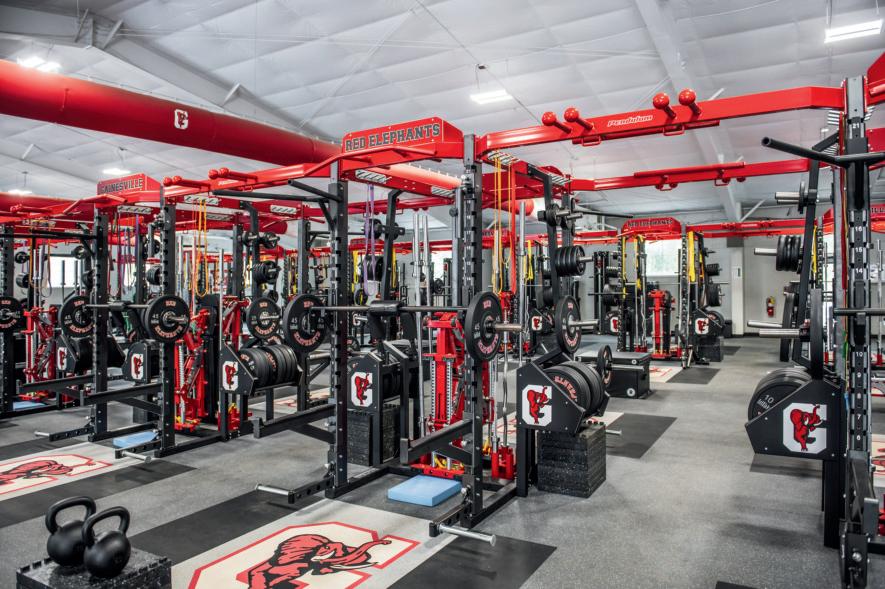
62
NOTES:
NOTES:
YOUR PLAN
YOUR FUTURE
